The COVID-19 crisis has underscored the need for an entirely new approach to how we produce and consume. While Environmental, Social, and Governance standards of corporate risk disclosure are a necessary first step, the next should be unified metrics enabling assessment and comparison of companies’ wider impact on the world.
Europe in the World: for a Modest and Effective Reform
Editorial, December 16, 2020
This sad year ends with a pandemic that continues in full swing over a large part of the planet, especially in the United States and Europe, with no other reassuring prospect than that of one or more vaccines, which is already a lot. But that’s not the subject I want to focus on in this eighth letter, the last one for 2020. Internationally, two other facts have dominated the scene in recent months.
The first is the major turning point of the West vis-à-vis China, in the wake of Donald Trump’s offensive against Xi Jinping. Even in 2019, Europeans weren’t thinking in terms of a “Chinese threat”, even if many were beginning to worry about Chinese groups taking over a growing number of technology companies on the old continent. The deterioration in perceptions became evident during the tour of Minister Wang Yi and State Councillor Yiang Jiechi at the end of the summer. Certainly, the emergence of a sense of fear vis-à-vis the Middle Kingdom is also due to the change in tone of the Chinese leadership since the accession of Xi Jinping and the consolidation of his power. China’s leadership no longer hesitates to assert its desire for power beyond a mollifying discourse on the virtues of multilateralism, at a time when the United States was becoming more and more unilateral.
The second fact is obviously the election of the Biden-Harris tandem as President/Vice-President of the United States (as in my last letter, I insist on this notion of tandem), of which we can expect a return to good manners in the United States’ conduct of its foreign policy, but certainly not a softening in the face of China. Some, like my illustrious friend Joe Nye, a great artisan of concepts among which soft power has gained wide acceptance among political scientists, want to believe in the possibility of competitive rivalry, without major conflict over time around issues, the main one being Taiwan. I fear this will be wishful thinking, at least if China’s technological and economic rise continues to the point where the United States will soon be relegated to the second most powerful world power. Already the technological decoupling between the two superpowers has started.
The prospect of a deepening new Cold War is not just a concern for Europeans. I was able to see directly, in recent high-level meetings (virtual, unfortunately) with mostly Asian participants, that many countries in East and South-East Asia do not want to be forced to choose between the United States and China. They expect the same attitude from Europe. The warning is clear, and under the circumstances it is directed primarily to Washington. Realists are also wary of the strong inclination among American Democrats, but not just them, to play with the idea of regime change under the pretext of defending human rights. In Europe, this inclination is arguably the most fundamental reason for the failure of reconciliation with Russia after the fall of the Soviet Union. Be that as it may, the signing of the Regional Comprehensive Economic Partnership (RCEP), a vast free trade agreement – heavily supported by the Association of Southeast Asian Nations (ASEAN) countries – including China, Japan and South Korea, is a strong signal. The absence of India also weakens the geopolitical concept of an Indo-Pacific entity to counterbalance the Chinese space.
But it is above all from the European point of view that I would like to place myself. It is quite clear that the members of the European Union remain committed to the Atlantic Alliance, even though its purpose has lost all clarity since the fall of the Soviet Union. Questioning North Atlantic Treaty Organization (NATO) is taboo in Germany, where they do not want to hear talk about “strategic autonomy”. Germany is wary of France’s rhetoric and notes its economic weakness, which has only worsened with the pandemic. A member state like Poland sees a threat only from the Russian side and for many members the Alliance’s raison d’être has not changed with the end of the Cold War. However, I do not yet know anyone among my European contacts who is not aware of the risk of seeing the Atlantic Alliance gradually transforming, under American pressure, into an anti-Chinese alliance. In other words, no more than the Asians, Europeans as a whole do not want to be forced to choose between the two rivals from the outset, even if they have good reasons to lean towards the American side.
Concretely, we do not want the United States to continue abusing the devastating practice of secondary sanctions. These sanctions aim to wring the very necks of their allies, if they do not fully align with the United States’ policies (e.g., vis-à-vis Iran).
European construction is a long-term endeavour, where everything canot be accomplished at once. At the moment, a big step forward is being taken with the concept of technological sovereignty, now recognised by Germany itself and which seems to me could replace the concept of strategic autonomy, whose connotations divide. European sovereignty will only truly take shape if it is supported by a discourse shared by all members of the Union, which cannot happen overnight. I am convinced – and here I am speaking as a French citizen – that the best that we can do now is to reconnect with the humble and practical spirit of our compatriots Robert Schuman and Jean Monnet in the post-war years. They wanted to lay the foundations for European construction, not by waxing lyrically with no follow through, but based on projects – at the time, the European Coal and Steel Community – aimed at fostering the emergence of the idea of European interests, transcending the classic notion of national interest. Now, isn’t this exactly what the Commission chaired by Ursula von der Leyen is working on, by promoting the very concrete project of a technological Europe, to which Thierry Breton and others are committed? This is a well-defined task, which offends no one and is a prerequisite for any other ambition, albeit a long-term one. But its success is within our reach and will ultimately be our collective best chance to help restore a global balance that Europeans and others aspire to.
I would like to end on a note of optimism, by sending all of you my warmest wishes for 2021, for which we all expect a kind of rebirth.
Thierry de Montbrial
Founder and Chairman of the WPC
Founder and Executive Chairman of Ifri
The Biden-Harris election: a respite in view of what?
Editorial, November 8, 2020
I am writing this seventh letter on Sunday, November 8. Yesterday, the world press proclaimed the victory of Joe Biden and Kamala Harris. However, Donald Trump has filed lawsuits in several states, which few people believe have any chance of succeeding. At this point, then, the present occupant of the White House can be said to have joined the narrow circle of one-term presidents. Other immediate observations come to mind. The Blue Wave heralded by the polls failed to materialize. Not only that, but Biden beat his opponent by a razor’s edge in the swing states, hence those lawsuits. The Democrats fell short of their goals in the Senate and the House of Representatives. There is more talk about the triumph of the Biden-Harris team than the success of one man, who led a lethargic campaign. This is a key point, for the new president looks frail and odds are that California’s former Attorney General will move into the White House in four years, if not before.
However, unlike his former opponent in the primaries, Ms. Harris psychologically belongs to the New World, far from Europe but close to Asia, where the competition for global supremacy between the United States and China is being played out. In that world, Europeans might be relegated to supporting roles. Because of his age and personal experience, the president-elect remains attached to the Atlantic Alliance, as do some of his advisors, such as Anthony Blinken, who is well known in France. But clear-headed observers are aware that, since at least the beginning of this century, Europe has steadily faded in the minds of American foreign policy-makers. I will add two more remarks before dipping into that topic. First, the November 3 election’s outcome does not by any stretch of the imagination mean that the rifts in American society have been healed. The 46th president of the United States is undeniably a man of good will but he is not a magician, far from it, and the reasons for America’s divisions, which I talked about in my last letters, run deep. Incidentally, the Democrats’ relative failure in the Senate and the House of Representatives could help the new president hew to the center, as Kamala Harris would not like him to do. The really important point is that Trumpism remains a force to be reckoned with in the US. Trump himself could continue to embody it in the next few years if he does not go off the rails in the next few weeks. In that regard—and this is my second remark—I am pleased to say that the outbreaks of violence predicted by many analysts in the election’s aftermath did not occur. True, that would not be in the outgoing president’s interests, if he is at least thinking of preserving his political capital, whose magnitude is undeniable.
Obviously, the Covid-19 pandemic and its multi-faceted consequences will overshadow the beginning of Biden’s first term. But foreign policy will not wait. There is no need to repeat here the dominant point of view among recognized experts on the subject, which could be caricaturized like this: a change in form (a return to classic diplomacy, the invocation of human rights and a minimalist interpretation of multilateralism) but continuity in the basic goal (“America First”) and the attitude towards partners (“you’re either with us or against us”). America’s culture of power, unlike Europe’s, weakened by two world wars, is based on strength. Rather than repeating commonplaces on these issues, let us summarize, in very broad strokes, three key points amply developed in my writings for three decades. Here I will limit myself to the European perspective.
- The most basic cause of the fall of the USSR, and therefore the end of the Cold War, was the information and communication technology revolution. This can be seen as the fruit of America’s genius for capitalism and a unique culture of mutual support between the State and companies when the national interest is at stake. That revolution has steadily gathered pace since the 1970s. Today it is symbolized by GAFA, which in a way can be considered the Trojan horse of American dominance.
- The liberal wave that submerged the world between the fall of the USSR and the financial crisis in the late 2000s, when Russia was sidelined or very weak and China still had a small economy (its GDP barely equaled that of France when it joined the WTO in 2001), first benefitted the United States, which was able to consolidate its domination over countries that cared little about national independence. That was the case of Europe, now subject to the extraterritoriality of American laws. But China also benefited. An extraordinary push in the education sector has allowed that country to skillfully use its position as a global reservoir of low-cost labor to achieve the massive technology transfers that have made its access to primacy in the 21st century a serious possibility.
- The basic reality of the next several decades will be Sino-American strategic competition, towards which the second-rank powers, like the European Union as a political unit, will have to position themselves. Trump wanted to pull out of NATO. Biden will undoubtedly want to strengthen it, i.e., in his mind, to politically and economically rally its members behind the star-spangled banner in the fight to contain China. For Europeans, who are hardly eager for a strategic rapprochement with China and who, unlike the main Asian powers, are lagging behind in the technological race, the temptation to put themselves under an American protectorate even more than they did during the Cold War could be irresistible. But with what term-long perspective and under what conditions with respect to their nearest neighbors in Eastern Europe, the Middle East and Africa? That is the question.
For now, Europeans are relishing the election of a once-again empathetic American president who will warmly welcome them to the Oval Office and elsewhere. At a time when they are facing an invisible enemy that threatens them as well as Americans, they are not alone in yearning for a respite. May the Atlantic Alliance in the short term be the first alliance against the virus. For once in its history, do we not have an opportunity to reinterpret article five of the treaty and harness all of NATO’s resources to fight the pandemic together?
Thierry de Montbrial
Founder and Chairman of the WPC
Founder and Executive Chairman of Ifri
Joseph Nye: Can Joe Biden’s America Be Trusted?
Can Joe Biden’s America Be Trusted?
Project Syndicate – 04.12.2020
By Joseph S. Nye, JR.
America’s friends and allies have come to distrust it in the wake of Donald Trump’s presidency. Joe Biden will do all that he can to repair the damage, but the deeper problem is that many are asking whether Trump was merely a symptom of the decline of American democracy.
CAMBRIDGE – Friends and allies have come to distrust the United States. Trust is closely related to truth, and President Donald Trump is notoriously loose with the truth. All presidents have lied, but never on such a scale that it debases the currency of trust. International polls show that America’s soft power of attraction has declined sharply over Trump’s presidency.
Can President-elect Joe Biden restore that trust? In the short run, yes. A change of style and policy will improve America’s standing in most countries. Trump was an outlier among US presidents. The presidency was his first job in government, after spending his career in the zero-sum world of New York City real estate and reality television, where outrageous statements hold the media’s attention and help you control the agenda.
In contrast, Biden is a well-vetted politician with long experience in foreign policy derived from decades in the Senate and eight years as vice president. Since the election, his initial statements and appointments have had a profoundly reassuring effect on allies.
Trump’s problem with allies was not his slogan “America First.” As I argue in Do Morals Matter? Presidents and Foreign Policy from FDR to Trump, presidents are entrusted with promoting the national interest. The important moral issue is how a president defines the national interest.
Trump chose narrow transactional definitions and, according to his former national security adviser, John Bolton, sometimes confused the national interest with his own personal, political, and financial interests. In contrast, many US presidents since Harry Truman have often taken a broad view of the national interest and did not confuse it with their own. Truman saw that helping others was in America’s national interest, and even forswore putting his name on the Marshall Plan for assistance to post-war reconstruction in Europe.
In contrast, Trump had disdain for alliances and multilateralism, which he readily displayed at meetings of the G7 or NATO. Even when he took useful actions in standing up to abusive Chinese trade practices, he failed to coordinate pressure on China, instead levying tariffs on US allies. Small wonder that many of them wondered if America’s (proper) opposition to the Chinese tech giant Huawei was motivated by commercial rather than security concerns.
And Trump’s withdrawal from the Paris climate agreement and the World Health Organization sowed mistrust about American commitment to dealing with transnational global threats such as global warming and pandemics. Biden’s plan to rejoin both, and his reassurances about NATO, will have an immediate beneficial effect on US soft power.
But Biden will still face a deeper trust problem. Many allies are asking what is happening to American democracy. How can a country that produced as strange a political leader as Trump in 2016 be trusted not to produce another in 2024 or 2028? Is American democracy in decline, making the country untrustworthy?
The declining trust in government and other institutions that fueled Trump’s rise did not start with him. Low trust in government has been a US malady for a half-century. After success in World War II, three-quarters of Americans said they had a high degree of trust in government. This share fell to roughly one-quarter after the Vietnam War and the Watergate scandal of the 1960s and 1970s. Fortunately, citizens’ behavior on issues like tax compliance was often much better than their replies to pollsters might suggest.
Perhaps the best demonstration of the underlying strength and resilience of American democratic culture was the 2020 election. Despite the worst pandemic in a century and dire predictions of chaotic voting conditions, a record number of voters turned out, and the thousands of local officials – Republicans, Democrats, and independents – who administered the election regarded the honest execution of their tasks as a civic duty.
In Georgia, which Trump narrowly lost, the Republican secretary of state, responsible for overseeing the election, defied baseless criticism from Trump and other Republicans, declaring, “I live by the motto that numbers don’t lie.” Trump’s lawsuits alleging massive fraud, lacking any evidence to support them, were thrown out in court after court, including by judges Trump had appointed. And Republicans in Michigan and Pennsylvania resisted his efforts to have state legislators overturn the election results. Contrary to the left’s predictions of doom and the right’s predictions of fraud, American democracy proved its strength and deep local roots.
But Americans, including Biden, will still face allies’ concerns about whether they can be trusted not to elect another Trump in 2024 or 2028. They note the polarization of the political parties, Trump’s refusal to accept his defeat, and the refusal of congressional Republican leaders to condemn his behavior or even explicitly recognize Biden’s victory.
The American Elections and Beyond
Éditoriaux de l’Ifri, October 12th, 2020
The next few years will be tumultuous ones in the United States. The dependency of foreign policy on domestic policy is unlikely to diminish. Whether in the rivalry with China or the predominance of Israeli interests in Middle East policy, for example, it is hard to imagine Biden taking a big step backward. Many Europeans want to believe that a victory by Obama’s former vice president will signal a return to the good old days of transatlantic consultation and multilateralism. In appearance, perhaps. But only in appearance, for the continents started drifting apart with the emergence of the post-Soviet world, i.e. more or less at the beginning of the new century. This drift is explained by objective factors, mainly the rise of China and the decline of Russia. The personality of successive presidents can only speed up or slow down the trend. This detail, however, is not an insignificant one. To reach his domestic policy ends, Trump has unflinchingly flouted all the conventions of foreign policy. Copycats have followed his lead, including Boris Johnson in Great Britain. From the perspective of the world’s stability as a whole, scorn for international law and institutions is worse than a crime. It is an offence against the world, and therefore also, it seems to me, against the United States. From this point of view, anyone other than Trump could perhaps soothe the wounds but not change the course of things. That is why some people on this side of the Atlantic hope the billionaire is re-elected. In their view, only such a jolt could bolster the Europeans’ tentative movement towards sovereignty.
For my part, I reject such speculations. First, because Europeans are merely observers of the American political scene. They have no means to influence it. Second, and above all, in the name of realism: whatever happens, a minimum of Euro-American understanding is necessary if Western countries, and those of all continents to which they are linked by history and geography, are to flexibly face the challenge of the rise of illiberal powers. There is also the challenge of political Islamism, which is incompatible with Western values, and a fortiori the persistent threat of Islamist terrorism. This necessary Euro-American understanding presupposes, however, that the United States, with or without Trump, should stop treating Europeans as adversaries by brutally imposing its own choices on them, in particular through sanctions. That said, it must be acknowledged that a second Trump term would hardly look different from the first one. If he prevails, the European Union would have no choice but to seek ways of escaping from Uncle Sam’s clutches without falling into those of China. The trickiest point is that at this stage there is nothing to suggest that a newly democratic America would not also seek to impose its will on Europeans, albeit in a slightly more gentle way.
To round out these pre-electoral comments, let us take a further step back with a more sociological look at today’s world. In the first place, the rejection of any notion of authority in general can be observed. The collapse of traditional forms of Christianity in the Western world, stunningly quick on the scale of history, is especially spectacular in this regard. This is globally true of Catholicism but also of Protestantism, with evangelical churches benefitting the most. The last point is striking in the United States, where what is left of Protestant culture, so important to the identity of the world’s leading power, has been transfigured into communitarian sects as unrealistic and intolerant as they are cut off from their roots. By analogy, how can a parallel not be drawn with communist ideology, that travesty of Christianity where God was replaced by “the people” and the Church by the Party? In Eastern Europe, the Orthodox churches are still holding their own. In the near future, it is perhaps in the United States that the loss of identity will be most striking, despite attempts to hide it. Ultimately, doesn’t the Trump phenomenon reflect the anxiety of that half of the population that genuinely fears that American values are disappearing? The fear of losing identity is not only seen in the United States. It has been visible in France for a long time. In fact, outside of Orthodoxy in Russia, if there is a monotheistic faith that for a half-century has ceaselessly bolstered its positions, both religious and political, it is Islam. And, since decolonization in the broad sense of the term, political Islam has had a tendency to degenerate into the worst forms of obscurantism.
After, or rather alongside religion, I would mention social media and the libertarian aura that still surrounds them. It has taken a long time to recognize that whole segments of public opinion throughout the world are influenced by a steady drumbeat of messages or unverified ”news”. The issues facing contemporary societies are extremely complex. And ethical judgements about them are never easy to make. They can only be addressed by looking at every side; no perfect synthesis is possible. When there is no longer any recognized authority, manipulators and cynics have a free hand to spread “alternative facts” and justify their crimes. technology is a formidable tool at their disposal. As time goes by, the need for Internet legislation will undoubtedly become increasingly felt. But before a new legal system emerges, how many tragedies will have unfolded and what effects will they have had?
For the record, let us mention without comment the explosive rise of inequality during the time of “happy globalization”, the over-exploitation of nature and the increasingly tangible manifestations of climate change. These facts alone would suffice to explain the return of quasi-revolutionary forms of socialism (or their appearance, in the case of the United States), which are a far cry from social democracy.
Lastly, there is the interminable COVID 19 crisis. It forces us to reconsider global governance in terms of health just when the trend—exacerbated by the pandemic—is towards de-globalization and the weakening of multilateralism. This weakening is aggravated by the suspicion, at least in Western opinion, that governments are too incompetent to carry out coherent and effective public policies.
In conclusion, I would add that authoritarian or totalitarian regimes are not immune to revolutions, partly for the same reasons. No country nowadays can be completely impervious to the gaze of others. The seemingly strongest regimes can be swept away in the blink of an eye. Imbalance is a global phenomenon. The best that can be expected from the next president of the United States is a little more wisdom. Wisdom and firmness are not mutually exclusive. That would already be a big step forward for the international system as a whole.
See you after the 3rd of November.
Thierry de Montbrial
Founder and Chairman of the WPC
Founder and Executive Chairman of Ifri
Franciscus Verellen et Jean-Pierre Cabestan, experts sur la Chine
4 Instituts Pour Mieux Comprendre La Chine D’Aujourd’hui
Forbes – 16.11.2020
Par Philippe Branche
“Quand on s’intéresse à la Chine : il est important de connaitre la pensée chinoise : d’Anne Cheng à Jacques Gernet en passant par Léon Vandermeersch”, explique le professeur Jean-Pierre Cabestan. A l’heure où le futur des relations diplomatiques avec la Chine est plus que jamais incertain avec l’élection de Joe Biden, le travail des sinologues est d’autant plus important. Peu connus du grand public, la France compte pourtant de nombreux instituts qui fournissent une intelligence de terrain pour les décideurs politiques et économiques. Retour pour Forbes France sur les différentes sources d’information pour comprendre la Chine d’hier et d’aujourd’hui.
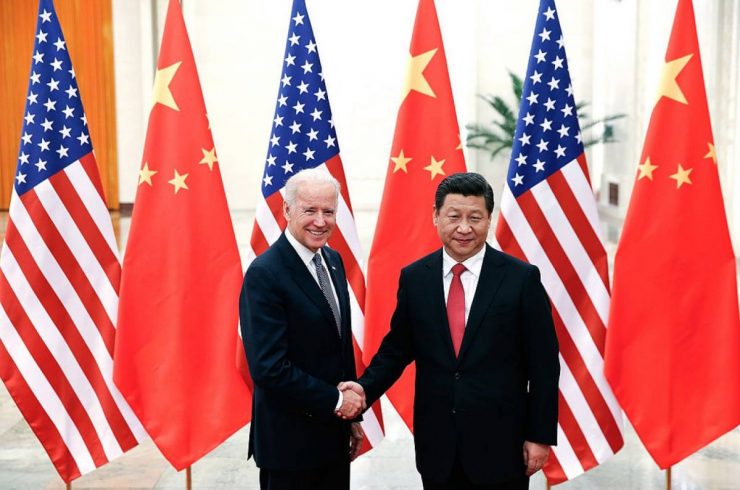
Comprendre le passé de la Chine avec Franciscus Verellen – Ancien Directeur de L’École française d’Extrême-Orient (EFEO), membre de l’Institut.
L’École française d’Extrême-Orient (EFEO). Une institution qui a donné ses lettres de noblesse à la sinologie française. Sa mission scientifique vise l’étude des civilisations classiques d’Asie par le prisme des sciences humaines et sociales. Depuis sa création en 1898, l’École a connu une croissance constante avec un total de 18 centres et antennes en Asie : de Pondichéry, à la Thaïlande, en passant par Tokyo ou encore Hong Kong, et même un chantier archéologique en Corée du Nord.
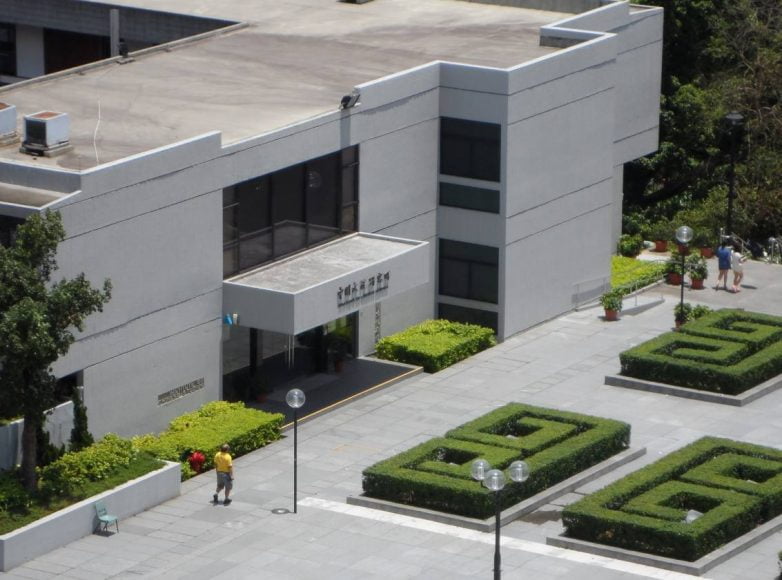
L’EFEO n’aurait pas pu connaitre un tel essor sans les compétences apportées par ses enseignants-chercheurs. Franciscus Verellen, ancien directeur de l’École de 2004 à 2014 qui est aujourd’hui responsable du centre de Hong Kong, décrit l’École comme un exemple reconnu au plan international de « l’importance de la connaissance directe et acquise sur le terrain qui reste, encore aujourd’hui, une spécificité de la sinologie française ». Les implantations de l’EFEO sont considérées par les décideurs politiques et économiques comme une ressource fiable sur la Chine comme sur l’Asie.
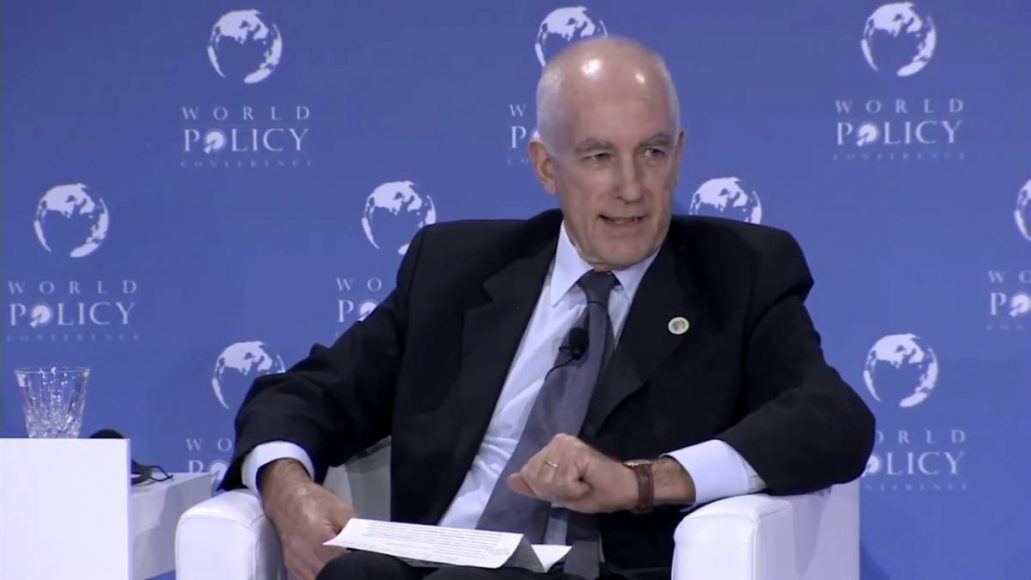
Les travaux de Franciscus Verellen s’inscrivent dans la tradition d’excellence de la sinologie française. Son ouvrage « Imperiled Destinies : the Daoist Quest for Deliverance in Medieval China » retrace sur huit siècles l’ouverture du taoïsme à différentes influences et l’essor de la religion chinoise par excellence. Un livre passionnant pour comprendre l’évolution du taoïsme et ses liens complexes avec le bouddhisme et le confucianisme. L’expertise de Franciscus Verellen lui permet aussi d’avoir une compréhension subtile des enjeux religieux actuels en Chine. Lors de son intervention à la World Policy Conference créée par Thierry de Montbrial, le sinologue a mis l’accent sur la réponse politique au fait religieux dans l’Empire du Milieu. Selon lui, la Chine est un « État fondamentalement religieux » et ce renouveau spirituel a été provoqué par « la question des valeurs ». Depuis février 2018 le Front uni du parti communiste chinois régule et « sinicise » les cinq religions reconnues, taoïsme, bouddhisme, islam, catholicisme et protestantisme. Franciscus Verellen fait ainsi partie des sinologues dont le regard d’historien est précieux pour mettre en perspective des enjeux contemporains.
MERICS et l’Insitut Ricci – deux instituts internationaux pour l’actualité chinoise
La France n’est pas le seul pays européen à vouloir mieux comprendre la Chine contemporaine ; l’Allemagne s’y intéresse également. En 2013 fut établi le Mercator Institute for China Studies (MERICS), un think tank dédié uniquement à l’étude de la Chine. Les experts du MERICS se définissent d’abord comme “ouverts à de nouvelles perspectives sur la Chine et à de nouvelles propositions destinées à façonner les relations avec ce pays”. Leur dernier podcast, publié le 10 Novembre, ouvre des perspectives pour mieux cerner les enjeux d’actualité : “ US-Chine : les relations après les élections ”, un échange pour appréhender l’agenda chinois de Joe Biden. Ce think tank s’avère d’autant plus important que la Chine affiche malgré la pandémie mondiale un objectif de croissance annuelle du PIB de 5% pour les cinq prochaines années selon l’agence Reuters. De même, un autre institut plus ancien a pour objectif d’analyser les échanges culturels sino-occidentaux: l’Institut Ricci, dont le nom vient du premier prêtre Italien Matteo Ricci (1552-1610) à inaugurer l’inculturation du christianisme en Chine. Contrairement au MERICS qui se consacre principalement aux enjeux géopolitiques, ce dernier se consacre avant tout à l’étude de la civilisation chinoise et au dialogue interreligieux. Une conférence universitaire par Sophie Boisseau du Rocher (IFRI) devrait se tenir le 20 février 2021 prochain à Paris avec comme thème « Les Nouvelles Routes de la Soie, vues de l’Asie». Autant d’instituts donc pour mieux comprendre la Chine contemporaine d’un point de vue géopolitique et culturel.
Comprendre le présent du monde chinois avec Jean-Pierre Cabestan, ancien directeur du Centre d’études français sur la Chine contemporaine (CEFC)
Jean-Pierre Cabestan est directeur de recherche au CNRS et professeur à l’Université baptiste de Hong Kong. Il a été directeur du CEFC de 1998 à 2003 et s’intéresse tout particulièrement aux phénomènes politique en Chine populaire, à Hong Kong comme à Taiwan. Dans son ouvrage, ‘Chine-Taiwan, la guerre est-elle concevable?’, Jean-Pierre Cabestan d’une part analyse la menace chinoise et la capacité militaire, politique et économique de Taipei à résister. D’autre part, il évalue les risques de guerre et considère les différents scénarios possibles, avec ou sans implication américaine. Pour des sujets aussi sensibles et complexes, les experts comme Jean-Pierre Cabestan sont indispensables pour appréhender en profondeur cette zone de tension.
“En analysant l’histoire de la sinologie française, l’un des premiers pionniers de la recherche locale en Chine fut le général Jacques Guillermaz (1911-1998). Le général devient un observateur attentif des événements politiques de la Chine avec l’idée de l’étudier sur le terrain, une notion que de nombreux sinologues suivent encore aujourd’hui” explique Jean-Pierre Cabestan. “Le général a été l’un des fondateurs du Centre de recherche et de documentation sur la Chine contemporaine, qui fait maintenant partie de l’EHESS.” Dans son ouvrage Demain la Chine : démocratie ou dictature ? (publié en français et en anglais), Jean-Pierre Cabestan estime que le régime politique mis en place par Mao Zedong reste solide et doté d’une certaine capacité d’adaptation. Mais l’ancien directeur du CEFC pense qu’à plus long terme, du fait de la modernisation et la mondialisation de l’économie comme de la société chinoises, la question de la démocratie se posera, comme partout ailleurs.
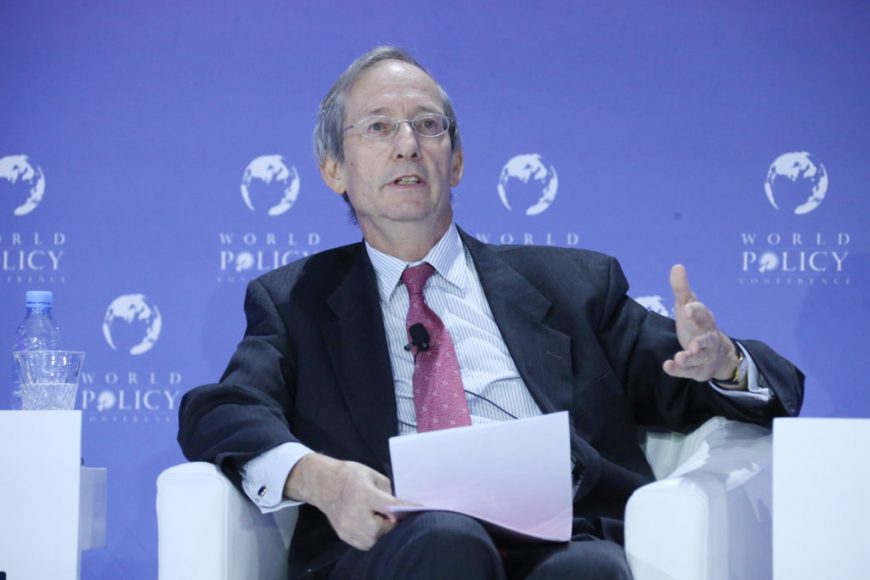
Jean-Pierre Cabestan à la World Policy Conference ©
L’EFEO, le MERICS, l’Institut Ricci et le CEFC. Quatre instituts pour mieux apprécier la pluralité du monde contemporain chinois. Sans Franciscus Verellen ou Jean-Pierre Cabestan, il nous serait de plus en plus difficile d’appréhender le présent chinois. Par le biais d’un travail de recherches de terrain, nous comprenons qu’il y a non pas une mais différentes manières d’être chinois. “Ceux qui souhaitent bien connaître la Chine doivent se garder de prendre une partie pour le tout “ recommande finalement le Président chinois Xi Jinping.
Rozlyn Engel: Carnegie report on the U.S. foreign policy
Making U.S. foreign policy work better for the middle class
Carnegie Endowment for International Peace
Co-editors:
Salman Ahmed, Rozlyn Engel, Wendy Cutler, Douglas Lute, Daniel M. Price, David Gordon, Jennifer Harris, Christopher Smart, Jake Sullivan, Ashley J. Tellis, Tom Wyler
Summary
If there ever was a truism among the U.S. foreign policy community—across parties, administrations, and ideologies—it is that the United States must be strong at home to be strong abroad. Hawks and doves and isolationists and neoconservatives alike all agree that a critical pillar of U.S. power lies in its middle class— its dynamism, its productivity, its political and economic participation, and, most importantly, its magnetic promise of progress and possibility to the rest of the world.
And yet, after three decades of U.S. primacy on the world stage, America’s middle class finds itself in a precarious state. The economic challenges presented by globalization, technological change, financial imbalances, and fiscal strains have gone largely unmet. And that was before the novel coronavirus plunged the country into the worst economic crisis since the Great Depression, exposed and exacerbated deep inequities across American society, led long-simmering tensions over racial injustice to boil over, and launched a level of societal unrest that the United States has not seen since the height of the civil rights movement.
If the United States stands any chance of renewal at home, it must conceive of its role in the world differently. That too has become a point of rhetorical consensus across the political spectrum. But what will it actually take to fashion a foreign policy that supports the aspirations of a middle class in crisis? The Carnegie Endowment for International Peace established a Task Force on U.S. Foreign Policy for the Middle Class to answer that question. This report represents the conclusion of two years of work, hundreds of interviews, and three in-depth analyses of distinct state economies across America’s heartland (Colorado, Nebraska, and Ohio). It proposes to better integrate U.S. foreign policy into a national policy agenda aimed at strengthening the middle class and enhancing economic and social mobility. Five broad recommendations bear highlighting up front.
First, broaden the debate beyond trade. Manufacturing has long provided one of the best pathways to the middle class for those without a college degree, and it anchors local economies across the country, especially in the industrial Midwest. It makes sense, therefore, that so much of the debate about the revival of America’s middle class is centered around the effects of trade policy on manufacturing workers. But while millions of manufacturing jobs have been lost in the United States, other economic forces beyond global trade have also played a major role in the decline. In this sense, debates about “trade” are often a proxy for anxieties about the breakdown of a social contract—among business, government, and labor—to help communities, small businesses, and workers adjust to an interdependent global economy whose trajectory is increasingly shaped by large multinational corporations and labor-saving technologies.
Moreover, the majority of American households today sustain a middle-class standard of living through work in areas outside manufacturing, especially in the service sectors where the United States has competitive advantages. Many of these Americans generally support the trade policies of past decades that have largely served them well. In a February 2020 Gallup poll, 79 percent of Americans agreed that international trade represents an opportunity for economic growth.1 Many of these Americans are less concerned with overhauling past trade policies and are more preoccupied with how military interventions and changes in the United States’ global commitments, among other aspects of foreign policy, might affect their security and economic well-being.
Middle-class Americans are not a monolithic group. Their interests diverge. Different aspects of foreign policy impact them differently, including across gender, racial, ethnic, and geographic lines. Getting trade policy right is hugely important for American households but it is not a cure-all for the United States’ ailing middle class and represents only one element of a broader set of middleclass concerns about U.S. foreign policy.
Second, tackle the distributional effects of foreign economic policy. Globalization has disproportionately benefited the nation’s top earners and multinational companies and aggravated growing economic inequality at home. It has not spurred broad-based increases in real wages among U.S. workers. It has not driven a wave of public and private investments to enhance U.S. productivity generally and make more American workers and small businesses globally competitive. And while it has brought down the prices of certain highly tradable goods, it has done little to alleviate the growing pressure on American middle-class families from the rising costs of healthcare, housing, education, and childcare. Making globalization work for the American middle class requires substantial investment in communities across the United States and a comprehensive plan that helps industries and regions adjust to economic disruptions.
In particular, foreign economic policy will need to:
• prioritize international policies that will stimulate job creation and allow incomes to recover; • revamp the U.S. international trade agenda and ensure it is paired with a domestic policy agenda to support more inclusive economic growth;
• modernize U.S. and international trade enforcement tools and mechanisms to better combat unfair foreign trade practices that are especially harmful to small and medium-sized enterprises (SMEs) and workers;
• pursue other international agreements that close regulatory and governance gaps across countries to improve burden-sharing and help address equity concerns; and
• craft a National Competitiveness Strategy that includes efforts to make U.S. SMEs and workers more competitive in the global economy and enhances the ability of communities to attract job-creating business investment.
Third, break the domestic/foreign policy silos. For decades, U.S. foreign policy has operated in a relatively isolated sphere. National security strategists and foreign policy planners have articulated national interests and set the direction of U.S. policy largely through the prism of security and geopolitical competition. That remains a critical perspective, especially at a time when geopolitical competition with China, Russia, and other regional powers is on the rise. But with so many Americans now struggling to sustain a middle-class standard of living, threats to the nation’s long-term prosperity and to middle-class security demand a wider prism—informed by a deeper understanding of domestic economic and social issues and their complex interaction with foreign policy decisions. That is not an easy shift to make. It will take better interagency coordination, interdisciplinary expertise, and some policy imagination. It will also require the contributions of a new generation of foreign policy professionals who break free of the mold cast during the Cold War and its immediate aftermath.
Fourth, banish stale organizing principles for U.S. foreign policy. National security strategists and foreign policy planners in Washington, DC, crave neat organizing principles for U.S. strategy. But there is no evidence America’s middle class will rally behind efforts aimed at restoring U.S. primacy in a unipolar world, escalating a new Cold War with China, or waging a cosmic struggle between the world’s democracies and authoritarian governments. In fact, these are all surefire recipes for further widening the disconnect between the foreign policy community and the vast majority of Americans beyond Washington, who are more concerned with proximate threats to their physical and economic security.
A foreign policy agenda that would resonate more with middle-class households and, in fact, advance their well-being, should:
• reinvigorate relations with close allies to build an agile and cohesive network that can effectively address the full range of diplomatic, economic, and security challenges—from pandemics and cyber attacks to unsecure weapons of mass destruction and climate change—that could imperil middle-class security and prosperity;
• manage strategic competition with China to mitigate the risk of destabilizing conflict and counter its efforts toward economic and technological hegemony;
• reduce the threat of a digital crisis and promote an open and healthy digital ecosystem;
• boost strategic warning systems and intelligence support to better head off costly shocks and build up protective systems at home;
• shift some defense spending toward research and development (R&D) and technological workforce development to protect the U.S. innovative edge and enhance long-term readiness;
• strengthen economic adjustment programs to improve the ability of middleclass communities to adjust to inevitable changes in the pattern of economic activity; and
• safeguard critical supply chains to bolster economic security.
This may seem like a somewhat less ambitious foreign policy agenda than might be expected from a task force comprised of foreign policy professionals who served in Democratic and Republican administrations from George H.W. Bush to Barack Obama. And to a large extent it is. That is the point. The United States cannot renew America’s middle class unless it corrects for the overextension that too often has defined U.S. foreign policy in the post–Cold War era. It is equally evident that retrenchment or the abdication of a values-based approach is not what America’s middle class wants—or needs.
Middle-class Americans have no illusion that their fate can be walled off from the fate of the world. They embrace the sense of enlightened self-interest that has motivated U.S. foreign policy over the past seven decades and want the United States to serve as a positive and constructive force around the world. They appreciate that U.S. foreign assistance cannot simply be about short-term transactional benefits for the United States but must serve a wider purpose. They understand that repressive regimes make the world less safe and less free, and that it is in the United States’ self-interest to stand up for human rights. All this requires a larger international affairs budget to retool American diplomacy and development for the twenty-first century.
Middle-class Americans interviewed also understand that the United States must sustain a strong national defense and that, moreover, it is in their economic interests. Defense spending and the defense industrial base are—and will remain for some time—the lifeblood for many middle-class communities across the country. That is why drastic cuts in the defense budget in the near term would be unwise. Instead of slashing the defense budget, a more prudent course would be to reduce defense spending gradually and predictably over the longer term, while shifting some resources toward a broader conception of national defense—to include workforce development, cyber security, R&D to enhance U.S. economic and technological competitiveness in strategic industries, pandemic preparedness, and the resilience of defense supply chains.
At the same time, middle-class Americans are concerned about the cost of U.S. interventions and the potential for political overreach. They want the country to exercise its power judiciously and to selectively seek out the best opportunities for effecting positive change. But to credibly assert global leadership, the United States must redress democratic deficits and social, racial, and economic injustice at home while seeking to reclaim the moral high ground abroad. The United States must get its own house in order.
Fifth, build a new political consensus around a foreign policy that works better for America’s middle class. None of the current major foreign policy approaches hold the key to American middle-class renewal—be it post–Cold War liberal internationalism, President Donald Trump’s America First, or progressives’ elevation of economic and social justice and climate change and the potential downsizing of U.S. defense spending. This may partly explain why no single view commands broad-based bipartisan support. In fact, despite the variation in middle-class economic and political interests, their foreign policy preferences point the way toward a potential new foreign policy consensus that is not yet reflected in today’s highly polarized political class.
A Gallup poll from February 2019 showed that 69 percent of Americans thought the United States should take a major or leading role in world affairs, a figure that has been relatively stable for a decade. There is simply very little public support for Trump’s revolution in U.S. foreign policy and its call to turn back the clock on globalization and international trade, constrain legal immigration, gut foreign aid, abandon U.S. allies, or abdicate U.S. leadership on the global stage. But that should not be overinterpreted as support for the restoration of the foreign policy consensus that guided previous Republican and Democratic administrations. That set of policies left too many American communities vulnerable to economic dislocation and overreached in trying to effect broad societal change within other countries. America’s middle class wants a new path forward.
A foreign policy that works better for the middle class would preserve the benefits of business dynamism and trade openness—which does not feature prominently enough in the progressive agenda—while massively increasing public investment to enhance U.S. competitiveness, resilience, and equitable economic growth. It would sustain U.S. leadership in the world, but harness it toward less ambitious ends, eschewing regime change and the transformation of other nations through military interventions. And it would recognize that a foreign policy that works for the middle class has to be connected to a domestic policy that works for the middle class.
Taken collectively, the task force’s recommendations provide a blueprint for rebuilding trust. So much of what is required to make U.S. foreign policy work better for the middle class will not be visible to, or verifiable by, most Americans at the local level. And in many instances, it will require working through difficult trade-offs, where the interests of industries, workers, or communities do not align. The American people need to be able to trust that U.S. foreign policy professionals are managing this tremendous responsibility as best they can, with the interests of the middle class and those striving to enter it at the forefront of their consideration.
U.S. foreign policy professionals will also need to regain the trust of U.S. allies and partners, which no longer have confidence that the deals struck with one U.S. administration will survive the transition to the next or that basic alliance structures that have endured for decades are still a given. As a result, they are increasingly hedging their bets, trying to stay in the United States’ good graces while also keeping their options with China and other U.S. rivals open.
Restoring predictability and consistency in U.S. foreign policy requires building broad-based political support for it. And the best and perhaps only viable path right now to rebuilding such support lies in making U.S. foreign policy work better for the middle class. The ideas in this report represent a starting point for discussion—one that will hopefully lead to healthy debate and bring many more innovative and actionable ideas to the table.
This publication can be downloaded at no cost at https://carnegieendowment.org/specialprojects/usforeignpolicyforthemiddleclass/.
Antoine Flahaut : Covid-19, peut-on continuer à tracer tous les cas contacts?
16.10.2020 – Heidi News
par Kylian Marcos
Les concepteurs de SwissCovid, application de traçage de contacts à l’échelle nationale, ont annoncé travailler sur une autre application destinée aux évènements privés. Dans plusieurs cantons, le traçage numérique des cas contacts est de rigueur, plusieurs applications se disputant le marché. Malgré cela, les services de santé publique sont proches de la rupture dans certains cantons, comme Genève. Se pose la question de la stratégie de traçage à adopter face à l’essor de nouveaux cas Covid-19.
Changer de focale. Le 15 octobre, dans son rapport quotidien, l’OFSP annonçait 2613 nouveaux cas en Suisse. A chaque fois, des personnes en contact sont placées en quarantaine. Ils sont actuellement plus de 11’000, selon l’OFSP, contre 6000 au début du mois. Pour le Pr Antoine Flahault, épidémiologiste et directeur de l’institut de santé globale de l’université de Genève, un changement de stratégie est nécessaire: […]
Antoine Flahaut est Directeur de l’Institut de Santé Publique à l’Université de Genève, et ancien directeur et fondateur de l’EHESP.
Laurent Fabius : La Covid est moins grave que le dérèglement climatique
16.10.2020 – Radio Classique
Antoine Mouly

La Covid est moins grave que le dérèglement climatique au regard de la gravité des phénomènes, selon Laurent Fabius
Laurent Fabius, président du Conseil constitutionnel était ce matin l’invité de Bernard Poirette. L’ancien président de la COP 21, à l’occasion de la sortie de son livre « Rouge Carbone » aux éditions de l’Observatoire, est revenu sur le changement climatique. Il en a notamment souligné le danger, affirmant que ses conséquences étaient plus graves que celle de la Covid.
L’élection américaine sera décisive dans la lutte contre le changement climatique
Interrogé par Bernard Poirette sur les perquisitions chez Olivier Véran, Agnès Buzyn, Edouard Philippe et Jérôme Salomon dans le cadre de la gestion de la crise sanitaire, Laurent Fabius a expliqué que cette situation lui a « évidemment rappelé son parcours » et l’affaire du sang contaminé. Pour l’ancien premier ministre, c’est « une évidence que les politiques doivent être transparents ». Il estime par ailleurs qu’ « il ne faut pas de politisation de la justice ni de judiciarisation de la politique ». Il est également revenu sur la formule de Georgina Dufoix « responsable mais pas coupable » qui est selon lui une « formule malheureuse » interprétée par l’opinion, à tort, comme une formule exprimant que les politiques se défilent devant leurs responsabilités.
Ancien président de la COP 21, Laurent Fabius est revenu sur ce qu’il restait de l’accord de Paris. Pour lui, cet accord restera comme « le premier accord mondial signé par tous les pays du monde pour enrayer le changement climatique ». Il a expliqué que ce résultat a été le fait de trois piliers : « le scientifique, la société civile et le politique ». Estimant que les deux premiers piliers ont continué à travailler dans le bon sens, il a pointé du doigt le manque dans la sphère politique et l’inaction de certains gouvernements : « l’accord reste mais il faut que la volonté politique soit mise en œuvre ». Sur ce point, l’ancien premier ministre est optimiste et a expliqué au micro de Bernard Poirette quels sont ses trois espoirs. Pour lui, le premier espoir réside en l’Europe, qui a une politique qui « va dans le bon sens ». Ensuite, il estime que la Chine représente un espoir avec les récentes annonces de son président Xi Jinping : « le président chinois a annoncé vouloir la neutralité carbone en 2060 ». Mais pour le président du Conseil constitutionnel, la grande question concerne l’élection américaine qui se tiendra dans deux semaines : « Si Donald Trump est élu, ce sera la catastrophe, alors que si c’est Joe Biden, il réintègrera l’accord de Paris et fera pression pour le respecter ».
« La Covid est moins grave que le dérèglement climatique »
Laurent Fabius a expliqué ce qu’il appelle le « giga paradoxe ». Selon lui, au regard de la gravité des phénomènes, « la Covid est moins grave que le dérèglement climatique ». Il a en effet rappelé que le changement climatique cause plus de morts et a des conséquences à long terme plus grandes. Pour lui le grand effort à faire est « de faire prendre conscience que ce problème est tout aussi important que la Covid » et que nous devons « mobiliser toutes nos forces ». Un changement d’esprit doit s’opérer.
Selon l’actuel président du Conseil constitutionnel, « on ne peut pas se résigner » face à cette situation. Il a par ailleurs expliqué que le changement climatique ne sera pas un problème pour nos petits-enfants mais pour nous et que les « dégâts actuels sont déjà épouvantables ». Evoquant le recul des gaz à effet de serre pendant le confinement, il regrette que ces émissions « soient en train de repartir avec l’activité économique ». Il a affirmé la nécessité de « relances vertes et non pas brunes », des relances brunes qui risqueraient d’accroître encore plus les émissions de CO2 dans l’atmosphère. Laurent Fabius estime qu’il est indispensable d’ « intégrer la préoccupation environnementale à la relance économique ».
Enfin, Bernard Poirette l’a interrogé sur sa vision du futur. Laurent Fabius s’est dit « n’être ni optimiste, ni pessimiste mais volontariste ». Il a rappelé l’importance de tenir les engagements pris mais a aussi mis en garde expliquant qu’il faut aller plus loin. Le président du Conseil constitutionnel a expliqué que « si les engagements de Paris étaient respectés, nous limiterions le réchauffement à 3 ou 4 degré, alors que l’objectif est de 2 ». Ainsi, la COP de Glasgow qui se tiendra l’année prochaine aura un rôle déterminant pour évaluer à nouveau les objectifs.
Hélène Rey : « Le changement climatique ne pourra être combattu en réduisant l’activité économique »
14 octobre 2020 – Le Monde
Hélène Rey
L’économiste Hélène Rey préconise, dans sa chronique, de neutraliser l’effet de la taxe carbone sur la politique monétaire de lutte contre la hausse des prix.
Chronique. Emboîtant le pas de la Réserve fédérale américaine, la Banque centrale européenne (BCE) a décidé de réexaminer en profondeur sa stratégie de politique monétaire. Les pays européens s’étant engagés à atteindre une économie neutre en carbone d’ici à 2050, la BCE doit désormais réfléchir à la manière dont son cadre de politique monétaire peut contribuer à cette transition.
Bien que le traité sur le fonctionnement de l’Union européenne fasse du maintien de la stabilité des prix l’objectif principal du Système européen des banques centrales (SEBC), le texte énonce également que « sans préjudice de [cet] objectif… le SEBC apporte son soutien aux politiques économiques générales dans l’Union, en vue de contribuer à la réalisation des objectifs de l’Union, tels que définis à l’article 3 du traité sur l’Union européenne ». Selon cet article, l’Union « œuvre pour (…) une économie sociale de marché hautement compétitive, qui tend au plein emploi et au progrès social, et un niveau élevé de protection et d’amélioration de la qualité de l’environnement ».
Le changement climatique ne pourra être combattu en réduisant purement et simplement l’activité économique : une refonte des systèmes de production existants sera absolument nécessaire. La seule manière d’atteindre l’objectif zéro émissions d’ici à 2050 consiste à transformer nos modes de production, de transport et de consommation.
Chocs d’offre
L’un des moyens les plus efficaces pour y parvenir – voire le seul – consiste à augmenter le prix du carbone tout en accélérant la cadence de l’innovation technologique. Cette approche entraînerait toutefois inévitablement d’importants chocs d’offre. Le coût des intrants, en particulier des énergies, deviendrait plus volatile à mesure de l’augmentation du prix du carbone et du remplacement progressif des combustibles fossiles par les énergies renouvelables. De même, les transports et l’agriculture seraient également soumis à d’importants changements, potentiellement perturbateurs dans les prix relatifs.
Quel que soit le cadre monétaire dont conviendront les banques centrales, ce cadre devra pouvoir s’adapter aux changements structurels majeurs ainsi qu’aux effets sur les prix relatifs engendrés par la décarbonation. Dans le cadre actuel, la BCE cible l’inflation de la zone euro à travers l’indice des prix à la consommation harmonisé (IPCH). Or cet indice inclut les prix de l’énergie, ce qui le rend inadapté au défi de la décarbonation. L’inflation des prix du carbone étant décidée par les dirigeants politiques de l’UE, la BCE ne saurait tenter de pousser d’autres prix à la baisse dans l’IPCH alors même que le prix de l’énergie augmente, ce qui créerait des distorsions encore plus importantes.
Lire la suite de l’article (réservée aux abonnés) sur le site du Monde.
Europe’s futile search for Franco-German leadership
16 Oct 2020 | Australian Strategic Policy Institute (ASPI)
Josef Joffe
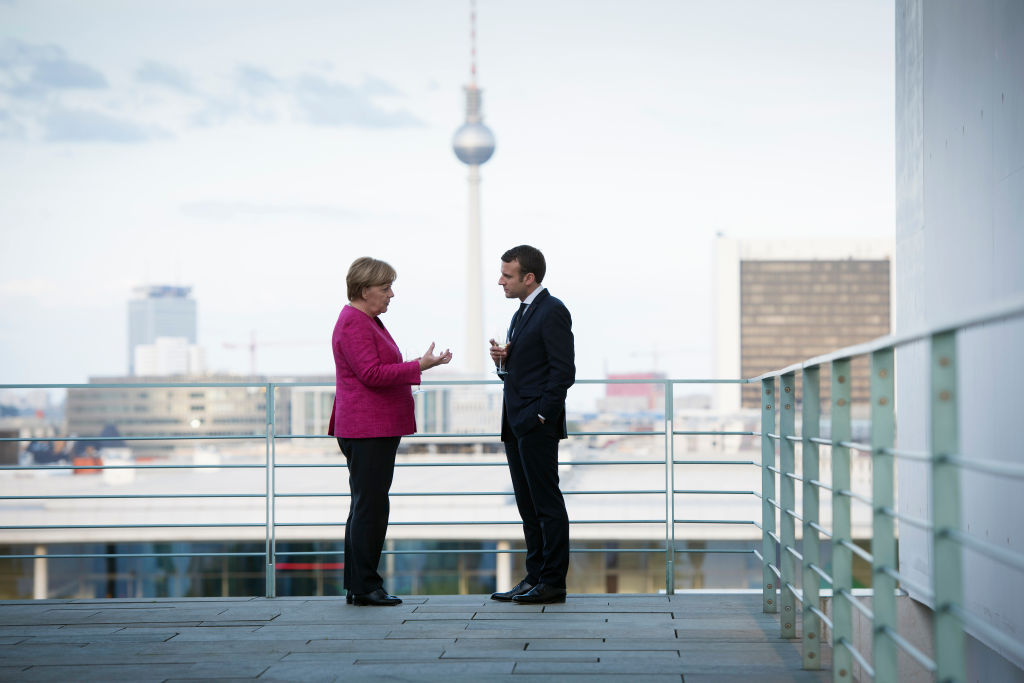
For decades, France and Germany have been known as Europe’s ruling ‘tandem’ or ‘couple’, even its ‘engine’. Together, they aimed to work to unify the continent. But, to pile up the metaphors, the French want to drive the jointly leased Euro-Porsche, while the Germans insist on rationing the petrol money. As a long list of crises—from Belarus to Nagorno-Karabakh—now shows, the two countries are not following the same road map.
That’s not surprising. As former German foreign minister Sigmar Gabriel has put it, France and Germany ‘view the world differently’ and thus have ‘distinct interests’. The truth is that Franco-German divergence is almost as old as the European Union.
That division bedevils the current French and German leaders—President Emmanuel Macron and Chancellor Angela Merkel—as much as it did their towering predecessors, Charles de Gaulle and Konrad Adenauer, ever since the two of them linked hands across the Rhine 60 years ago. They were to turn ancient enemies into trusted friends. But states don’t marry. They obey interests, not each other.
When two powers are so closely matched, the issue always is, who leads, and who follows? The hyperactive Macron certainly wants to run Europe (as, truth be told, all of his predecessors in the Élysée Palace have sought to do). Meanwhile, the plodding Merkel keeps stressing German priorities.
The current divergence is also a matter of personalities. Temperamentally, Macron is the opposite of Merkel. Whereas Macron craves the limelight, Merkel, known at home as Mutti (mum), reads from a well-thumbed script about continuity and caution.
This is reflected in their foreign policies as well. Since he won the presidency in 2017, Macron has successively flirted with US President Donald Trump, Russia’s Vladimir Putin and China’s Xi Jinping, then turned away in disillusion from all three. France simply doesn’t play in their league. Merkel, by contrast, has kept her distance from Trump, Putin and Xi.
Macron has also pronounced the ‘brain death’ of NATO, echoing Trump’s description of the alliance as ‘obsolete’. But a German chancellor would be the last to turn off the lights at the alliance’s headquarters in Brussels. After all, NATO has guaranteed Germany’s security for 70 years—and at a steep discount.
The most recent Franco-German disagreements centre on the eastern Mediterranean, where Greece and Turkey—both NATO members—threatened to come to blows over gas exploration in contested waters. Macron was quick to side with Greece, dispatching warships and planes while promising arms. Last month, he hosted a summit in Corsica involving the leaders of six other Mediterranean EU member states to provide a counterweight against Turkey. Germany wasn’t there.
Merkel instead mumbles platitudes about a ‘multi-layered relationship’ with Turkey, which must be ‘carefully balanced’. German interests are clear: Turkish President Recep Tayyip Erdogan is guarding the Turkish–Syrian border against an uncontrolled influx of Middle Eastern refugees who will head for Germany if given half a chance. Provoke him, and he can open the refugee spigot at will.
Then there’s the current flare-up between Armenia and Azerbaijan over Nagorno-Karabakh. Macron, Putin and Trump have urged the two countries to negotiate immediately, while Erdogan has sided with the Muslim Azerbaijanis against Christian Armenia. Germany, however, is merely ‘alarmed’, because Merkel can’t afford to alienate Erdogan.
After large parts of Beirut were levelled by a deadly explosion in August, Macron dashed off to Lebanon, pledging to organise an international donor conference without coordinating with Merkel. France, which controlled the Levant after World War I, wants to keep a foot in the door to maintain its regional influence; Germany has no strategic interests there and instinctively shies away from anything smacking of escalation. Different interests, different schemes.
Germany is also taking a hands-off approach to Libya, whose civil war has drawn in Russia, Egypt, Saudi Arabia, Turkey and France. The best Germany can do in the Middle East is to arrange yet another peace parley in Berlin, as is the German habit.
This is just a short list of Franco-German foreign policy differences in the past few months. But it confirms the pattern: France likes to jump in, while Germany prefers to hang back. Merkel recently proclaimed ‘the hour of Europe’ in an ‘aggressive world’. But if France and Germany won’t pull together, how could the other 25 EU members?
The irreducible reason is structural. Twenty-seven do not add up to one, whether on Russia or Belarus, where President Alexander Lukashenko is dead set on wiping out the democracy movement. When the 27 tried to hash out sanctions against Belarus, tiny Cyprus refused unless the rest agreed to penalise Turkey over illegally exploring for gas in the Mediterranean.
That could have been anticipated. Cyprus is practically a Russian economic colony, and Lukashenko is Putin’s client. After weeks of wrangling, Cyprus finally relented. The EU will now sanction 40 Belarusian officials—a punishment that gives Lukashenko no reason to pack his bags.
The EU is the world’s second-largest economic power, ahead of China, and on paper has as many troops as the United States. But riches alone do not make a strategic actor. If they did, Switzerland would be a great power.
Of course, no European leader will ever fail to appeal to Europe’s common destiny. But in the EU’s case, ‘unity’ is often the opposite of ‘agency’, the capacity to act as a whole. A bloc of 27 states bound by a unanimity requirement on issues members consider essential will never be a strategic actor, because it will always be guided only by the lowest common denominator that all can accept.
Even if France and Germany ever do march in lockstep, the others will not fall into line, because they fear the duo’s domination. Unless and until they fuse into the United States of Europe, the EU’s member states will never leave vital strategic issues up to majority rule.
Read the original article on ASPI.
Joschka Fischer : Transatlantic Tragedy
Sept 28, 2020
By Joschka Fischer
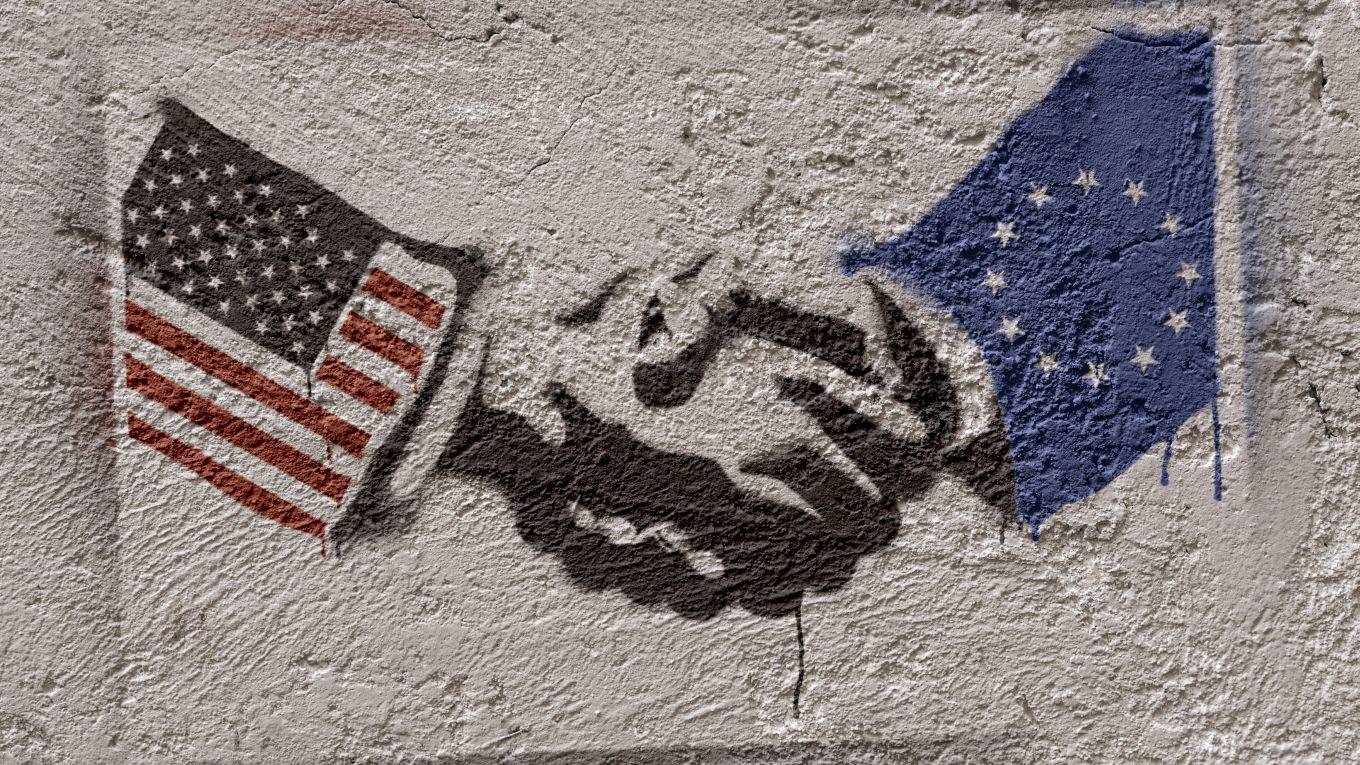
BERLIN ― Between the intensifying Sino-American drama and the persistent COVID-19 crisis, the world is undeniably undergoing fundamental, historic change. Seemingly immutable structures built up over many decades are suddenly exhibiting a high degree of malleability, or simply disappearing altogether.
In the ancient past, today’s unprecedented developments would have put people on guard for signs of a coming apocalypse. In addition to the pandemic and geopolitical tensions, the world is also confronting the climate crisis, the balkanization of the global economy, and the far-reaching technological disruptions brought on by digitization and artificial intelligence.
Gone are the days when the West ― led by the United States, with the support of its European and other allies ― enjoyed unchallenged political, military, economic, and technological primacy.
Thirty years after the end of the Cold War ― when Germany was reunified and the U.S. emerged as the world’s sole superpower ― the case for Western leadership is no longer credible, and East Asia, with an increasingly authoritarian and nationalistic China at the helm, is moving swiftly to replace it.
But it wasn’t the escalating rivalry with China that weakened the West. Rather, the West’s decline has been driven almost entirely by internal developments on both sides of the Atlantic, particularly ― though not exclusively ― within the Anglo-Saxon world.
The United Kingdom’s Brexit referendum and U.S. President Donald Trump’s election in 2016 marked a definitive break in the transatlantic commitment to liberal values and a global rules-based order, heralding the revival of a narrow-minded fixation on national sovereignty that has no future.
The transatlantic West, a concept embodied in the establishment of NATO after World War II, was the result of the military triumph of the U.S. and U.K. in the Pacific and European theaters. It was these two countries’ leaders who created the post-war order and its principal institutions, from the United Nations and the General Agreement on Tariffs and Trade (the precursor to the World Trade Organization) to the World Bank and the International Monetary Fund.
As such, the “liberal world order” ― and indeed “the West” generally ― was wholly an Anglo-Saxon initiative, one that victory in the Cold War further vindicated.
But in the ensuing decades, the Anglo-Saxon world’s powers have been exhausted, and many of its people have begun to long for a return to a mythical imperial golden age. The prospect of reclaiming past greatness has become a successful political slogan in both countries.
Between Trump’s “America First” doctrine to U.K. Prime Minister Boris Johnson’s effort to “take back control,” the common denominator is a yearning to relive idealized moments of the nineteenth and twentieth centuries.
In practice, these slogans amount to a self-defeating reversal. The founders of an international order that enshrines democracy, the rule of law, collective security, and universal values are now dismantling it from within, thereby undercutting their own power. And this Anglo-Saxon self-destruction has created a vacuum, leading not to a new order but to chaos.
Of course, Europeans ― starting with the Germans ― are in no position to sit back complacently or point the finger at the Anglo-Saxons. By free-riding on security matters and simply shrugging their shoulders at persistently high trade surpluses, they, too, bear responsibility for today’s nationalist resurgence.
If the West ― as an idea and as a political bloc ― is to survive, something will have to change. The U.S. and the European Union will each be weaker alone than as a united front. But Europeans now have no other choice but to transform the EU into a genuine power player in its own right.
A deep rift has opened up between continental Europeans ― who must hold on to the traditional Western construct ― and increasingly nationalistic Anglo-Saxons.
After all, Brexit is not really about pragmatic questions of trade; rather, it represents a fundamental break between two value systems. More to the point, what happens if Trump is re-elected in November?
The transatlantic West almost certainly would not survive the next four years, and NATO would probably face an existential crisis, even if Europeans increase their defense spending in response to U.S. demands. For Trump and his followers, the money isn’t really the issue. Their primary concern is with American supremacy and European fealty.
By contrast, if former U.S. Vice President Joe Biden is elected, the tone of transatlantic relations would certainly become friendlier. But there is no going back to the pre-Trump era. Even under a Biden administration, Europeans would not quickly forget the deep distrust that has been sown these past four years.
Whoever wins in November, the U.S. will have to deal with a Europe that puts much greater stock in its own sovereignty ― particularly on technological matters ― than it has in the past. The cozy interdependencies of the immediate post-Cold War years are long gone.
The relationship will have to be remodeled, and both sides will need to adjust. Europe will have to do much more to safeguard its own interests, and America would do well to understand that Europe’s interests may diverge from its own.
Joschka Fischer, Germany’s foreign minister and vice chancellor from 1998 to 2005, was a leader of the German Green Party for almost 20 years.
François Barrault : La 5G, un enjeu géopolitique ?
BMF Business | 29 septembre 2020
Ce mardi 29 septembre, François Barrault, président de l’IDATE DigiWorld, est revenu sur les enjeux de la 5G et a parlé de son top départ pour la vente aux enchères des fréquences, dans l’émission Good Morning Business présentée par Sandra Gandoin et Christophe Jakubyszyn.
Good Morning Business est à voir ou écouter du lundi au vendredi sur BFM Business. Dans “Good morning business”, Christophe Jakubyszyn, Sandra Gandoin et les journalistes de BFM Business (Nicolas Doze, Hedwige Chevrillon, Jean-Marc Daniel, Anthony Morel…) décryptent et analysent l’actualité économique, financière et internationale. Entrepreneurs, grands patrons, économistes et autres acteurs du monde du business… Ne ratez pas les interviews de la seule matinale économique de France, en télé et en radio.
Retrouvez l’article original et la vidéo de l’interview sur BFM Business.
Polina Vasilenko: HelioRec installed the first in the world hybrid system for lake purification
HelioRec | September 2020, Issue 1
Fruitful cooperation between EcoEnergy and HelioRec
On 13th of September 2020 the first in the world hybrid system for lake
purification: floating PV and aeration system was installed on lake Ak
Gel. This lake is located in the center of Makhachkala (Dagestan
Republic, Russia) and it faces many serious ecological problems:
- Oxygen concentration is 3 times less than normal;
- Active algae growth;
- Water evaporation (area was reduced twice during the last 20 years).
Engineers from HelioRec, a Skolkovo innovation center resident, and EcoEnergy (project developers) invented the unique solution to solve these problems.
Floating power plant with the total area of 150 m2 that consist of:
- 24 floaters with 295W photovoltaic modules (Solar Systems);
- 36 footpaths;
- 4 batteries;
- 4 aerators which can help to bring needed amount of oxygen to revive the lake within 1 year.
In the process of developing the first project of its kind in the world,
engineers were required to apply fundamentally new solutions: aerators are powered by an autonomous solar generation with a 7 kW capacity based on a floating system, and “smart control technology” allows to control the power plant from a mobile phone. The system could survive the first storm (19th of September 2020) with wind speed more than 30 m/s. Based on the results of the first installation, HelioRec and Eco-Energy will decide about increasing size of the power plant and further project development.
Would like to build something innovative, let us know: savetheplanet@heliorec.com
See more of the project here.
Ana Palacio : The EU Merry-Go-Round
Project Syndicate | Sep 24, 2020
by Ana Palacio
EU leaders have tended to operate on the assumption that Europe is inevitable, and that Europeans are inescapably bound together in a community of fate. But many citizens don’t see it that way, and if they aren’t given a more convincing rationale for European integration, the only inevitability will be the EU’s demise.
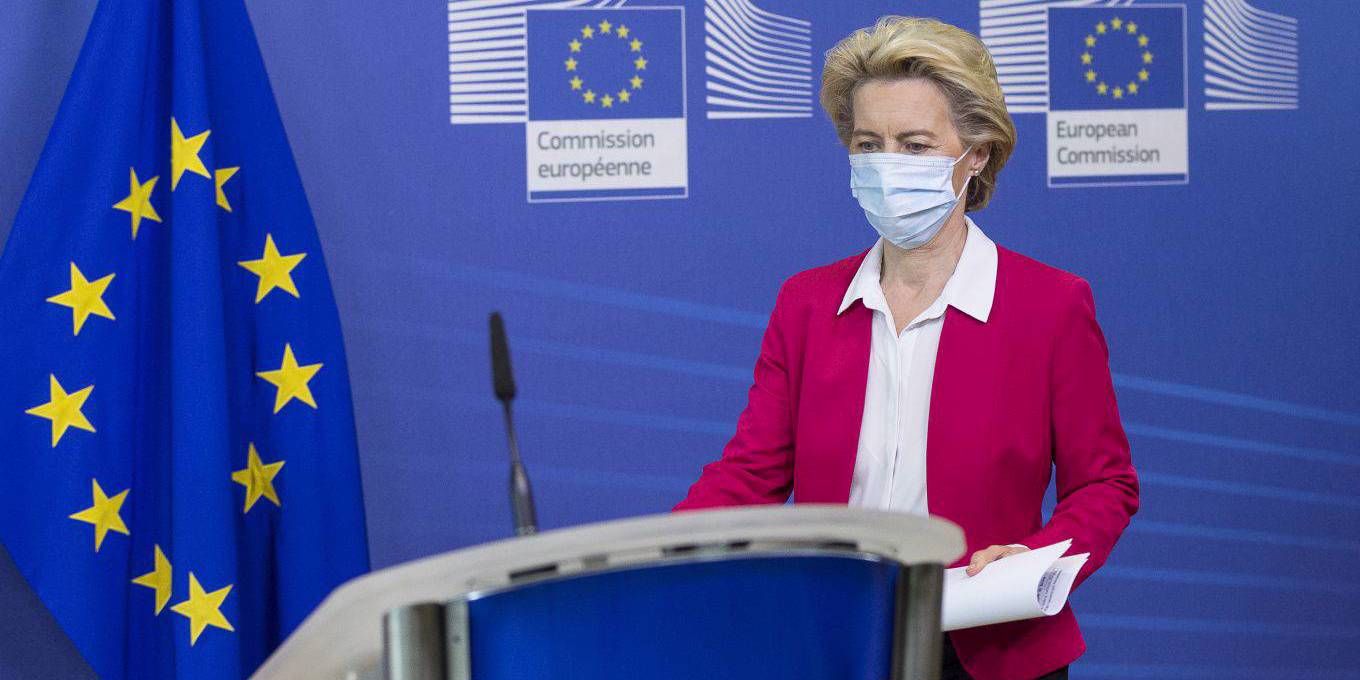
MADRID – In her first State of the European Union address, European Commission President Ursula von der Leyen offered a wide-ranging view of the current moment. She touted Europe’s recent achievements and identified its goals for the coming years. She dedicated significant attention to the European Green Deal and the Digital Agenda, and called for the completion of the banking union and capital-market integration. In normal times, it would have been a solid, if not particularly inspiring, performance. These are not normal times.
Yes, the policies and actions Von der Leyen described are important. But, at this point, no policy will fortify the EU’s foundations sufficiently. No grand-sounding program or budget increase will ensure its progress. No amount of common debt will guarantee its survival. To survive and thrive, Europe needs an overarching vision that captures the breadth of the challenges it faces, establishes a sense of common purpose among all citizens, and galvanizes popular support.
EU leaders have long peddled a hollow concept of European citizenship, one that emphasizes rights, rather than responsibilities and shared burdens. They have shown what the EU does, but not what the EU is for. And many refuse so much as to discuss the question. They believe the answer to be self-evident: Europe is inevitable, and Europeans are inescapably bound together in a community of fate.
But many citizens don’t see it that way. If they aren’t given a more convincing answer, the only inevitability will be the EU’s demise.
There have been glimmers of hope that EU leaders recognize the need to engage European citizens actively. For example, as part of the messy compromise that led to her confirmation as Commission president in 2019, Von der Leyen floated the idea of a Conference on the Future of Europe – a platform for engaging citizens in a wide-ranging debate on what the EU should look like and how to achieve it.
But the initiative has been delayed due to the COVID-19 pandemic. And even if it is implemented, it will most likely go the way of other much-touted citizen-outreach efforts, such as the underwhelming European Citizens’ Consultations of 2018. Discussions will receive plenty of press, a report will be drawn up, and a communiqué released. Then another crisis will arise, and EU leaders will all but forget it. Its only lasting impact will be the resignation and even resentment felt by the citizens who participated.
The Conference on the Future of Europe was relegated to a single passing reference in von der Leyen’s address, as she discussed the post-pandemic organization of health competencies within the EU. Moreover, the European Council has already rejected the possibility of any treaty change stemming from the Conference. The more engaged citizens are with Europe, the less they will need their national governments to act as intermediaries. The same anxiety has fueled opposition to a European-level tax, which would make the EU directly accountable to citizens.
But if the initiative has no real stakes, it will attract no significant citizen buy-in. The same goes for the European project more broadly: if citizens feel no sense of ownership over the EU and no sense that their fates are tied to those of their fellow Europeans, they will never offer anything more than passive support. And passive support simply will not get the EU or its member states – to where they need to be.
It is preposterous that in 2020, 11 years after the eurozone crisis, the European Commission president is still calling to complete the banking union in her state of the union address. Her statement on migration – it is a “European challenge,” to which we can find a solution, “if we are all ready to make compromises” – was one that should have been made and agreed to in 2015, at the height of the migration crisis. Even her comment on Belarus rang hollow, given the EU’s failure to agree on sanctions against President Aleksandr Lukashenko’s regime. And round and round we go.
Bertrand Badré : “Il faut saisir ‘l’opportunité’ du Covid pour changer” le système économique
Europe 1 | 24 septembre 2020
Julien Ricotta
Bertrand Badré, un homme d’affaires réputé proche d’Emmanuel Macron, publie un livre pour appeler à repenser le modèle économique actuel. “Il faut saisir l’opportunité du Covid, entre guillemets, pour changer ce qui peut l’être”, a-t-il déclaré jeudi soir sur Europe 1.
INTERVIEWLe système économique actuel va-t-il survivre au coronavirus ? Fragilisée de toutes parts par la pandémie de coronavirus, l’économie mondiale continue de souffrir, de l’Europe aux États-Unis en passant par la Chine. Bertrand Badré, un homme d’affaires réputé proche d’Emmanuel Macron, plaide pour une refonte du système capitaliste dans un livre intitulé Voulons-nous (sérieusement) changer le monde ? – repenser le monde et la finance après le Covid-19. “Il faut saisir l’opportunité du Covid, entre guillemets, pour changer ce qui peut l’être. A partir du moment où l’on investit des milliards et des milliards, on doit les mettre dans la bonne direction”, a-t-il insisté jeudi soir sur Europe 1.
“On a gâché la crise précédente”
Le directeur de la société d’investissement Blue Like an Orange a pointé du doigt les failles du système actuel, héritées selon lui d’une mauvaise gestion de la précédente crise économique entre 2008 et 2011. “On a gâché la crise précédente, la crise financière dite des subprimes et de l’euro. A l’époque, on a colmaté les brèches mais on n’a pas repensé le système, qui a été rafistolé et qui a montré ses fragilités avec le Covid”, a constaté le financier.
Bertrand Badré revendique tout de même être un défenseur du capitalisme. “La réalité, c’est qu’on continue à vivre et que le système a continué à vivre. On a fait en 3-4 mois ce qu’on avait fait en 3-4 ans il y a dix ans. La Réserve fédérale américaine et la Banque centrale européenne ont mobilisé 2.000 milliards d’euros en trois mois, ce qu’elles avaient mis trois ans à faire au cycle précédent”, a assuré l’ancien directeur général de la Banque mondiale.
“Les inégalités vont croître mécaniquement”
Bertrand Badré s’est également alarmé de l’augmentation des inégalités. “On entre dans une période avec des taux très bas. Si vous avez un premier milliard, on vous en prête un deuxième avec zéro et avec lequel vous pouvez investir et gagner encore plus. Si vous n’avez rien, vous voyez le bateau passer”, a-t-il déploré. “Les inégalités vont croître mécaniquement”, a-t-il prévenu.
Retrouvez l’article original et la vidéo et l’Interview sur Europe 1.
Mathilde Pak : “Il faut déployer des formations au numérique pour que personne ne reste sur le côté”
Le Monde – 23.09.2020
Marie Charrel
Avec le coronavirus, bienvenue dans un monde sans contact
Travail, santé, industrie… le Covid-19 va intensifier une série de mutations déjà à l’œuvre. Cette numérisation à marche forcée risque de se faire au détriment de l’emploi et des relations sociales.

Il n’est pas doué pour la conversation, mais ses expressos sont réputés du tonnerre. Au Lounge’X, café à l’ambiance mi-industrielle, mi-traditionnelle de Daejeon, grande ville au centre de la Corée du Sud, le robot Baris, de son petit nom, agite son bras d’acier pour remplir les tasses des habitués, plus guère surpris de ce ballet mécanique. Dans le quartier chic de Gangnam, à Séoul, inutile de chercher le serveur dans le restaurant Mad for Garlic : les plats, payés par smartphones, sont servis aux tables par un chariot automatisé. Non loin, au Novotel Ambassador Dongdaemun, le client de l’une des 211 chambres commandant un sandwich au milieu de la nuit voit débarquer un robot aux allures de minibar ambulant. Dans les rues alentours, des voiturettes autonomes sont testées pour livrer achats en ligne et repas à domicile.
Travailler, déjeuner et faire ses courses dans l’une des plus grandes mégapoles d’Asie sans approcher un être humain de la journée : en Corée du Sud, la « société sans contact » ne relève plus de la science-fiction, et elle a pris un peu plus d’ampleur encore avec la pandémie liée au Covid-19. Depuis le début de l’année, le pays a renforcé le recours aux technologies permettant de limiter les interactions pour respecter la distanciation physique. Et le président Moon Jae-in a fait desdites innovations le grand axe de son ambitieux plan de relance de 76 trillions de wons (55,8 milliards d’euros), dévoilé en juin.
Interactions virtuelles
Dans le détail, celui-ci prévoit une série d’investissements pour aider 160 000 entreprises à muscler leurs systèmes de travail à distance, pour connecter 1 300 fermes et villages de pêcheurs à l’Internet haut débit, pour équiper 240 000 étudiants en tablettes, et pour accélérer une série d’inventions telles que robots, drones et véhicules autonomes. Fort de sa longueur d’avance dans le déploiement de la 5G, le pays du Matin-Calme se rêve en leader de l’économie « untact » − un bricolage coréen entre les mots anglais undo (« annuler », « défaire ») et contact.
L’expression a été forgée en 2017 par Rando Kim, spécialiste des tendances de consommation à l’Université nationale de Séoul, pour évoquer l’essor des interactions humaines virtuelles dans la consommation comme au travail, et l’utilisation de robots pour pallier le vieillissement de la main-d’œuvre. « La Corée du Sud était encore un pays pauvre au début des années 1960, elle fait preuve d’une grande capacité à changer très vite », explique Rando Kim. Avant de confier : “Je suis tout de même surpris que l’économie “untact” soit devenue populaire si rapidement. À cause de la pandémie, les gens ont peur de se toucher, et surtout, ils doivent l’éviter”.
Cette peur de la contagion, pas un continent n’y échappe aujourd’hui. En Europe, aux Etats-Unis, en Amérique du Sud, des millions de salariés ont basculé du jour au lendemain en télétravail et des millions d’entreprises ont adapté leur fonctionnement en catastrophe. Des restaurants se sont mis à la vente à emporter ou à la livraison. Des hôpitaux, comme La Salpêtrière à Paris, ont testé des robots pour permettre aux familles de visiter virtuellement leurs proches en réanimation.
« Nous sommes des animaux sociaux, nous avons besoin du contact physique avec les autres », Olivier Servais, anthropologue
Les logiciels permettant d’organiser des réunions virtuelles ont été pris d’assaut, sans parler de la foison de nouvelles start-up proposant des modules de prise de température par infrarouge ou des machines autonomes assurant la désinfection de lieux publics. « Il devient possible d’imaginer un monde économique – des usines aux consommateurs individuels – où les contacts humains sont minimisés », estime le cabinet McKinsey, dans un récent rapport, citant également le boom des téléconsultations de médecine.
A l’heure où les contaminations repartent en Europe, alors que l’incertitude quant à la possibilité de mettre au point un vaccin rapidement est forte, il est bien sûr impossible de prédire ce à quoi ressemblera le monde d’après. Dans le scénario où le Covid-19 serait maîtrisé au cours de l’année prochaine, il est néanmoins probable que nous retrouvions une partie de nos habitudes d’avant. « Nous sommes des animaux sociaux, nous avons besoin du contact physique avec les autres », rappelle Olivier Servais, anthropologue à l’Université catholique de Louvain.
« Amplificateurs de changements »
Mais pour le reste, la pandémie va sans doute intensifier durablement une série de mutations déjà à l’œuvre depuis plusieurs années. “Les crises sont toujours des amplificateurs de changements”, résume Stefano Scarpetta, de l’Organisation de coopération et de développement économiques(OCDE). La récession de 2008 avait ainsi précipité la désindustrialisation aux Etats-Unis et cristallisé la question des inégalités en Europe. « Celle liée au Covid va marquer l’accélération du capitalisme numérique », estime Daniel Cohen, directeur du département d’économie de l’Ecole normale supérieure. Soit l’autre petit nom de l’économie « untact ».
Outre le recours massif au télétravail, l’expression la plus manifeste de ce basculement est l’envol des paiements sans contact. « Les Français s’y sont massivement convertis pendant le confinement, et ils le sont restés depuis : la crise a servi de déclic”, note Julien Lasalle, secrétaire de l’Observatoire de la sécurité des moyens de paiement, à la Banque de France. Entre juillet et septembre, les retraits de billets aux distributeurs sont en baisse de 10% par rapport à la même période l’an passé, et les paiements en magasin avec saisie du code confidentiel ont chuté de 25%.
« En revanche, les paiements sans contact ont bondi de 65 % par rapport à 2019, favorisés par le relèvement du plafond de 30 à 50 euros, et les paiements par l’e-commerce ont progressé de 25 % », ajoute M. Lasalle. « La même tendance s’observe dans la plupart des pays européens : rarement un basculement aussi rapide des usages n’avait été observé », confirme Gilles Grapinet, PDG de Worldline, premier groupe de services de paiement en Europe.
De même, l’e-commerce a renforcé un peu plus encore son assise : les achats en ligne de produits de consommation courante ont progressé de 45,7 % au deuxième trimestre, selon la Fédération d’e-commerce et de la vente à distance (Fevad). Et ce, au profit des géants américains tels qu’Amazon. “Les petits commerçants s’y sont mis aussi pour compenser la baisse des visites en boutique, nuance M. Grapinet. Le taux de pénétration du numérique dans nos vies a gagné peut-être 3,5 voire 10 ans.”
Du côté des usines, contraintes de fonctionner avec moins de personnel, les robots, imprimantes 3Det autres machines autonomes se sont également rendus un peu plus indispensables encore. Au point de remplacer pour de bon une partie des ouvriers ? L’économie sans contact sera-t-elle une société sans travail ?
Polarisation des emplois
Depuis plusieurs années, déjà, l’automatisation des tâches soulève les inquiétudes, dans l’industrie comme dans les services. D’après l’OCDE, la numérisation pourrait engendrer la disparition de 14 %des emplois dans les grands pays industrialisés ces vingt prochaines années, tandis que 31,6 % des postes seraient profondément transformés. Au risque que cela accélère un peu plus encore la disparition des classes moyennes.
« Mais cela n’a rien d’inéluctable : tout dépend de la façon dont on s’emparera de ces technologies ces prochaines années », souligne Daniel Cohen, qui décrit ces mutations dans son dernier ouvrage, Il faut dire que les temps ont changé (Ed. Albin Michel, 2018). A l’hôpital, les robots remplaceront-ils les infirmiers pour les gestes simples ? Ou bien, en leur libérant du temps, leur permettront-ils de se consacrer un peu plus aux patients, voire de réaliser des tâches jusqu’ici dévolues aux médecins ? De même, le télétravail favorisera-t-il un meilleur équilibre entre vies personnelle et professionnelle, ou bien accélérera-t-il la délocalisation de postes de cadres vers les pays à bas coût ?
“Cela suppose de déployer des formations et de l’éducation au numérique pour que personne ne reste sur le côté, notamment parmi les petites entreprises”, Mathilde Pak, spécialiste de la Corée à l’OCDE
Deux scénarios sont possibles pour l’avenir, explique Daniel Cohen. Dans le premier, la numérisation à outrance, utilisée pour réduire les coûts, intensifierait la polarisation des emplois et “conduirait à une forme de déshumanisation”, creusant les inégalités. La Conférence des Nations Unies sur le commerce et le développement (Cnuced) s’en est alarmée dès le début de la pandémie : “Le passage rapide à la numérisation est susceptible de renforcer la position de quelques plateformes méga-numériques, prévient l’institution. Le fossé béant entre les pays sous-connectés et hypernumérisés va s’élargir.”
Dans le second scénario, les technologies numériques seraient utilisées en complémentarité des salariés, permettant notamment de pallier le vieillissement de la population active. « Cela suppose de déployer des formations et de l’éducation au numérique pour que personne ne reste sur le côté, notamment parmi les petites entreprises, les autoentrepreneurs et les plus âgés », souligne Mathilde Pak, spécialiste de la Corée à l’OCDE.
A Séoul, au début de la pandémie, des applications mobiles permettant de connaître en temps réel les stocks de masques dans les commerces ont fleuri. Grâce à elles, les jeunes ont réussi à s’équiper en quelques clics. Mais les retraités, eux, ont été des milliers à faire la queue pendant des heures devant les pharmacies de quartier, parfois en vain, car très peu ont su utiliser les applications. Rando Kim, le père de l’économie “untact”, est le premier à en convenir : “Réduire cette fracture est l’un des défis que mon pays devra relever ces prochaines années.” Et pas seulement le sien…
Antoine Flahault : « Nous sommes peut-être en train d’observer les fondements de ce qui deviendra une deuxième vague »
L’épidémiologiste juge préoccupante la hausse des hospitalisations en France et en Espagne, mais souligne que la mortalité reste faible à ce stade en Europe.
Par Yves Bourdillon
Publié le 15 sept. 2020 à 17:21 | Mis à jour le 16 sept. 2020 à 8:39
Quelle est votre évaluation de la dynamique du Covid-19 en Europe ?
Nous avons bénéficié d’un répit estival bienvenu, mais constatons effectivement depuis peu une circulation exponentielle du virus en France, Espagne, Royaume-Uni, Autriche, Suisse, etc. Ce qui peut s’expliquer en partie par une politique de tests très intense, sans précédent historique. La notion de nouveaux « cas » manque par ailleurs d’une définition précise, puisqu’elle mêle aujourd’hui des malades plus ou moins symptomatiques et sévères, des cas contagieux mais asymptomatiques, ainsi que des personnes positives au test PCR dans les muqueuses nasales, mais avec une charge virale insuffisante pour les rendre contagieux. Pour autant, la hausse des hospitalisations en France et en Espagne nous oblige à envisager un scénario inquiétant, qui serait le résultat d’un « ensemencement » du virus sur tout le territoire, après une première phase d’émergence de « clusters ».
La fameuse deuxième vague ?
Plus précisément, nous sommes peut-être en train d’observer les fondements de ce qui deviendra une deuxième vague. Ce scénario d’une seconde vague plus homogène sur le territoire et peut-être l’Europe entière impose de s’y préparer, de mettre sur la table toutes les mesures nécessaires s’il survenait à l’automne.
Dans un autre scénario, plus optimiste, au vu du fait que, par ailleurs, cette flambée n’est pas observée partout en Europe, l’épidémie pourrait continuer à se propager seulement sous la forme de clusters, contrôlables tant que l’infection restera limitée aux jeunes de moins de 40 ans, lesquels développent très rarement des complications graves. Ce scénario s’il perdurait tout l’hiver permettrait de faire face comme cet été en Europe sans mesures trop contraignantes.
Comment expliquez-vous le décalage paradoxal entre flambée de cas et stagnation des décès partout en Europe, sauf dans quelques régions ?
En effet, ce décalage me pousse d’ailleurs à ne pas parler encore, malgré la progression des cas depuis presque deux mois, de deuxième vague, dont la définition devrait se restreindre aux situations de hausse importante et concomitante des décès. On ne teste pas non plus de la même manière qu’en mars, au risque que les données bénéficient d’un phénomène de loupe, avec de nombreux cas asymptomatiques. J’irais jusqu’à dire que si cet été on n’avait pas disposé de tests PCR massifs et si on n’avait pas été sensibilisés auparavant par la vague du printemps, on n’aurait seulement pas repéré le phénomène épidémique actuel.
Pourquoi cette différence paradoxale entre dynamique des cas et des décès ? Je ne crois pas qu’une souche moins létale aurait supplanté les autres. Certes les méthodes de réanimation, notamment de ventilation, ont évolué en tirant les leçons du printemps. De nouveaux traitements pour les cas graves, comme la dexaméthasone , s’avèrent aussi efficaces. Cela explique peut-être en partie pourquoi moins de patients décèdent dans les services d’urgence, alors qu’en mars, au moins 20 % des gens hospitalisés pour Covid en mouraient. Mais cela n’explique pas pourquoi beaucoup moins de cas sont hospitalisés qu’au printemps.
Du coup, quelle serait l’explication ?
La raison principale de cette faible sévérité cet été en Europe, c’est l’âge – moins de 40 ans – des personnes contaminées. Les personnes âgées se méfient et se protègent sans doute beaucoup mieux que cet hiver, les jeunes testés plus largement entrent peut-être moins en contact avec des parents à risque, lorsqu’ils se savent positifs. Si tout restait comme en juillet-août, il n’y aurait pas de raison de s’inquiéter particulièrement d’une pathologie moins grave que bien des infections respiratoires virales banales. Toutefois, la hausse soudaine des hospitalisations en réanimation depuis une dizaine de jours en Paca oblige à une vigilance certaine.
Paris et Londres mettent l’accent depuis quelques jours moins sur la prophylaxie du « tout masque » que, de nouveau, sur une restriction des rencontres…
Si on veut freiner l’épidémie, on ne peut jouer que sur deux paramètres : la probabilité d’une part que des cas transmettent le virus, donc en misant sur le port du masque qui, tout seul, n’est pas la panacée, et impose d’être bien porté, le lavage des mains, la distanciation sociale, la ventilation des locaux. D’autre part, on doit diminuer le nombre de contacts entre les bien portants et les porteurs du virus, avec la promotion du télétravail, le moindre recours aux transports publics, la fermeture éventuelle d’écoles, la réduction de la jauge des réunions. Ainsi, les Suédois, souvent présentés comme désinvoltes, avaient fixé très tôt une limite de 50 personnes pour les rassemblements. Le choix n’est donc pas entre le masque et la limite des rassemblements, ce sont deux mesures complémentaires légitimes pour limiter les conséquences d’une flambée épidémique, si elle devait se produire.
Prenez-vous au sérieux la théorie selon laquelle la baisse de la mortalité s’expliquerait par le fait que nous ne serions plus très loin d’une immunité collective ?
Je suis sceptique à propos d’une telle hypothèse aujourd’hui . Aucune enquête de séroprévalence, c’est-à-dire de gens ayant des anticorps, n’établit que nous nous approchons du seuil de 50 à 60 % de personnes déjà infectées à partir duquel, effectivement, le virus ne parviendrait plus à circuler aussi facilement. La proportion de personnes d’ores et déjà immunisées est, selon toutes les enquêtes, de 10 % maximum, sauf dans quelques villes comme Manaus, Bombay ou Bergame. Il n’est théoriquement pas impossible que la proportion réelle soit un peu supérieure, mais l’hypothèse que nous ayons déjà atteint un seuil d’immunité collective n’est pas compatible avec la circulation du virus constatée actuellement dans de larges parties d’Europe. Nous serons peut-être à ce seuil au printemps si l’épidémie est intense cet automne et en hiver.
Yves Bourdillon
Bertrand Badré : “Crise : comment repenser le monde d’après dans la finance?”
Ancien directeur financier de la Banque mondiale, Bertrand Badré croit au “capitalisme moral”
BFM Business – 11.09.2020
L’ancien directeur financier de la Banque mondiale, fondateur de la société d’investissement BlueLike an Orange visant à financer des projets susceptibles de générer un impact positif dans les pays émergents, est persuadé qu’un “capitalisme moral” est possible.
Justice and Might
Éditoriaux de l’Ifri, September 1st, 2020
Looking back on the last few weeks, a famous quote by Goethe (from his report on the siege of Mainz in 1793) came to mind: “Better to commit an injustice than to countenance disorder.” In other words, disorder engenders more injustice than it eradicates. But, if one word characterises the world at the end of summer 2020, it is disorder.
The coronavirus pandemic continues to wreak havoc on the planet, as much through an underlying anxiety increased by contradictory statements made every day, as through the objective economic collapse caused by the steps taken to fight it. Democratic States are struggling to find the right balance between sometimes-hypocritical measures to combat the virus and the search for economic recovery in the fog of an uncertainty that is partly self-sustaining due to all kinds of contradictions.
The case of the United States is particularly noteworthy because the pandemic disorder is superimposed on the deeper one of a (not only racial) social fracture that existed before Donald Trump’s election, but which he amplified as if just for fun. The magic of the 45th President of the United States continues to work, however. He manages to pass himself off to half of his fellow citizens as the saviour of an America devitalized by the Democrats. His opponent Joe Biden is clearly destabilized by the situation as a whole. Trump’s autocratic counterparts, whom he admires so much, have nothing on his mastery of the art of fake news. The bottom line is that the world’s leading power has never seemed more divided since the Civil War. It is more violent than ever, and we do not see spectacular American disorder accompanied by a decrease in injustice. Whatever the outcome of the 3 November election, the United States will not suddenly come together the next day. And a divided America will not become a world leader again. This means that the international system’s disorder is not going away any time soon. Who could believe that it would advance the cause of justice?
Injustice begins with the selective gaze. Human beings are made in such a way that they feel more concerned about the “near” than the “distant”. For a few days this summer, the explosion in Beirut caught the attention of everybody in the world still interested in Lebanon, especially in France, for historical and emotional reasons dating back to the 16th century. Unfortunately, Lebanon has been experiencing a more or less latent civil war for almost half a century, with the only common ground between the communities being the plundering of the common good at the expense of any notion of Lebaneseness. As in other countries (I am thinking particularly of Algeria), its youth was rumbling with revolt long before the tragedy on 4 August, but in vain. And it is unsure whether the terms potential donors rightly set to pull the country out of the abyss will be implemented. In addition, the Israeli-Palestinian conflict is now on the periphery of Middle East politics as a whole, as illustrated by the spectacular rapprochement between the United Arab Emirates and Israel, another highlight of recent weeks. In the new framework taking shape, revolving around the key interests of Iran, Saudi Arabia, Turkey and, outside the region, the United States, Russia and, increasingly, China, Lebanon no longer matters. In absolute terms, this is deeply unfair. Life is cruel to those who do not take sufficient care of themselves and indulge in disorder at best concealed by a trompe l’oeil décor. Here too, “history-in-the-making” reminds us that justice cannot spontaneously spring from disorder.
What can be said about Belarus? If disorder can only engender injustice, must it be deduced that one must give Alexander Lukashenko, one of those potentates who captured a part of the Soviet legacy, free rein to establish a sort of conservative monarchy increasingly out of step with the march of history? The answer is obviously no, for the fact that disorder engenders injustice does not justify preserving any order. Lukashenko has the same problem as all the regimes that, with time, have no other goal than perpetuating themselves — an illustration of Spinoza’s conatus. But if “one” must not give the Minsk dictator free rein, what must “one” do? The answer can only be political. And first of all, who is this “one”? In contemporary international relations, power still matters more than anything else. At most, it might be tempered by international law as expressed in the framework of the UN. Like it or not, “one” consists first and foremost of the States that are most interested in Belarus (other than for appearance’s sake, as is often the case in politics), starting with Russia. The Kremlin can be expected to back any formula allowing closer ties between Belarus and Russia. In the present international context, I objectively see no major player willing to invest in a Minsk Spring.
The dialectic between justice and order, or injustice and disorder, is an ever-recurring question. The news of the day, whatever it may be, can be relied upon to dissertate about it. Undoubtedly, “summer breaks” lend themselves well to such distancing. I began by quoting Goethe but, closer to us, I often think of Albert Camus, about whom much was said earlier this year on the 60th anniversary of his accidental death. Unlike Jean-Paul Sartre, the author of The Plague clearly made a distinction between revolt and revolution. In the most broadly accepted meaning of the term, revolt is above all an emotional attitude towards injustice. From the perspective of action, it is morally superior when expressed in forms of personal or collective commitment based not on hatred and blind violence – as happens in any revolution – but on ethics, necessarily winning in the long term as long as it is not corrupted. Such commitments are winning propositions because, through perseverance, they always meet their kairos, their propitious moment for success. I imagine Camus as a promoter of a philosophy of history that might be called dynamic equilibrium, like a spiral coiling around an axis of an essentially ethical nature. I do not think I am going too far in interpreting the great writer, for whom the world may have been absurd but not to the point of encouraging absurd policies.
This type of thinking is fundamental today, when, as UN Secretary General Antonio Gutteres says, the spirit of international cooperation is at its lowest ebb. Violence manifests itself between but also within nations, as we see in countries as attached to the democratic ideal as France or the United States. In the face of disorder, democracies are often handicapped compared to authoritarian regimes. By dint of inefficiency, they can sometimes lose their legitimacy. Authoritarian States have immense vulnerabilities, but in certain circumstances such as the present, time can play in their favour.
I will conclude with an upbeat note on the European Union, which is once again demonstrating its ability to move forward – albeit painfully – with every major crisis. It is, on an already very large regional scale, the only living laboratory of international governance worthy of the name, which allows us to hope that in the long term democracy and efficiency will go hand in hand: economic and social efficiency, but also security efficiency, both from an internal and external point of view.
Democracy without authority is a breeding ground for authoritarianism. How can I not finish with Pascal’s famous thought: “Justice without might is helpless; might without justice is tyrannical. Justice without might is gainsaid, because there are always offenders; might without justice is condemned. We must then combine justice and might, and for this end make what is just strong, or what is strong just.” In this regard, global governance still has a long way to go. So does the European Union.
L’autonomisation économique des femmes marocaines au temps de la Covid-19 et d’avant : comprendre pour agir
Policy Center for the New South | 16 juillet 2020
Aomar Ibourk , Karim El Aynaoui , Tayeb Ghazi
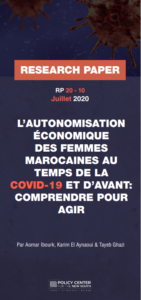 La femme représente la moitié de la société. Côte à côte avec l’homme, elle a toujours contribué au développement des sociétés lorsque les facteurs de conversion lui ont permis de mettre à l’oeuvre ses potentialités pour parler simple. Aujourd’hui, cette catégorie de la société marocaine, et mondiale, subit de manière disproportionnée les répercussions de la crise de la Covid-19, sur plus d’un aspect de la vie en société. Ceci est particulièrement vrai lorsqu’il s’agit des domaines de l’autonomisation économique des femmes. Les observations que nous présenterons soutiennent que les effets économiques de la Covid-19 sont exacerbés pour les femmes et les filles, au Maroc et ailleurs. Ils se matérialisent en des pertes d’emplois, en la vulnérabilité qui leur est associée et au travail en danger. L’objectif de ce Research Paper est de mettre en avant l’effet de la crise de la Covid-19 sur la vie des femmes en société, avec un accent sur les retombées sur le travail féminin. Une présentation de la situation des femmes dans le monde sera notre point de départ. Ensuite, nous jetons la lumière sur la situation des femmes au Maroc pendant cette crise. Enfin, nous analysons le préexistant avec, à l’esprit, la conviction selon laquelle la situation des femmes sur le marché du travail ne peut être adressée adéquatement en l’absence de compréhension fine des problématiques d’avant la crise.
La femme représente la moitié de la société. Côte à côte avec l’homme, elle a toujours contribué au développement des sociétés lorsque les facteurs de conversion lui ont permis de mettre à l’oeuvre ses potentialités pour parler simple. Aujourd’hui, cette catégorie de la société marocaine, et mondiale, subit de manière disproportionnée les répercussions de la crise de la Covid-19, sur plus d’un aspect de la vie en société. Ceci est particulièrement vrai lorsqu’il s’agit des domaines de l’autonomisation économique des femmes. Les observations que nous présenterons soutiennent que les effets économiques de la Covid-19 sont exacerbés pour les femmes et les filles, au Maroc et ailleurs. Ils se matérialisent en des pertes d’emplois, en la vulnérabilité qui leur est associée et au travail en danger. L’objectif de ce Research Paper est de mettre en avant l’effet de la crise de la Covid-19 sur la vie des femmes en société, avec un accent sur les retombées sur le travail féminin. Une présentation de la situation des femmes dans le monde sera notre point de départ. Ensuite, nous jetons la lumière sur la situation des femmes au Maroc pendant cette crise. Enfin, nous analysons le préexistant avec, à l’esprit, la conviction selon laquelle la situation des femmes sur le marché du travail ne peut être adressée adéquatement en l’absence de compréhension fine des problématiques d’avant la crise.
Téléchargez cette publication sur le site du Policy Center for the New South.
Volker Perthes: Can the US and Germany finally see eye to eye on China?
Atlantic Council – September 3, 2020
by Roderick Kefferpütz
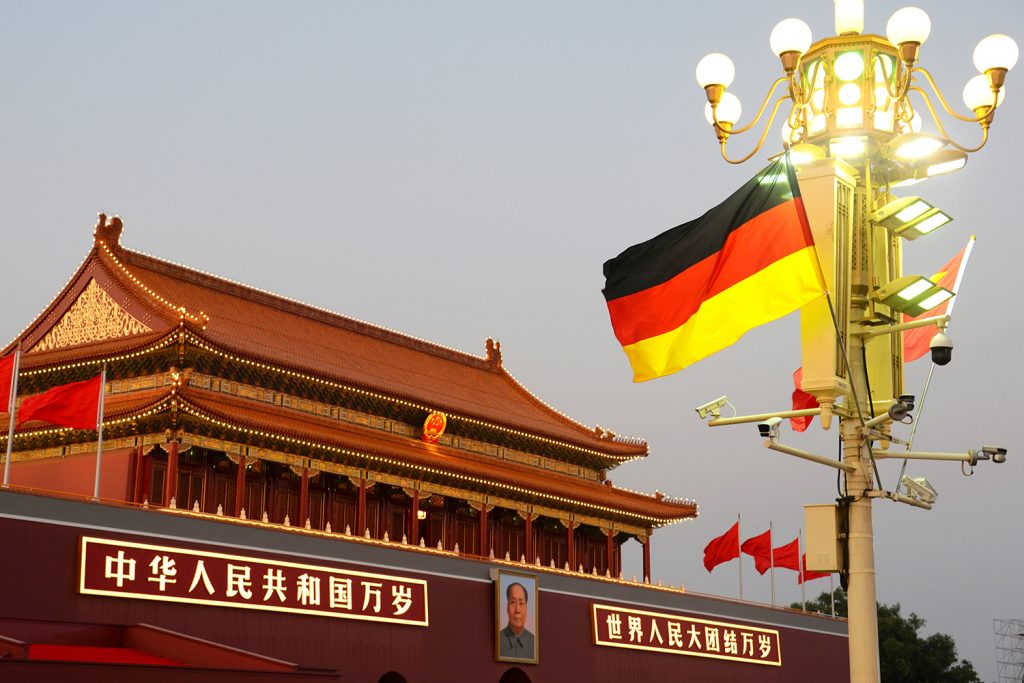
“Can you trust the American leadership? Isn’t China possibly more reliable than the United States?”
That’s not a line from a Chinese Communist Party mouthpiece, but rather a rhetorical question from Volker Perthes, director of Germany’s most important foreign policy think tank, the Institute for International and Security Affairs, which advises the federal government. Perthes went on to list the Trump administration’s many instances of global disengagement (withdrawing from the Paris climate accord, the Intermediate-Range Nuclear Force Treaty, and UNESCO) and implicitly answered his own question with a resounding yes.
Something seems rotten in the state of Germany. Having been a central battleground between democracy and communism during the Cold War, the country is embarrassingly quiet in the US-China hegemonic conflict. Under the leadership of the Christian Democratic Union (CDU), Germany has avoided picking sides. Berlin has shied away from taking a tough line on Chinese human rights abuses and opposes excluding Huawei from its 5G network, while continuing to enjoy the US security umbrella. Germany’s economic interests and political skepticism of the United States have stopped it from joining the fray, but the time could be coming where Berlin and Washington look to join forces again.
Money talks
Germany’s business model is not made for a world in geopolitical disarray. Since the end of the Cold War, Germany has been one of the greatest beneficiaries of the US-led international political and economic order. Living comfortably under the US security umbrella, Berlin has not had to take responsibility for geopolitical affairs, providing it the freedom to focus exclusively on advancing the country’s commercial interests. While the United States was the world’s policeman, Germany became the world’s salesman. Before the coronavirus crisis, overseas revenue accounted for almost 80 percent of Germany’s thirty DAX-listed companies. Germany has consistently run the world’s largest current account surplus and nearly 56 percent of its manufacturing sector jobs are linked to exports. This has made Germany vulnerable to international friction, as geopolitical conflict is bad for business. When I asked a member of the German diplomatic corps about Berlin’s failure to criticize China’s dubious imprisonment of Canadians Michael Kovrig and Michael Spavor, his answer was simple: it would endanger our economic interests.
Decoupling from China, as the United States is advocating, is not a feasible strategy for Germany. Its global economic entanglements and dependence makes Berlin unwilling to reduce, let alone cut-off, any trade relations with either China or the United States. Berlin will not join a US strategy to completely decouple from China, especially when the only goal seems to be to keep China down.
Growing mistrust across the Atlantic
Berlin’s reluctance to join the US push against Beijing is also motivated by its deteriorating political relationship with Washington. US-German relations are at a low point, for which both sides are to blame. While many Germans might be asking themselves whether China is a more reliable partner than the US administration, they fail to actually look in the mirror and ask whether Germany is a reliable partner to the United States. Germany is failing to meet its NATO defense spending obligations, it’s not reducing its current account surplus, it’s so far not excluding Huawei from its 5G network, and it is still allowing the construction of the Nord Stream 2 gas pipeline despite Russia’s invasion of Ukraine, the murder of a Chechen in Berlin, and the poisoning of Russian opposition leader Alexei Navalny.
None of these contentious issues are particularly new. Previous US administrations have continuously tried to push Berlin to act—to no avail. What has changed under the Trump administration isn’t really the substance, but the style. Trump has approached Germany with viciousness, vitriol, and threats. He has expected Germany to blindly follow the US lead as a vassal.
In his recent op-ed, Thomas L. Friedman rightly argues that this approach has alienated rather than encouraged Germany to pushback against China. However, it does not stand to reason that a more diplomatic, outreach-oriented approach would have been any more successful. After all, that approach had been employed by previous administrations without any notable success.
The situation now has reached such a poisonous level that any accommodative move towards the other side by either capital could be considered a concession by domestic critics. US Secretary of State Mike Pompeo argues the United States is leading a free democratic alliance against China, but that is not the case right now. In a free democratic alliance, allies would together, on equal terms, discuss the general approach and strategy. Instead, the Trump administration expects allies to blindly do as their told; that’s neither free nor democratic.
Time for a change?
The upcoming US and German elections could offer a window of opportunity to relaunch transatlantic relations, with at least one, if not two, new leaders on both sides of the Atlantic. Many actors in the German political establishment have started to understand—perhaps indeed due to the Trump administration’s aggressive style, but also because of Beijing’s new diplomatic aggression—that new geopolitical realities mean that business-as-usual is not an option anymore with China. The “pro-engagement with China” camp in Germany, led by Chancellor Angela Merkel, is on the wane. The need to consider geopolitics alongside economics is gaining traction, as well as the need for more military spending. Simultaneously, the US approach towards Germany should change, as when you treat your allies like vassals, you risk losing them.
The United States and Germany need to find a common foreign policy approach towards China. The goal of such a strategy should not be to keep China down, but rather strengthening democracy worldwide to contain China, which would be a better positive narrative to entice German participation. This can range from establishing a league of democracies, to forming supply chains that evade autocratic influence. Such a strategy wouldn’t engage in full decoupling with China, but instead pursue a two-pronged approach: selective decoupling in areas of high national security, such as 5G, alongside intensive coupling with other states in the world. China’s growth as a global power is partly due to it pursuing such a strategy. Its Belt and Road Initiative is a geo-economic coupling strategy that ensures everybody is connected to, and ultimately dependent on, Beijing. Connectivity is power and the transatlantic alliance needs to counter Beijing with its own geoeconomic networking and attraction strategy, winning hearts, minds, and allies.
Such a strategy could help meet Germany’s economic wishes too. Expanding and intensifying trade, technology, and economic flows with states in Southeast Asia, Africa, or Latin America would help diversify Germany’s economic relations. Japan is a case in point. Tokyo is diversifying its supply chains, enticing companies to reshore production back to Japan, and increasing its economic resilience. It’s not decoupling from China and it seems to be able to continue its economic diversification without incurring any Chinese retaliatory measures. Germany is starting to take a page out of the Japanese playbook. In its recently published Indo-Pacific strategy, the German federal government actively expresses the desire to reduce dependencies via diversification.
After much too long a time, the political climate towards China and Russia is finally starting to change in Berlin. This is an opportunity for the United States and Germany to re-engage and turn Germany from a weak link in the transatlantic alliance to a reliable partner.
Roderick Kefferpütz (@Rkefferputz) is deputy head of unit for strategy at the State Ministry of Baden-Württemberg. He’s a member of the Atlantic Council’s US-Germany Renewal Initiative. The views expressed are his own.
Discussion with Bertrand Badré
This week, PS talks with Bertrand Badré, a former managing director of the World Bank and the current CEO of Blue like an Orange Sustainable Capital.
Project Syndicate: In your latest PS commentary, you, Ronald Cohen, and Bruno Roche compare post-war multilateralism and financial capitalism to “various systems of exploitation” throughout history, which “have built empires and amassed great wealth while performing atrociously in terms of human wellbeing and social capital.” The latter systems’ collapse “represented moral progress,” you wrote, “because it allowed for a new era in which human rights and shared prosperity could prevail.” What makes you think capitalism can be “refashioned,” rather than that it will or should be replaced?
Bertrand Badré: It was less a comparison than a reminder and, I hope, a wakeup call. Systems do not last forever. They evolve, collapse, get replaced. If the systems are highly unjust or exploitative, this can be a very good thing. But if they are merely flawed, there is no guarantee that what replaces them will be superior.
I believe that the market economy is the best system we have found to allocate scarce resources – financial, human, social, and environmental – within constraints. So, unlike the empires to which I referred, it does not need to be fully abandoned.
In my view, our best bet is to uphold the market economy’s core principles, while addressing its constraints – market expectations (such as from consumers, investors, or workers) on the one hand, and regulations and citizen expectations on the other – so that it tackles issues like inequality and climate change. If we fail, another system could arise to replace the market economy, and it could leave us worse off. […]
Olivier Blanchard : « Il faut favoriser l’emploi des nouveaux entrants »
28/08/2020 – Le Point
Pour Olivier Blanchard, l’ancien chef économiste du FMI, le plan de relance que va détailler le gouvernement doit remplir quatre missions.
Propos recueillis par Marie Bordet
«Le virus va demeurer une menace constante jusqu’à l’arrivée d’un vaccin. Une menace contrôlée, certes, mais suffisamment forte pour ralentir durablement la croissance. Certains problèmes disparaîtront grâce à la vaccination, donc probablement avant la fin de 2021. C’est le cas de la crise qui touche l’hôtellerie et la restauration, l’événementiel et la culture. Mais il faut que la plupart de ces entreprises tiennent jusque-là et, sans aide, c’est loin d’être évident. Certains chocs vont être, en revanche, plus permanents. Dans l’aéronautique, par exemple. On peut penser que le modèle du tout […]
Trump’s International Economic Legacy
If US President Donald Trump loses November’s election, he will most likely leave an insignificant imprint on some parts of the global economic system. But in several others – especially US-China relations – his term in office may well come to be seen as a major turning point.
PARIS – It would be foolish to start celebrating the end of US President Donald Trump’s administration, but it is not too soon to ponder the impact he will have left on the international economic system if his Democratic challenger, Joe Biden, wins November’s election. In some areas, a one-term Trump presidency would most likely leave an insignificant mark, which Biden could easily erase. But in several others, the last four years may well come to be seen as a watershed. Moreover, the long shadow of Trump’s international behavior will weigh on his eventual successor.
On climate change, Trump’s dismal legacy would be quickly wiped out. Biden has pledged to rejoin the 2015 Paris climate agreement “on day one” of his administration, achieve climate neutrality by 2050, and lead a global coalition against the climate threat. If this happens, Trump’s noisy denial of scientific evidence will be remembered as a minor blip.
In a surprisingly large number of domains, Trump has done little or has behaved too erratically to leave an imprint. Global financial regulation has not changed fundamentally during his term, and his administration has flip-flopped regarding the fight against tax havens. The International Monetary Fund and the World Bank have carried on working more or less smoothly, and Trump’s furious tweeting did not prevent the US Federal Reserve from continuing to act responsibly, including by providing dollar liquidity to key international partners during the COVID-19 crisis. True, Trump has repeatedly spoiled international summits, leaving his fellow leaders flummoxed. But such behavior has been more embarrassing than consequential.
But, Trump will be remembered for his trade initiatives. Although it has always been difficult to determine the real aims of an administration beset by infighting, three key goals now stand out: reshoring of manufacturing, an overhaul of the World Trade Organization, and economic decoupling from China. Each objective is likely to outlast Trump’s tenure, at least in part.
Reshoring looked like a costly fantasy four years ago, and it still is in many respects. As my Peterson Institute colleague Chad Bown has documented, Trump’s chaotic trade war with the world has often hurt US economic interests. But reshoring as a policy objective has gained new life after the pandemic exposed the vulnerability entailed by depending exclusively on global sourcing. Biden has endorsed the idea, and “economic sovereignty” – whatever that means – is now a near-universal new mantra.
US Trade Representative Robert Lighthizer claims that a “reset” of the WTO has been a high priority for the administration. If so, it has made some headway. The other G7 countries now share the long-standing US dissatisfaction with the WTO’s leniency toward China’s government subsidies and weak intellectual-property protection. There is also a recognition that some US grievances against WTO dispute-settlement procedures (and in particular the so-called Appellate Body) are valid. But whether the battle ends with a reset or the deconstruction of the multilateral trading system remains to be seen.
The major watershed is US-China relations. Although bilateral tensions were apparent before Trump’s election in 2016, nobody spoke of a “decoupling” of two countries that had become tightly integrated economically and financially. Four years later, decoupling has begun on several fronts, from technology to trade and investment. Nowadays, US Republicans and Democrats alike view bilateral economic ties through a geopolitical lens.
It is not clear whether Trump merely precipitated a rupture that was already in the making. He is not responsible for Chinese President Xi Jinping’s authoritarian assertiveness, and he did not devise the Belt and Road Initiative, China’s massive transnational infrastructure and credit program. But it was Trump who ditched his predecessor Barack Obama’s carefully balanced China strategy in favor of a brutally adversarial stance that left no scope for events to take a different course. Whatever the cause of decoupling, there won’t be a return to the status quo.
A Biden administration would also not find it easy to achieve its goal of restoring ties with US allies, like-minded democracies, and partners around the world. Until Trump’s presidency, much of the world had become accustomed to regarding the US as the main architect of the international economic system. As Adam Posen, also of the Peterson Institute, has argued, the US was a sort of chair-for-life of a global club whose rules it had largely conceived, but still had to abide by. The US could collect dues, but was also bound by duties, and had to forge a consensus on amendments to the rules.
Trump’s trademark has been to reject this approach and treat all other countries as competitors, rivals, or enemies, his overriding objective being to maximize the rent that the US can extract from its still-dominant economic position. “America First” epitomizes his explicit promotion of a narrow definition of the national interest.
Even if the US under Biden were willing to make credible international commitments again, its outlook may change lastingly. The former Trump adviser Nadia Schadlow recently argued that Trump’s tenure will be remembered as the moment when the world pivoted away from a unipolar paradigm to one of great-power competition.
It is by no means obvious that if Biden wins, he will be able to restore the trust of America’s international partners. For all its aberrations, Trump’s presidency may indicate a deeper US reaction to the shift in global economic power, and reflect the American public’s rejection of the foreign responsibilities their country assumed for three-quarters of a century. The old belief among US allies and economic partners that Americans will “ultimately do the right thing,” as Winston Churchill reputedly said, may be gone.
In any event, Trump’s peculiar behavior has made it easy for America’s allies to postpone hard choices. That seems particularly true of Europe. A Biden-led US might seem like a familiar partner to most European leaders. But if it asked them to take sides in the confrontation with China, Europe would no longer be able to put off its own moment of decision.
Vuk Jeremic: “When the EU starts using sharper rhetoric towards the Serbian authorities, the end of the regime will be near”
by Snezana Bjelotomic
The president of the People’s Party (Narodna Stranka), Vuk Jeremic, said yesterday that the change of government in Serbia would come very soon if the European Union started using a political dictionary similar to the one it used towards Belarus.
“Belarus is a bit different from Serbia. The similarity lies in the fact that there is the interest of more than one international factor, the West and Russia, but the balance of power is different. Russia is more dominant in Belarus, while the EU is stronger in Serbia. It is easier to use strong words when you are not a decisive factor in that country,” Jeremic said at a press conference in Cacak.
“We do not advocate revolutionary change or justice, but we want to achieve government change through peaceful and institutional means. We will accomplish this by participating in free elections and social justice will be achieved by respecting the law and with the help of the justice system,” continued Jeremic.
He underlined that the first but not the only big task for his party was to send the “SNS” regime to the archives of history”, and that the adherence to the rule of law should among the most important aspects of all future governments.
“It is clear that the current conformation of the National Parliament will not last for the entire term. In the months ahead of us, the economic and health situation will be much more complex than it is today, so it could happen that new elections will come by very soon,” Jeremic added.
Jeremic concluded that the most important task of his party in the coming months would be to strengthen the internal structures in order to create an organization capable of monitoring all the polling stations in Serbia, ensuring electoral victory and preventing the theft of votes.
(Danas, 26.08.2020)
Banque africaine de développement : Akinwumi Adesina réélu président jusqu’en 2025
|
Akinwumi Ayodeji Adesina est reconduit président de la Banque africaine de développement (BAD) jusqu’en 2025. Les gouverneurs représentant les 81 pays membres de l’institution dont 54 africains ont procédé à un vote par voie électronique ce jeudi dans le cadre des 55ème assemblées générales annuelles qui tiennent virtuellement ces 26 et 27 août, en raison de la pandémie de Covid-19.
A l’issue de ce vote, l’ancien ministre nigérian de l’Agriculture a obtenu 100% des votes régionaux -les 54 pays du continent- et 100% des votes non régionaux, précise l’institution.
C’est l’épilogue de huit mois de polémique autour de la présidence de la BAD par le leader nigérian suite au scandale des allégations des lanceurs d’alerte, balayée du revers de la main par l’enquête du Comité d’éthique de la Banque et une revue indépendante dirigée par l’ancienne présidente irlandaise Mary Robinson.
La nouveau mandat d’Akinwumi Adesina prend effet à compter du 1er septembre 2020. Parmi les gros chantiers de ce nouveau mandat, Adesina devra diriger la stratégie d’appui aux gouvernements africains pour la relance économique à travers le Continent après la crise provoquée par la Covid-19. A cet effet, la Banque a lancé en avril dernier une facilité de 10 milliards de dollars destinée à toutes les économies africaines.
Le Global Virus Network publie le rapport du Doherty Institute en Australie sur une technologie microbienne capable d’éradiquer le SARS CoV-2 sur les surfaces
Les résultats corroborent les recherches publiées précédemment par l’Institut de Recherche Médicale Rega de KU Leuven, en Belgique
BALTIMORE, 27 août 2020 /PRNewswire/ — Le Global Virus Network (GVN), une coalition regroupant des spécialistes en virologie humaine et animale internationaux de premier plan représentant 55 centres d’excellence et 10 affiliés dans 33 pays, a annoncé que le Peter Doherty Institute for Infection and Immunity de Melbourne, en Australie, a publié un rapport sur des tests approfondis confirmant indépendamment les conclusions de l’Institut de Recherche Médicale Rega de KU Leuven, en Belgique, selon lesquelles une formulation BIOPROTECTtm de ViaClean Technologies éradique le SARS-CoV-2 (le coronavirus unique qui cause la COVID-19) sur les surfaces et maintient une activité virucide résiduelle continue pendant plus de six semaines. Cette annonce a été faite aujourd’hui par le Dr. Christian Bréchot, président du GVN.
Les instituts Doherty et Rega ont tous deux utilisé des installations de virologie à haut confinement de pointe pour mener indépendamment des tests approfondis sur une formulation BIOPROTECTtm afin d’étudier ses effets sur l’infectivité du SARS-CoV-2 sur diverses surfaces. La méthodologie standard du test ASTM E1053 a été adaptée pour évaluer l’efficacité virucide des microbicides du SARS-CoV-2 sur des surfaces environnementales. Des scientifiques du GVN au Doherty Institute sous la direction du prof. Damian Purcell, et à l’Institut Rega sous la direction du prof. Johan Neyts, ont démontré catégoriquement que la formulation BIOPROTECTtm élimine le SARS-CoV-2 en réduisant sa capacité à être infectieux et en détruisant son matériel génomique. « Nos études sur de nombreux agents antiseptiques pour les surfaces contaminées par le SARS-CoV-2 montrent que l’activité à long terme de la formulation BIOPROTECTtm est nettement supérieure à celle des agents de décontamination conventionnels généralement utilisés », a déclaré le prof. Damian Purcell, directeur du laboratoire de virologie moléculaire au Département de microbiologie et d’immunologie du Peter Doherty Institute for Infection and Immunity de l’Université de Melbourne. Le rapport du Doherty Institute est accessible ici.
Les tests ont été réalisés à la fois dans des conditions « humides » et « sèches ». Dans le test humide, le SARS-CoV-2 a été appliqué sur des disques en acier inoxydable qui ont ensuite été traités avec une solution humide de la formulation BIOPROTECTtm. Dans le test sec, la formulation BIOPROTECTtm a d’abord été appliquée sur des échantillons d’acier inoxydable qui ont alors été exposés à un titre élevé de SARS-CoV-2 46 jours plus tard. Prouvant la longévité de la formulation BIOPROTECTtm sur les surfaces traitées, les tests ont révélé que la présence de la formulation BIOPROTECTtm maintenait la capacité à inactiver le SARS-CoV-2 à des niveaux négligeables. Les résultats de test de Rega ont également démontré que les disques prétraités avec la formulation BIOPROTECTtm présentaient une inactivation moyenne de 99,7 % du virus SARS-CoV-2. Tous les tests effectués ont été conçus pour se conformer à l’Agence de protection de l’environnement (EPA) des États-Unis et aux normes équivalentes des agences de réglementation d’Europe et d’Australie, afin d’assurer l’acceptabilité et la crédibilité des résultats. « Nous avons testé la formulation BIOPROTECTtm et déterminé qu’elle éliminait 99,7 % du virus SARS-CoV-2 présent, 46 jours après le traitement du matériau testé avec la formulation BIOPROTECTtm », a déclaré le Dr. Johan Neyts, professeur de virologie à l’Institut de Recherche Médicale Rega de KU Leuven. « Ce produit est unique et sa capacité à long terme à éliminer le SARS-CoV-2 dépasse de loin celle des désinfectants conventionnels, ce qui le rend très utile dans la lutte contre COVID-19 » Le rapport de l’Institut Rega est accessible ici.
« Les résultats des tests réalisés par les instituts Doherty et Rega démontrent clairement que BIOPROTECTtm éradique le SARS-CoV-2 sur les surfaces et assure une protection antimicrobienne résiduelle continue pendant une période prolongée », a ajouté le Dr. Bréchot. « Il est clair que des antimicrobiens efficaces seront extrêmement importants pour contenir la pandémie de COVID-19, étant donné le temps qu’il faudra pour mettre en oeuvre une vaccination de masse et développer pleinement de nouvelles thérapies. Dans ce contexte, nous ne connaissons aucun traitement de surface microbicide qui empêche continuellement la croissance et la transmissibilité de surface du SARS-CoV-2 pendant une période prolongée. Cela représente une avancée significative dans l’inhibition de la propagation de la COVID-19 en empêchant la contamination des surfaces par le virus et en arrêtant la propagation du virus par contact avec des surfaces contaminées. Identifier et explorer des solutions innovantes, et favoriser et faciliter la collaboration entre les partenaires universitaires et industriels, qu’il s’agisse de grandes sociétés pharmaceutiques ou de petites sociétés de biotechnologie, est l’une des façons dont le GVN peut faire une contribution importante dans la lutte contre la COVID-19. »
Une déclaration officielle par le Dr. Robert Gallo et le Dr. Christian Bréchot sur la vérification indépendante par deux centres d’excellence GVN de la technologie antimicrobienne qui éradique le SARS-CoV-2 sur les surfaces pendant plus de six semaines est accessible ici.
Jean Pisani-Ferry : « Le risque d’affaissement de l’économie française est très substantiel »
24 août 2020 – Les Echos
Par Guillaume de Calignon, Renaud Honoré
La reprise économique en France vous paraît-elle bien engagée ?
Contrairement à ce qu’on avait craint, il n’y a pas d’exception française : la chute du PIB a été au moins aussi forte en Espagne, en Italie et en Grande-Bretagne et en mai-juin la dynamique de redressement a été forte. Cependant elle s’essouffle, alors qu’en juillet les niveaux d’activité et d’emploi actif étaient encore inférieurs de 7 % à ceux d’avant-crise. D’ici à la fin de l’année, nous pourrions converger vers une situation d’où le PIB serait inférieur de l’ordre de 5 % à la normale. Ce serait déjà une perte importante, mais ce pourrait être pire si le retour des inquiétudes sanitaires […]
Lire la suite de l’interview (lecture réservée aux abonnés) sur le site des Echos
Joschka Fischer: The End of Western Opportunism
by Joschka Fischer
For the past 50 years, the West has clung to the hope that modernization would automatically transform China into a capitalist liberal democracy. For decades, maintaining this illusion was good for the bottom line, but now the implications of China’s ascendancy have become disturbingly clear.
BERLIN – The confrontation between China and the West is escalating almost daily. The conflict is about technology, trade, global market share, and supply chains, but also about fundamental values. Underpinning this economic and ideological competition is the goal of global predominance in the twenty-first century.
But why is the current escalation happening now? It is not as though the West suddenly had some epiphany about the implications of China’s rise. The fact that China is a Leninist one-party dictatorship is not news, and it did not stop Western countries – led by the United States – from steadily deepening their trade and economic ties with China since the 1970s.
Likewise, China’s leaders have long dismissed outside criticism of their human-rights record and oppression of minorities. Rampant industrial espionage and theft of Western technology and intellectual property are other well-known problems that the West has more or less tolerated for decades in exchange for access to China’s vast market and low-cost labor. Western governments and investors remained sanguine even after the 1989 Tiananmen Square massacre in Beijing. No sooner had the dust settled than Western businesses poured into the country like never before.
Through it all, Western leaders assumed that modernization and economic development would lead China eventually to adopt democracy, embrace human rights, and the rule of law. They were wrong. The Communist Party of China has evolved a novel hybrid development model consisting of a one-party dictatorship, a highly competitive economy, and a consumer society.
So far, this approach has been extremely successful. While political power has remained squarely in communist hands, almost everything else has been turned over to the forces of high-tech consumer capitalism. The Soviet Union could not have dreamed of such an innovation in political economy.
The results have been impressive – and, in many ways, unprecedented. Hundreds of millions of people have escaped absolute poverty and joined an ascendant middle class. Just one generation ago, China was a technological and scientific backwater. Today, it is a global leader in many of the critical sectors that will define the twenty-first century – digitalization, artificial intelligence, and quantum and super computers. With China now poised to leave the US behind in many of these domains, it is only a matter of time before it becomes the world’s leading economy across all the metrics that matter.
The reason why the Sino-American confrontation is escalating only now is relatively simple: the end is in sight for the West. Ever since the beginning of industrialization, the West has held an effective monopoly on global power. But now an Asian great power will soon bring an end to Western hegemony as we know it. This is not just about US President Donald Trump’s administration. The growing challenge to Western power will remain long after Trump is gone, and regardless of whether he is gone this November.
After all, while China has grown stronger, the leading Western power has become relatively weaker. The 2008 global financial crisis played a crucial role in altering both Chinese and global perceptions of the US model. Suddenly, the West’s vulnerabilities were laid bare for everyone to see. And now, the COVID-19 crisis is further exposing America’s weaknesses and domestic fault lines. The floundering US response to the pandemic will powerfully reinforce the global impression conveyed by the 2008 meltdown, as will its confused approach to China.
US policymakers have yet to reach a consensus on the role they would like to see China play internationally. Many in the US foreign-policy establishment want to prevent or delay China’s rise to economic and technological leadership. Yet it is too late for that. What would a containment strategy against a world-leading economy of 1.4 billion people even look like? It could not possibly succeed without inflicting serious damage on everyone else.
That said, it is equally clear that the Western strategy of adaptation, accommodation, and economic opportunism – an approach that has often bordered on naiveté – cannot continue. So, what is to be done?
For starters, the West must shed its illusions about China – both those based on strategic ingenuousness and those grounded in the power politics of a bygone era. The West will have to find a way to live with China as it actually is. That means finding a path between kowtowing and confrontation, with Western values and interests serving as the guide.
For example, trade with China must continue, but under new conditions. China’s ascendency is forcing Western countries to pursue their own industrial policies. Crafting them will require deciding which technologies to share and which direct investments from China to accept.

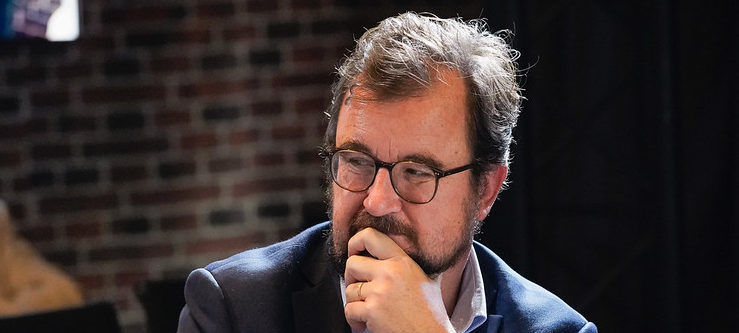
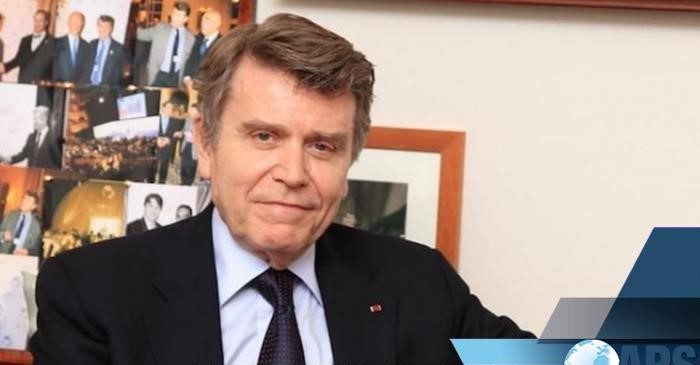
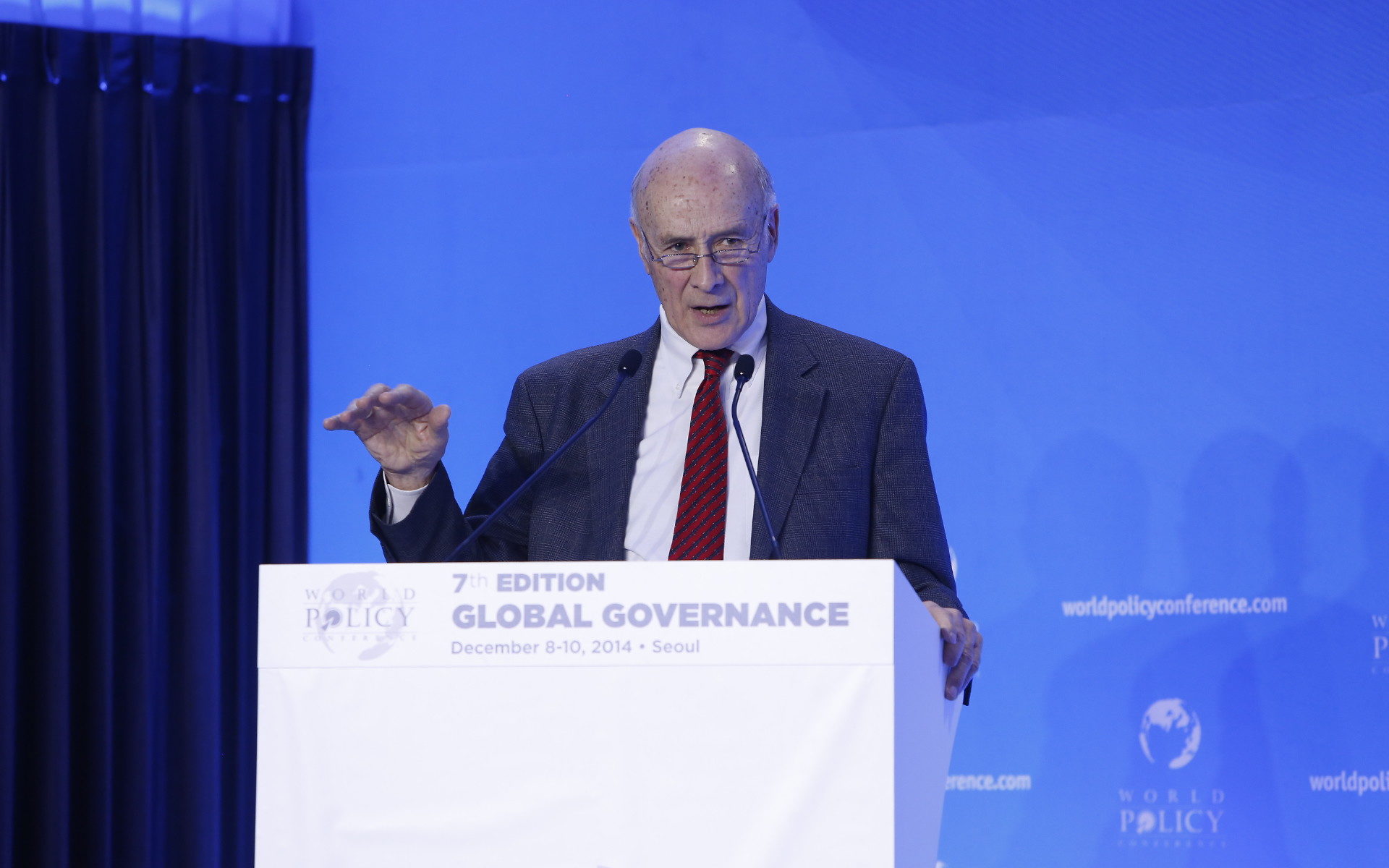
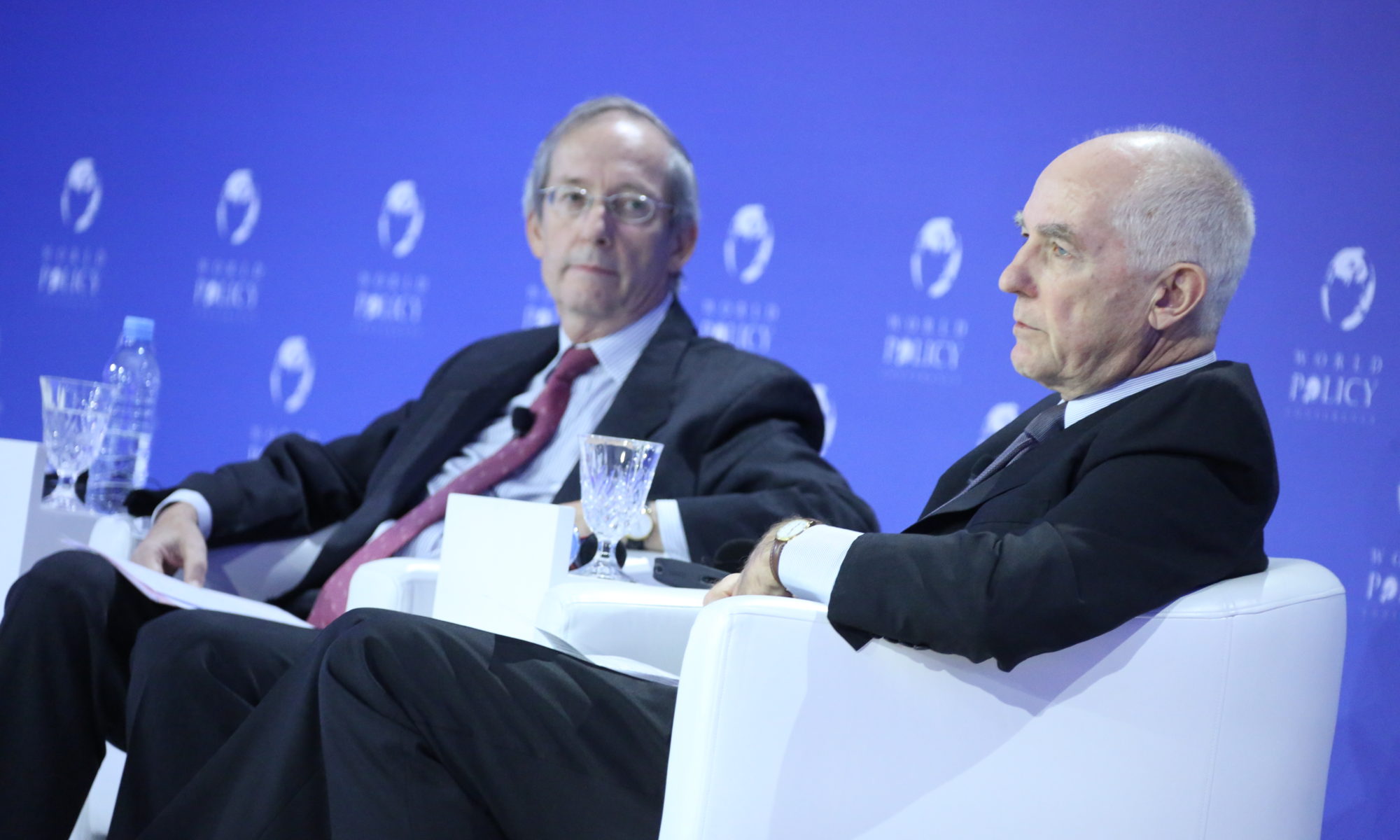
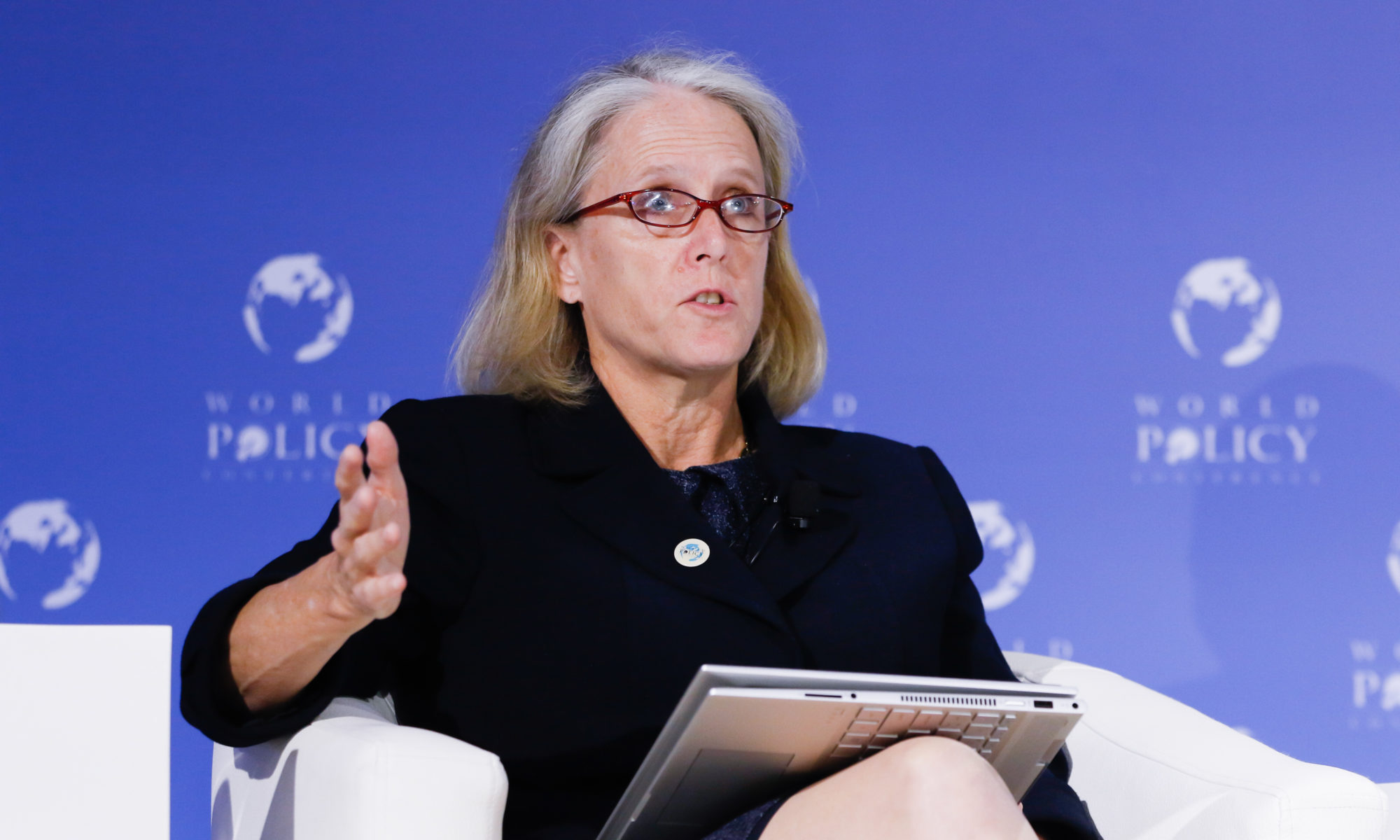

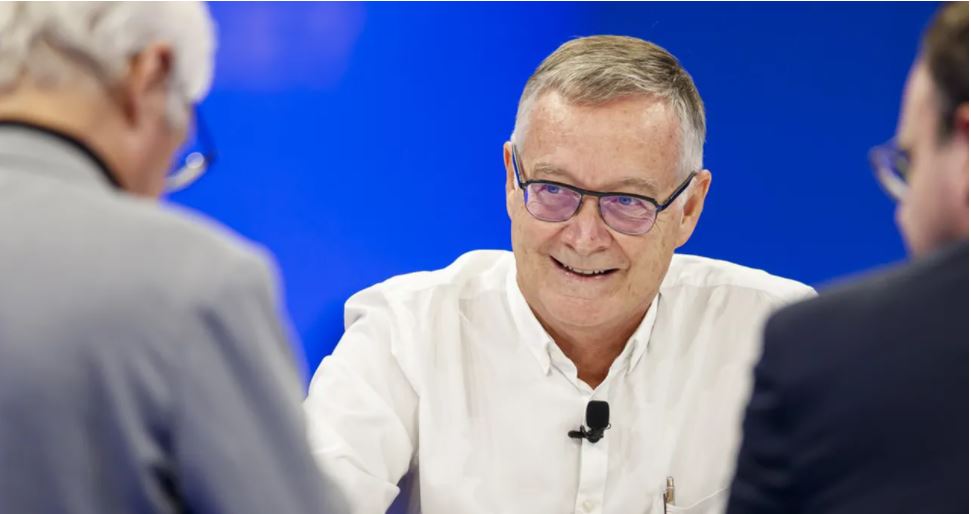

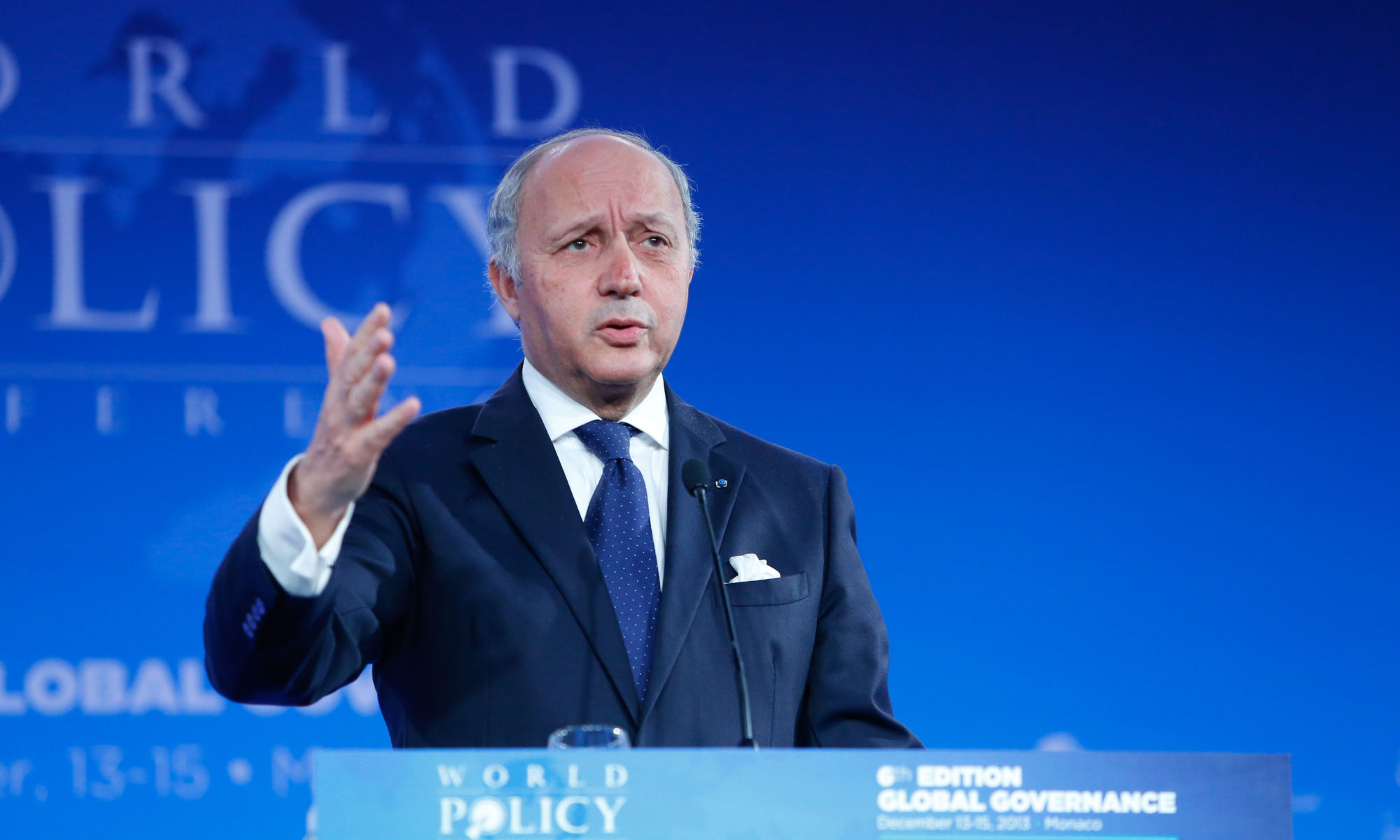
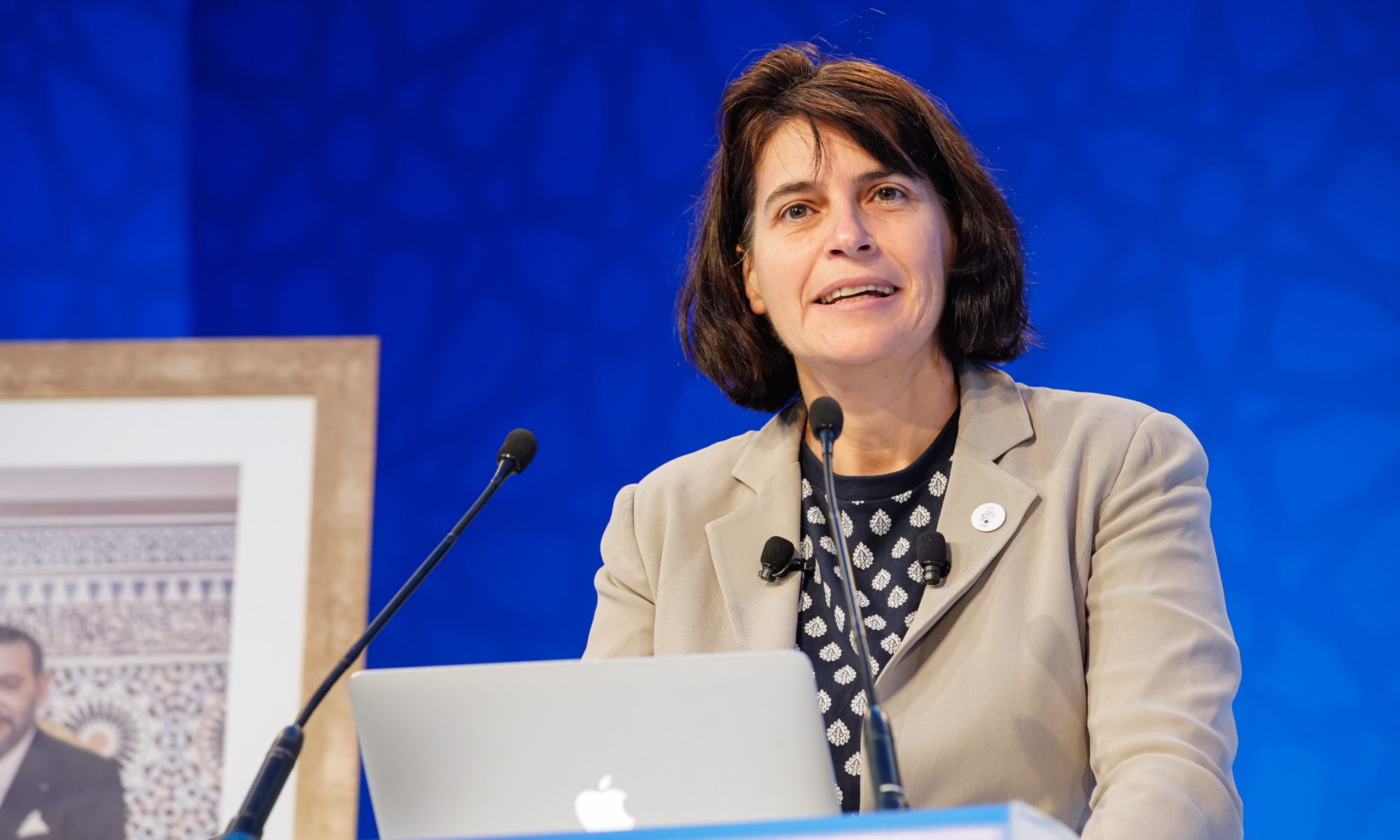
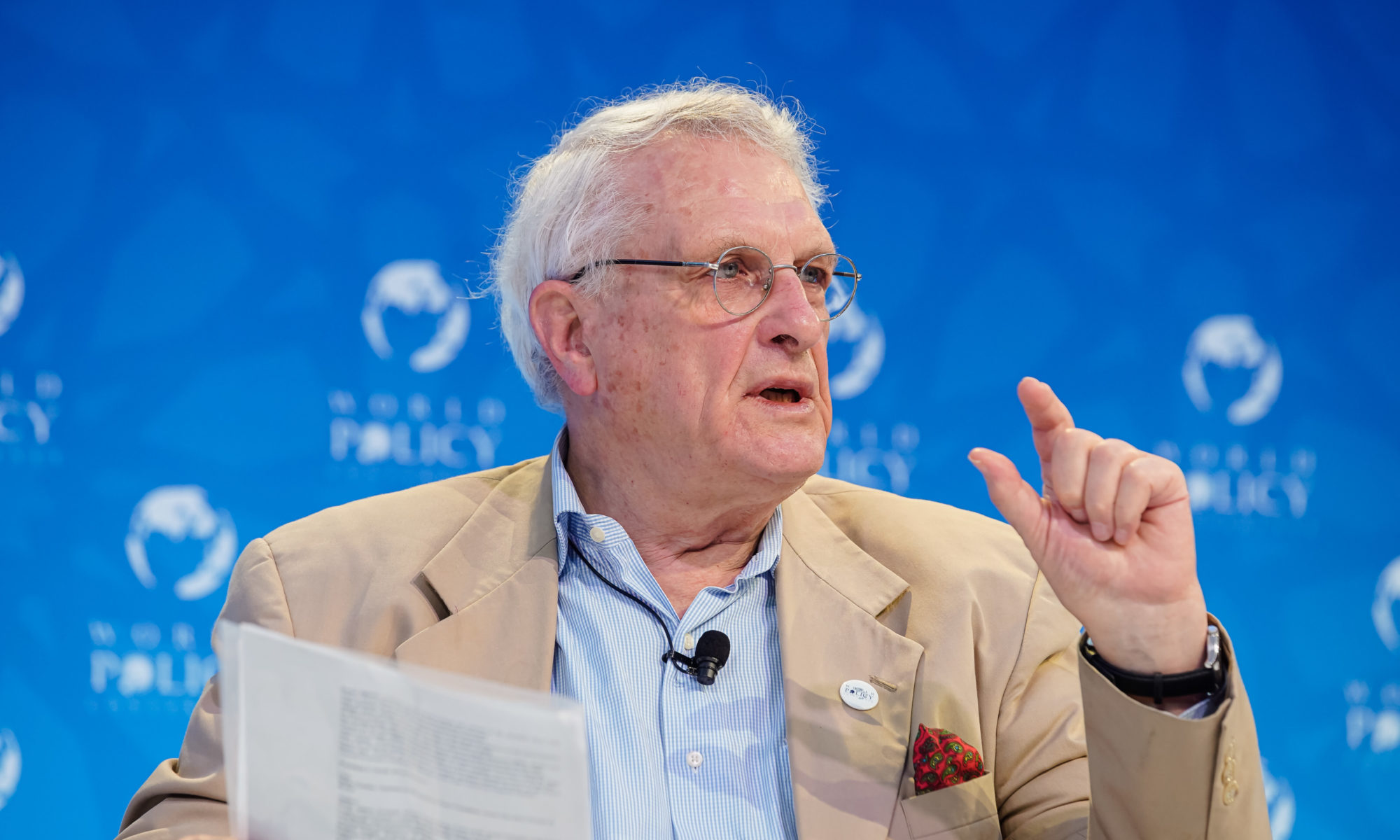
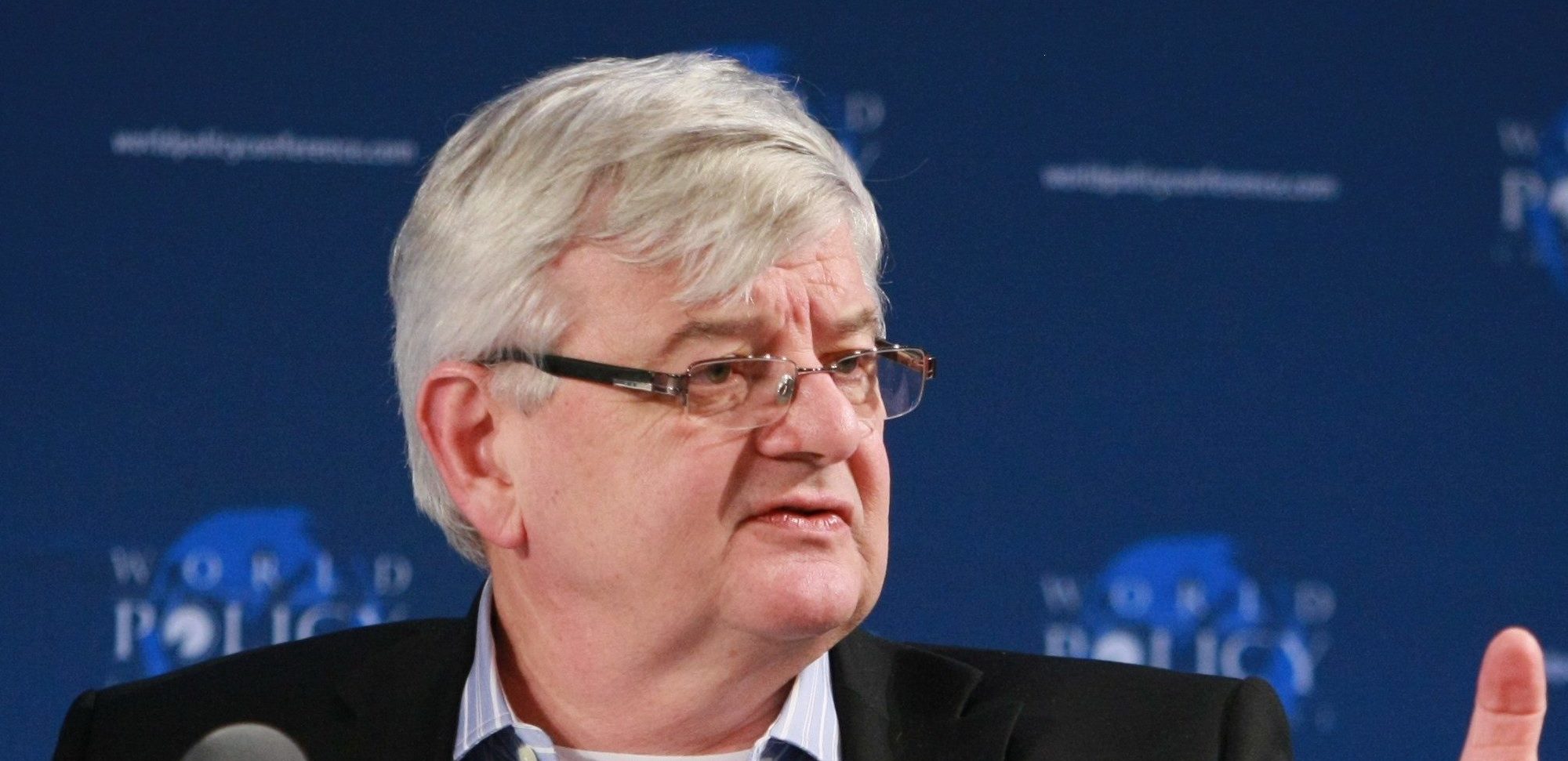
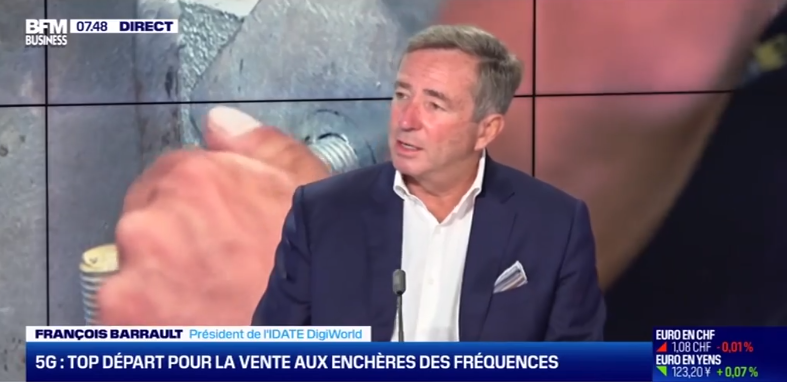
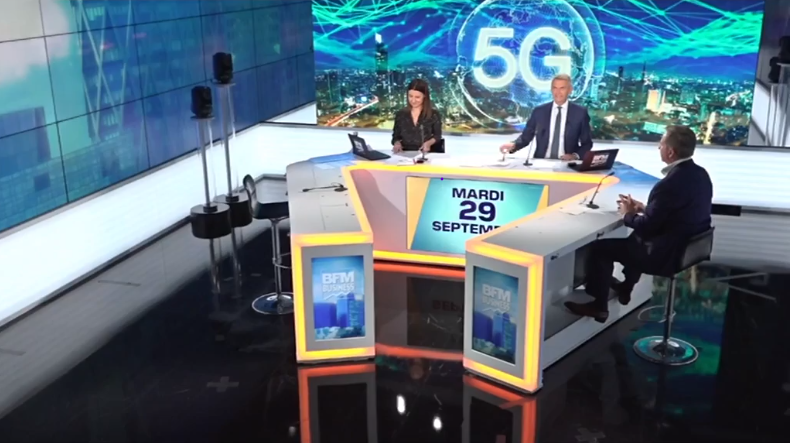
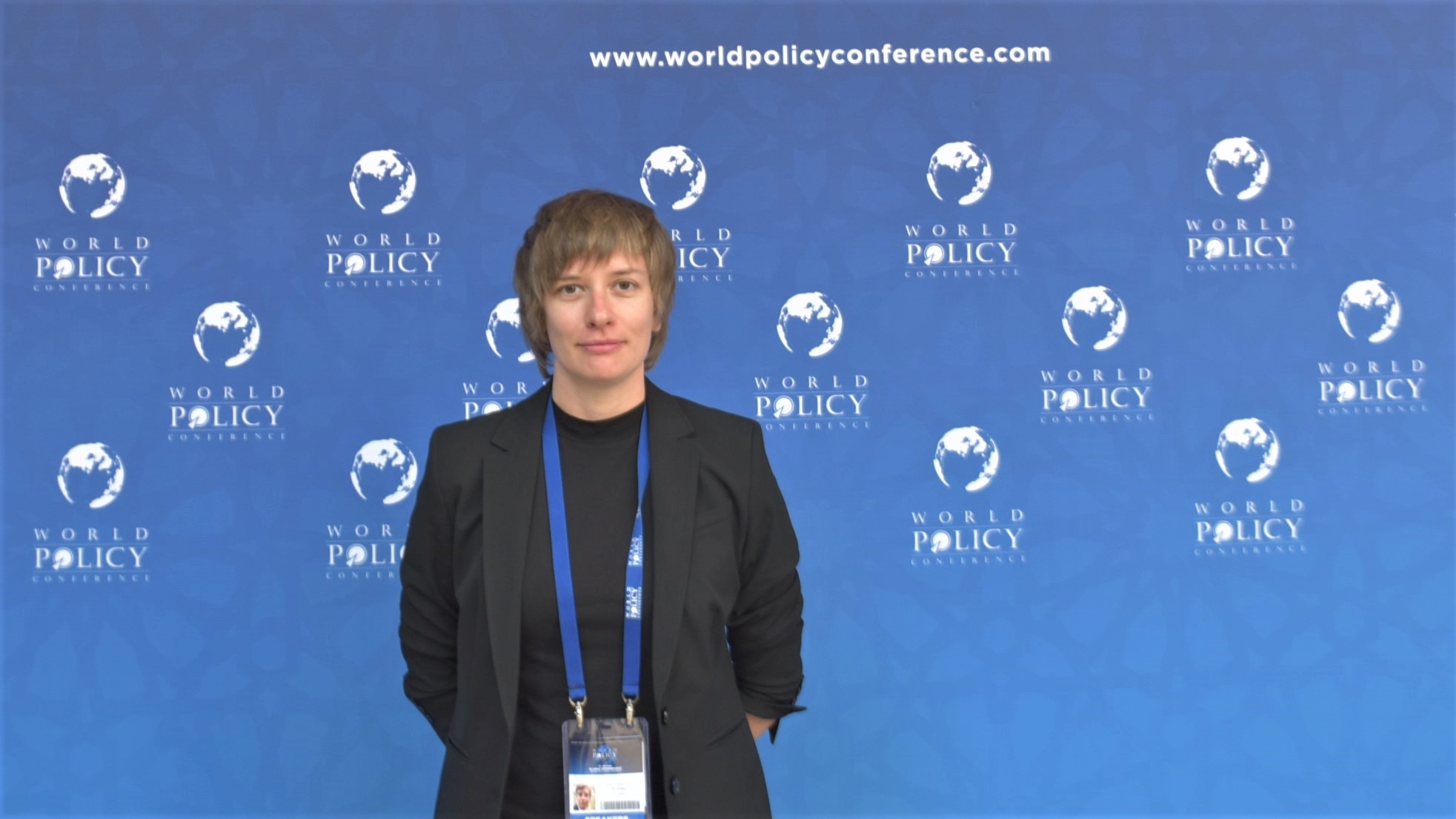


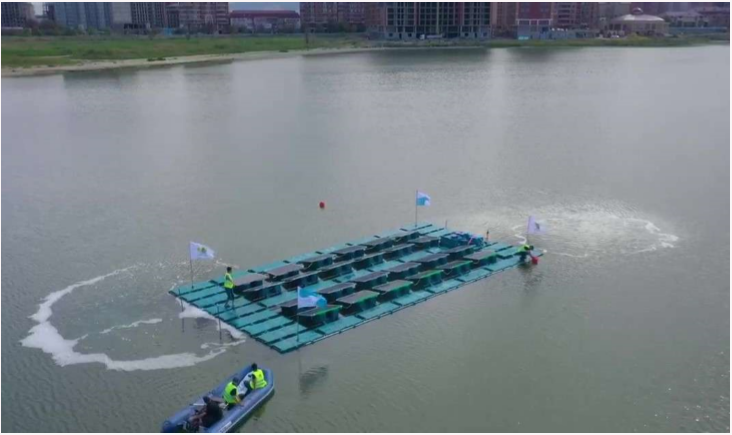
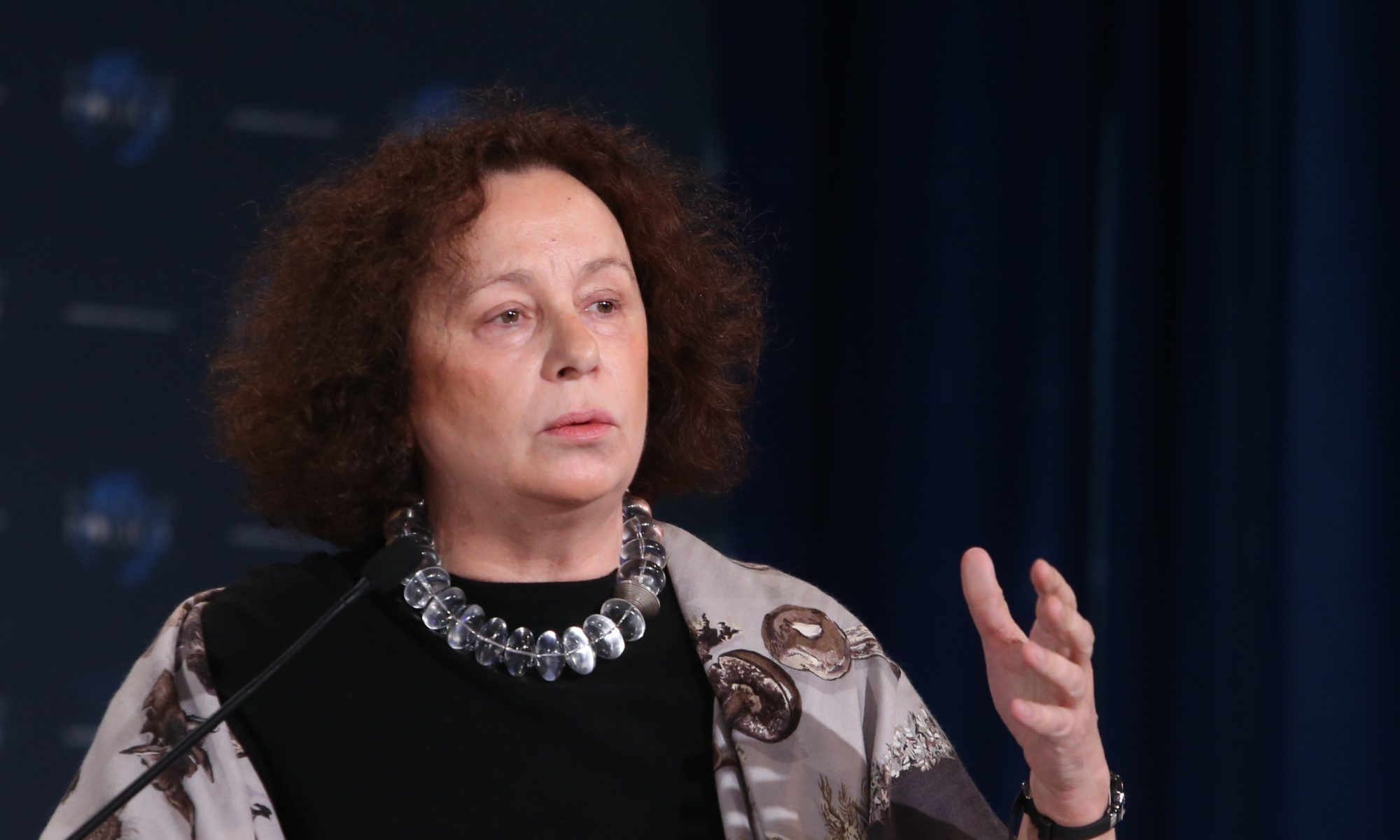
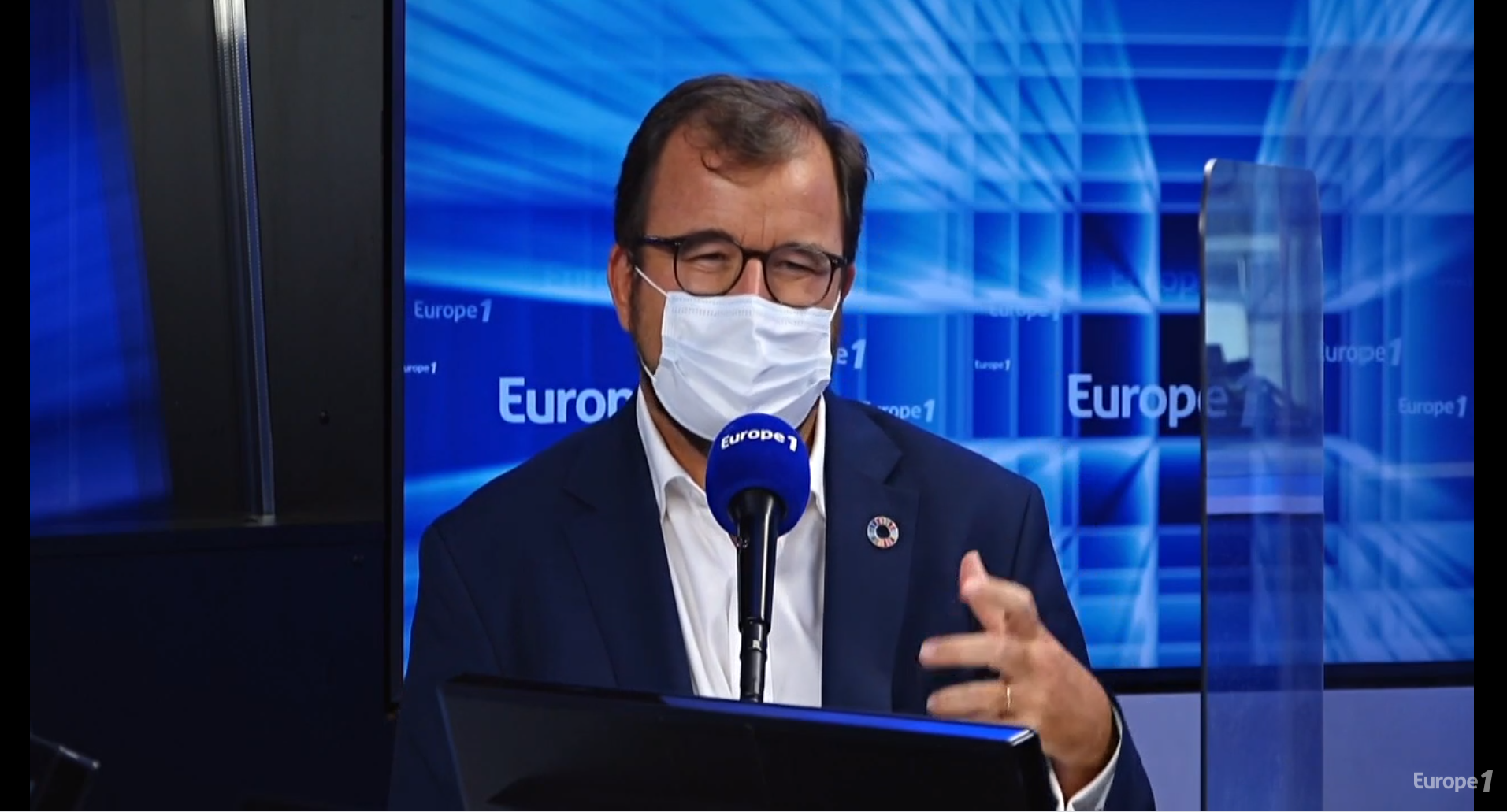

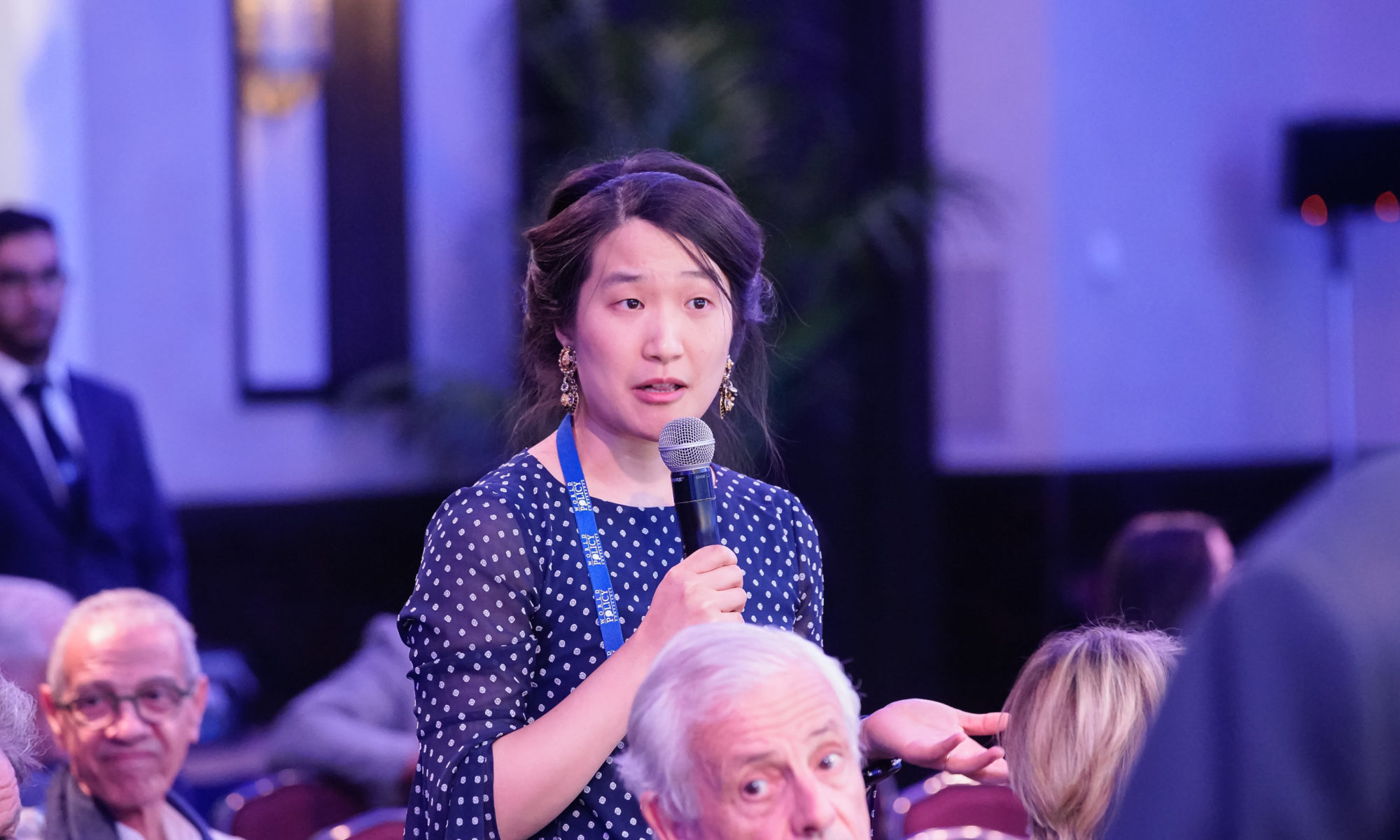
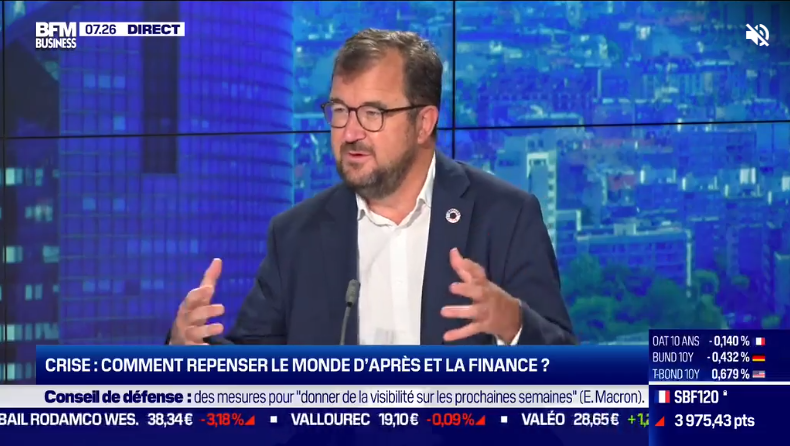
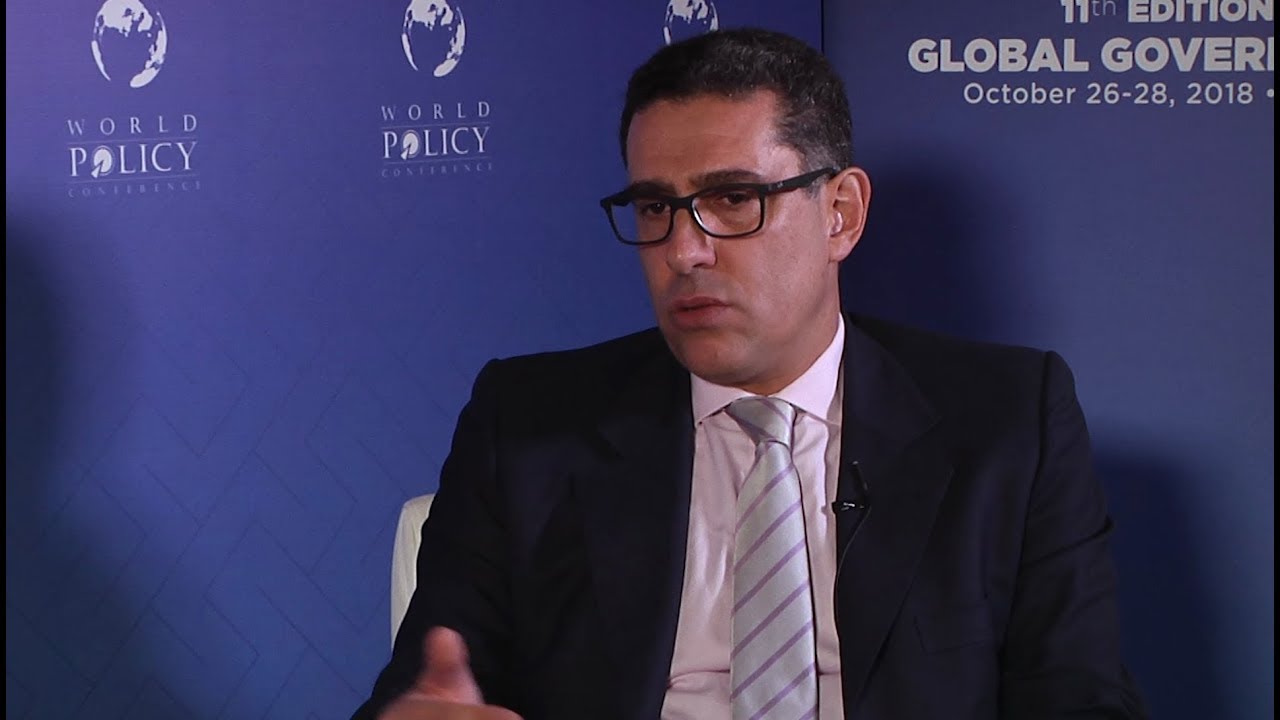
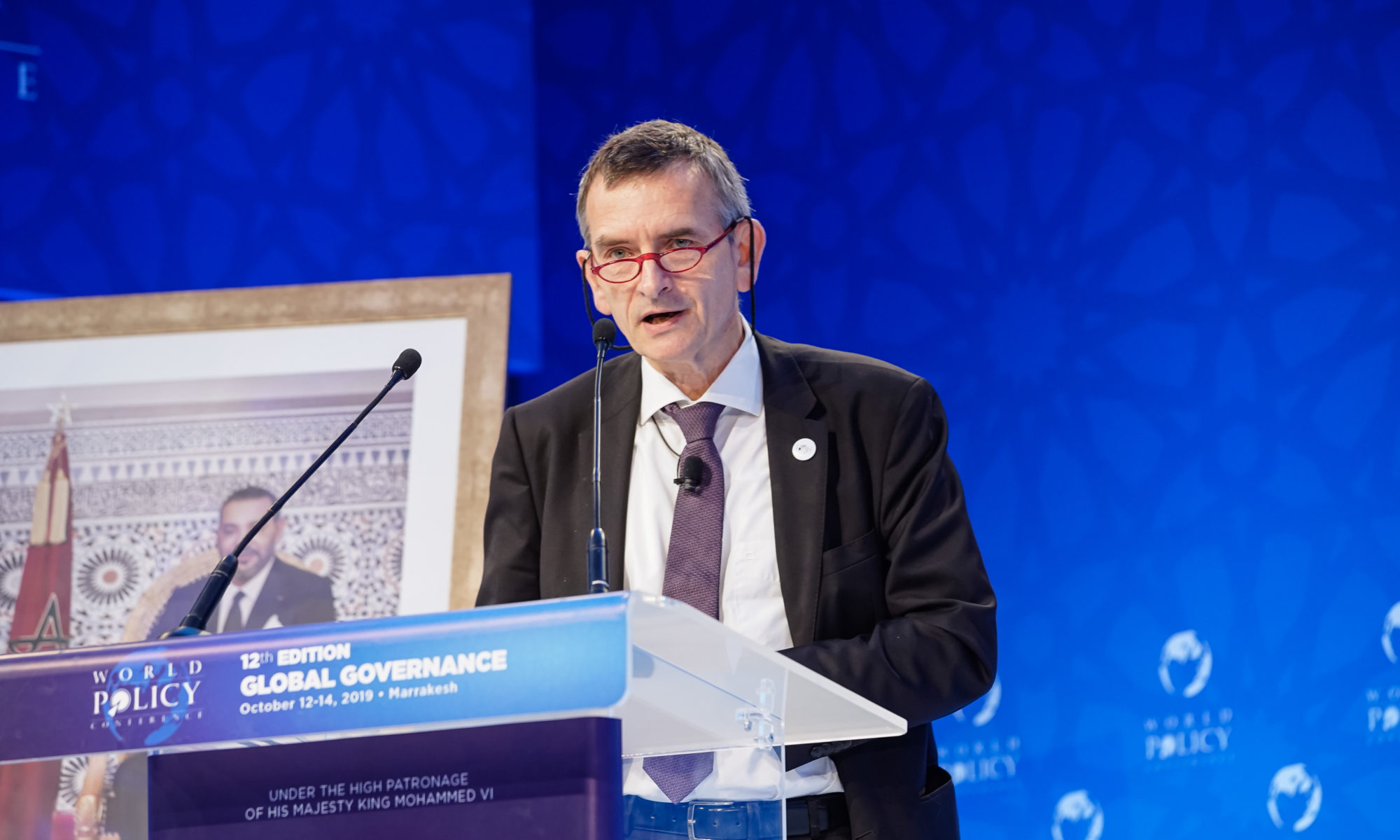
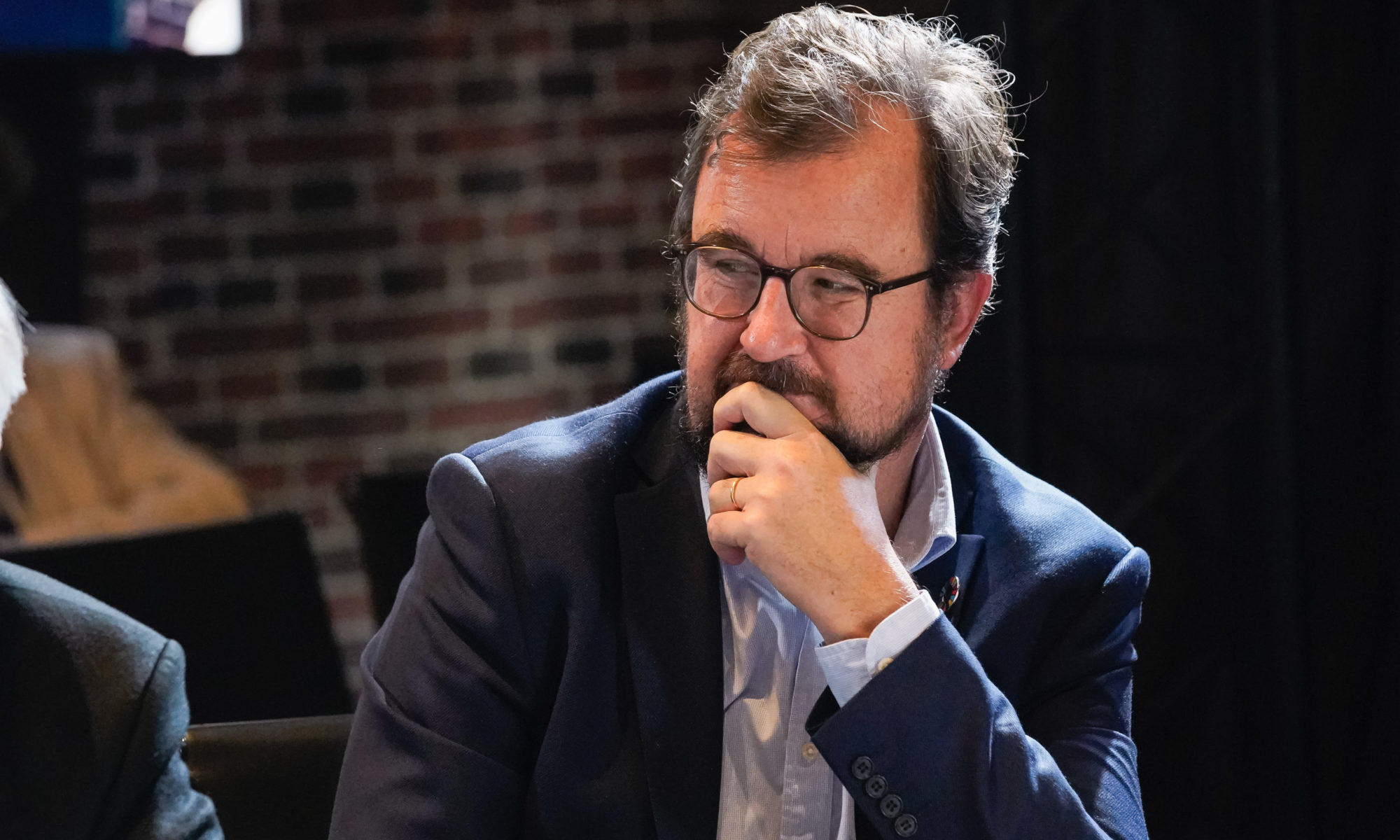
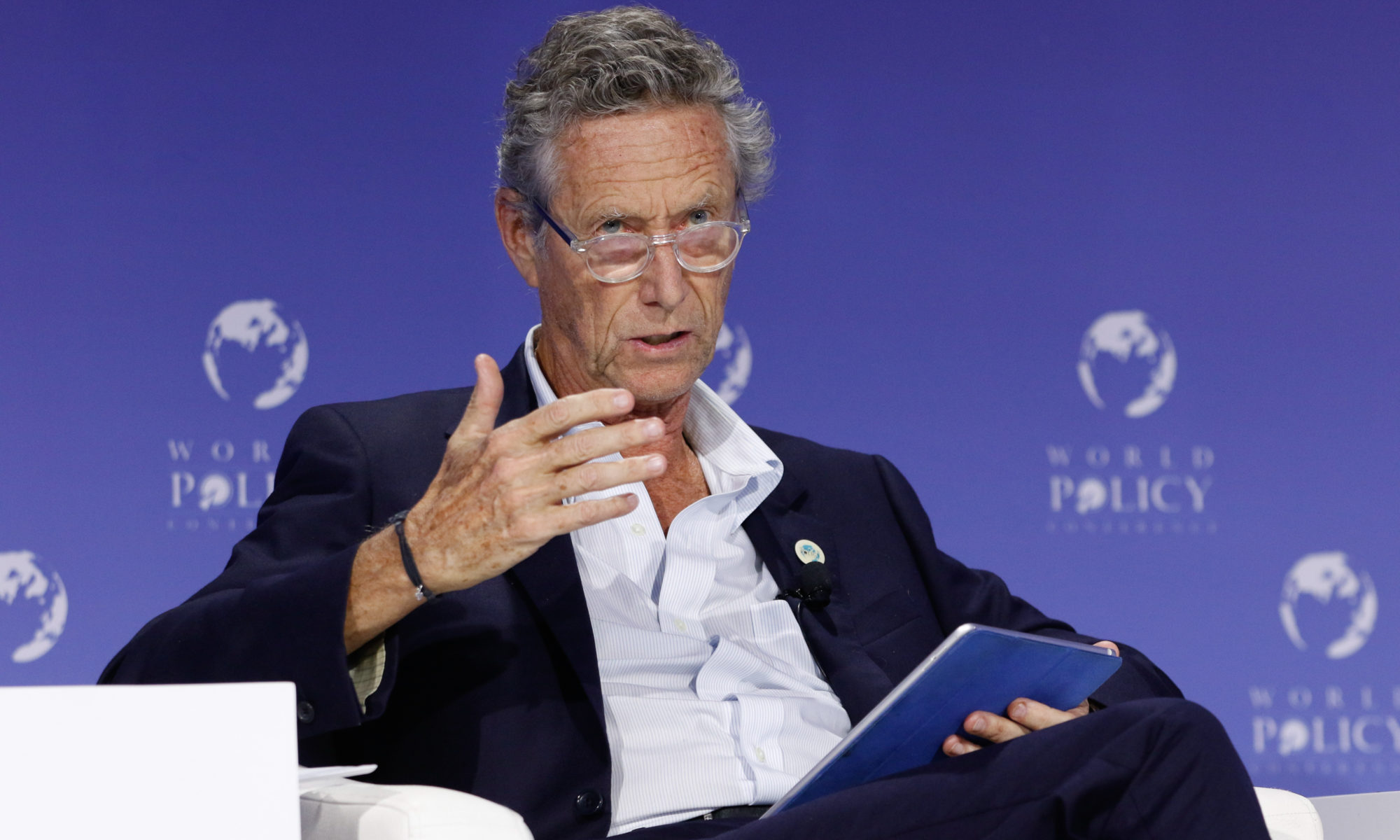
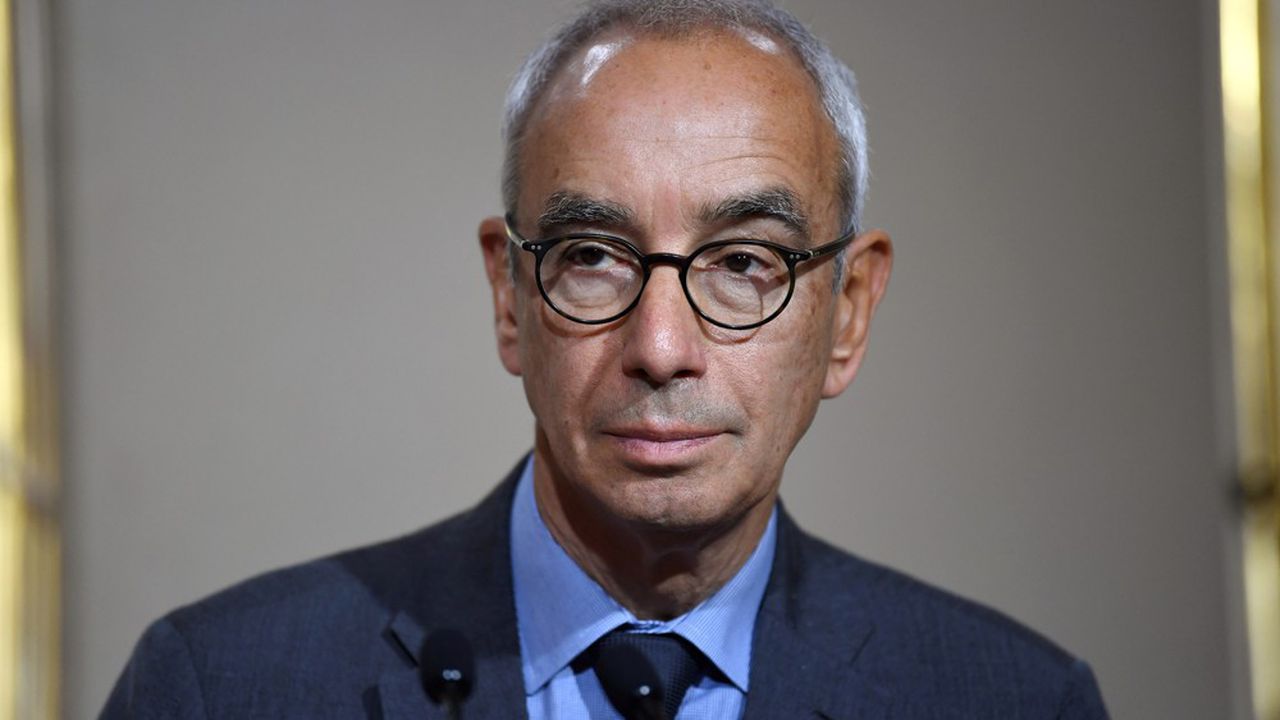
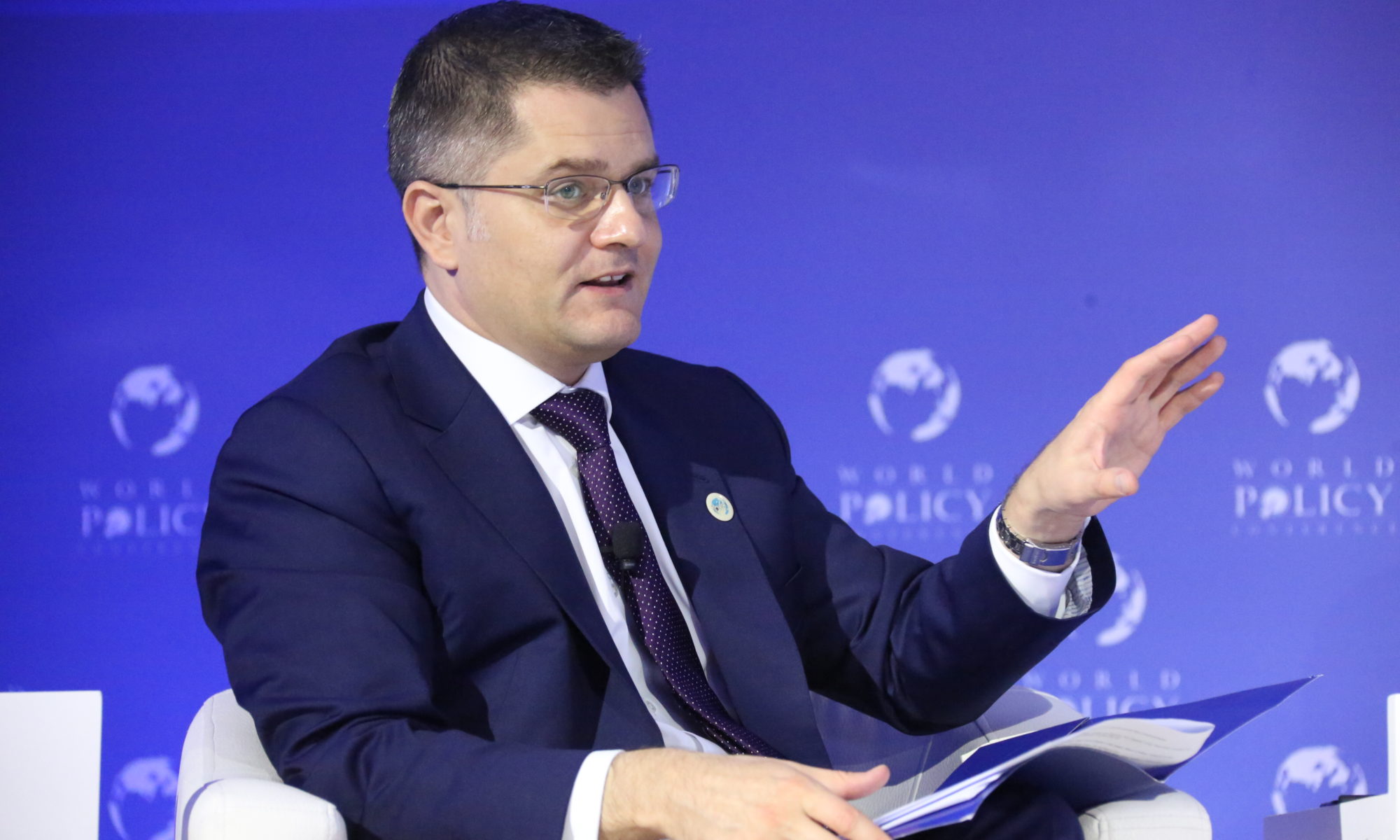
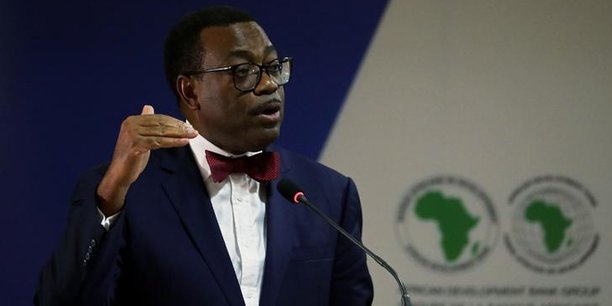
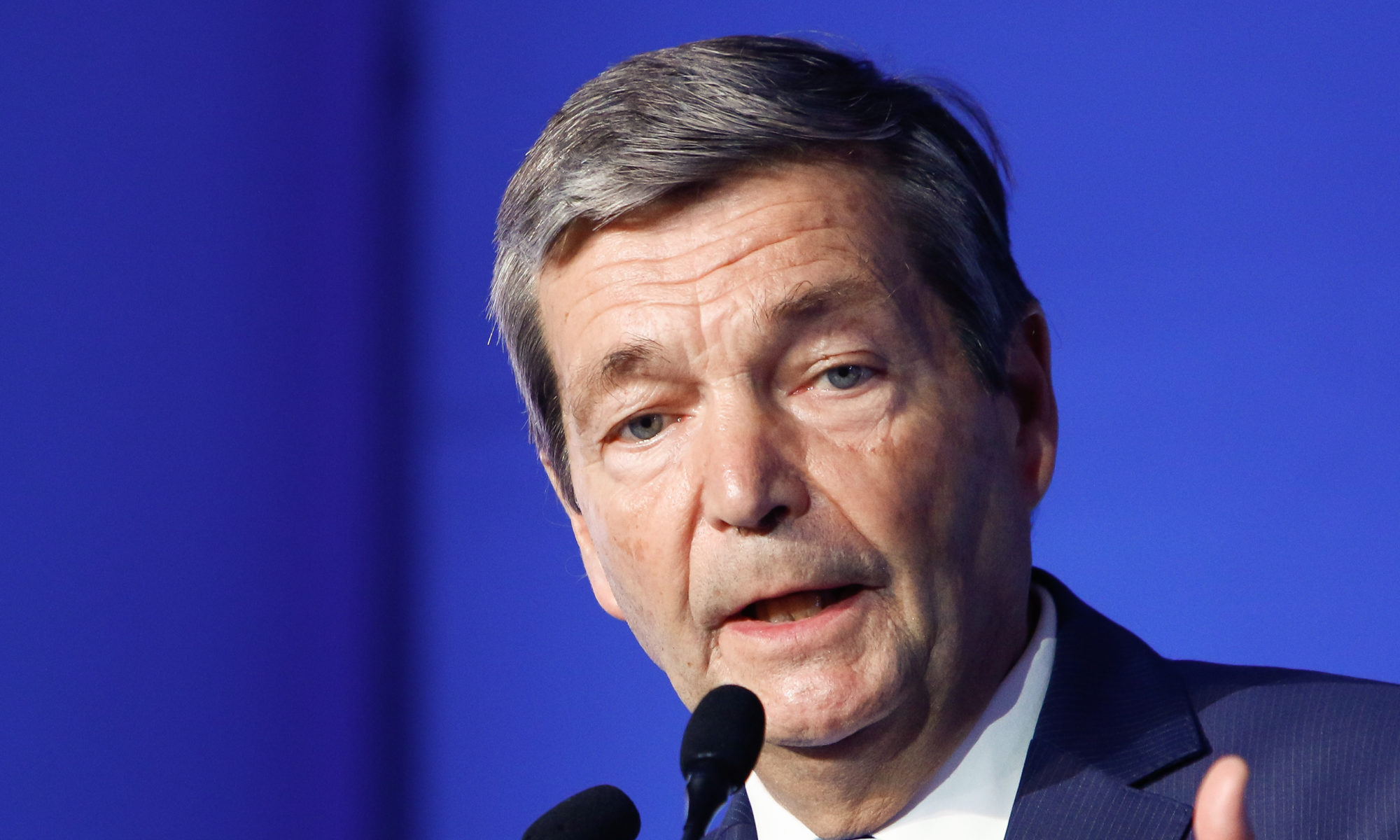
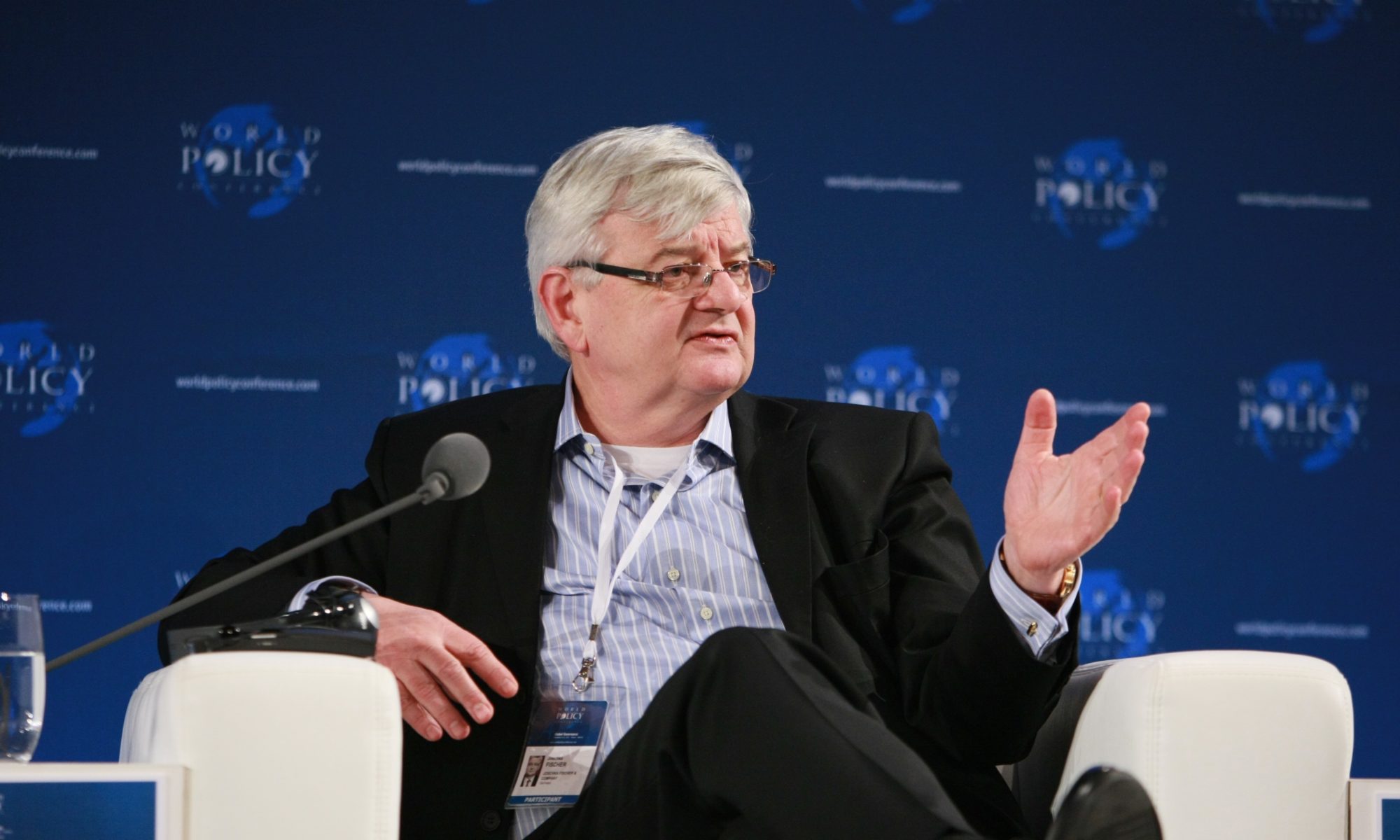
PARIS – The COVID-19 crisis has revealed how intertwined all of our major challenges are. Biodiversity loss and rising inequalities have contributed to a global public-health disaster and the worst economic crisis in almost a century.
As often happens during such moments, people are suddenly open to changes that they previously would have rejected out of hand. For example, there is a major shift underway in the corporate world, where many managers and investors are eager to adopt more sustainable and responsible practices and business models.
The task now is to ensure that this new mindset itself goes viral. How can we ensure that all businesses are getting on the right page, given that they will remain beholden to the demands and interests of shareholders and investors? One obvious answer is through Environmental, Social, and Governance standards. But ESG offers only a partial solution. Precisely because this field is now booming, it has become crowded and confusing, leading to complaints about “sustainability reporting fatigue.”
Fortunately, there has been some consolidation recently, with major ESG standard-setters such as the Global Reporting Initiative and the Sustainability Accounting Standards Board announcing that they will work together. Their goal is not to create a single standard, but rather to “help stakeholders better understand how the standards may be used concurrently.”
Similarly, in the interest of clarity, comparability, and consistency, the World Economic Forum’s International Business Council recently issued “Stakeholder Capitalism Metrics” that aim to accelerate convergence among the leading private standard-setters. And the European Union has launched a review of its non-financial reporting directive, which requires large companies to disclose information on how they operate and manage social and environmental challenges.
This is all well and good. The ESG financing sector is growing quickly and will likely continue to expand, now that companies with reputations for ethical, sustainable practices are proving to be more resilient during the COVID-19 crisis. But this progress could be derailed if investors cannot easily compare one set of corporate ESG disclosures with another.
What we need, then, is a set of truly global ESG standards with clear, harmonized metrics and disclosure rules. This doesn’t mean there needs to be only one set of standards. Some reporting standards will give more information than others; some will focus on topics that are important for enterprise value creation; and some will emphasize a company’s impact on the world around it. There would still be different approaches to ESG reporting, but all would rest on the same foundation.
Moreover, clear ESG reporting is only one part of the puzzle. Businesses also will need to complement ESG-based risk disclosures with metrics for assessing their impact on the environment and society, reporting both negative and positive externalities. Put another way, we must move from a culture of declarations and stated intentions to one of real-world results, based on impact assessments.
Measuring a company’s wider impact is the first step toward proper corporate accounting. Going beyond immediate output, such metrics focus on broader outcomes stemming from a company’s behavior. This type of framework encourages corporate leaders to integrate impact objectives into their core strategies, thus accelerating the shift in capital toward responsible investments. It also makes it easier for governments to fine-tune policies affecting corporate activities.
Impact accounting is the best way to create the kind of level playing field that stakeholder capitalism requires. It formally recognizes the value of decisions motivated by climate and biodiversity concerns. It accounts for employment issues such as wage equality, benefits, career advancement, and occupational health and safety. It encourages companies to promote sustainable practices throughout their supply chains, which can yield returns by making them more resilient against sudden shocks. And, last but not least, easy-to-understand impact metrics are the key to building trust with customers, local communities, and all other stakeholders.
Of course, not all companies will have a positive impact on the world. In some industries, impact measurements will be consistently negative. The point is to draw a line between companies that are truly committed to maximizing their net positive impact, and those that are merely greenwashing. When more companies are offering rigorous, verified, transparent impact data to investors who are responding to client demands for responsible investments, capital flows will adjust accordingly, delivering positive knock-on effects far down the line.
A final question is whether impact accounting can function as a complement to financial accounting. After all, measurements of impact are complex, and seem to rest on assumptions that can easily be challenged. Nonetheless, as John Maynard Keynes observed, “It is better to be roughly right than precisely wrong.” Besides, it is not as though today’s long-established financial accounting methods are perfect. They, too, are merely estimating underlying economic realities. We should not shy away from pursuing the same kind of solid approximation when it comes to measuring a company’s social and environmental impact.
Since efforts to measure and monetize impact began with a small set of simple metrics developed by the OECD (based on the work of the Business for Well-Being Initiative), more advanced frameworks have emerged and will continue to evolve and expand. With robust impact accounting of direct operations, supply chains, and environmental and social assessments of goods and services in place, governments will be able to craft policies to encourage responsible behavior and increase the costs of negative externalities such as greenhouse-gas emissions.
The stakes are high, and governments and businesses must come together to take impact accounting mainstream. A global roadmap could cover key issues such as transparency and disclosure rules, in turn enabling faster progress toward common metrics and a shared methodology that could align the interests of corporations, investors, and governments around addressing the major challenges of our time. A new frontier of responsible business awaits.
Writing for PS since 2014
Bertrand Badré, a former managing director of the World Bank, is CEO and Founder of Blue like an Orange Sustainable Capital and the author of Can Finance Save the World?
Writing for PS since 2020
Camille Putois is CEO of Business for Inclusive Growth.
Read the original article on Project Syndicate